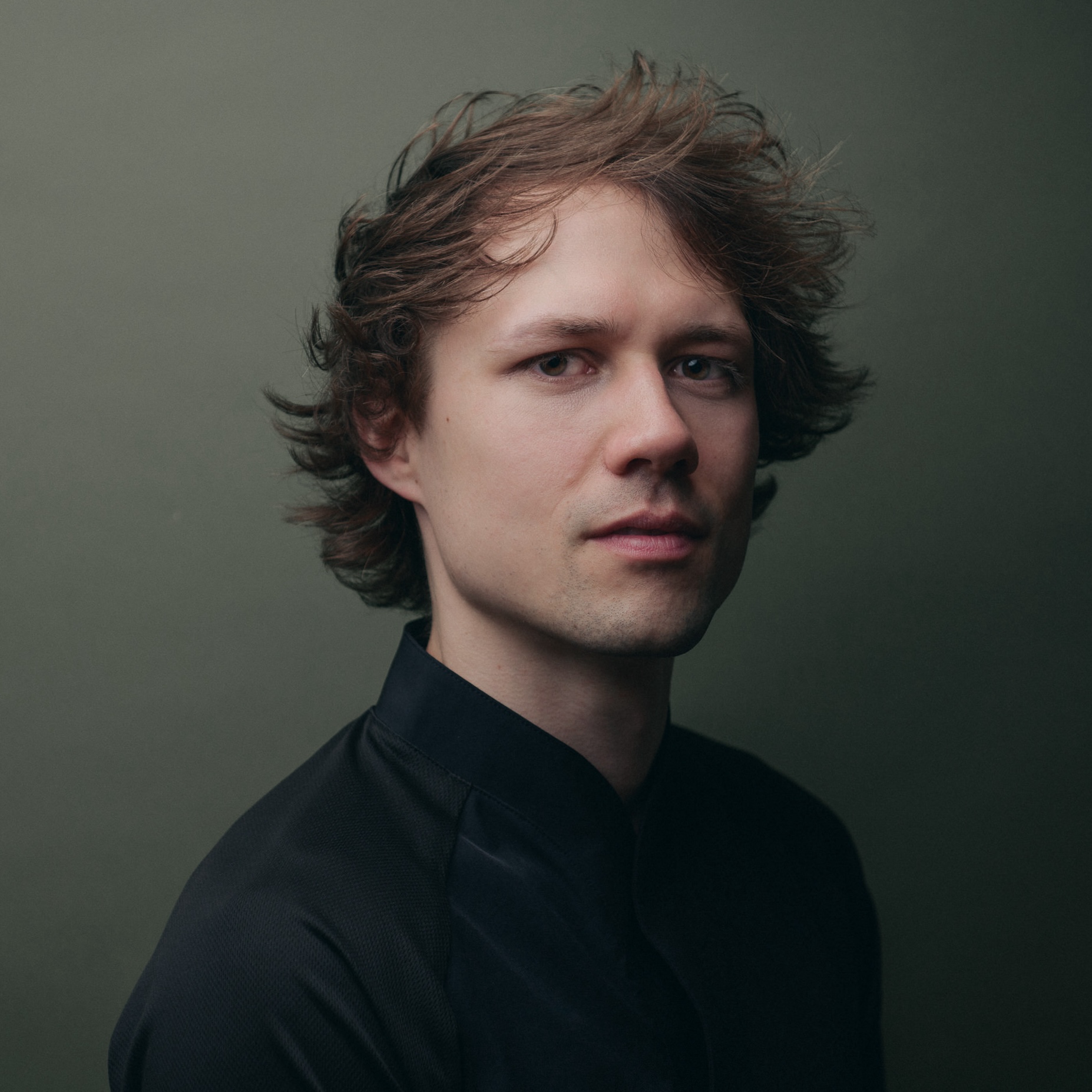

UE composers from Germany
UE composers from Germany
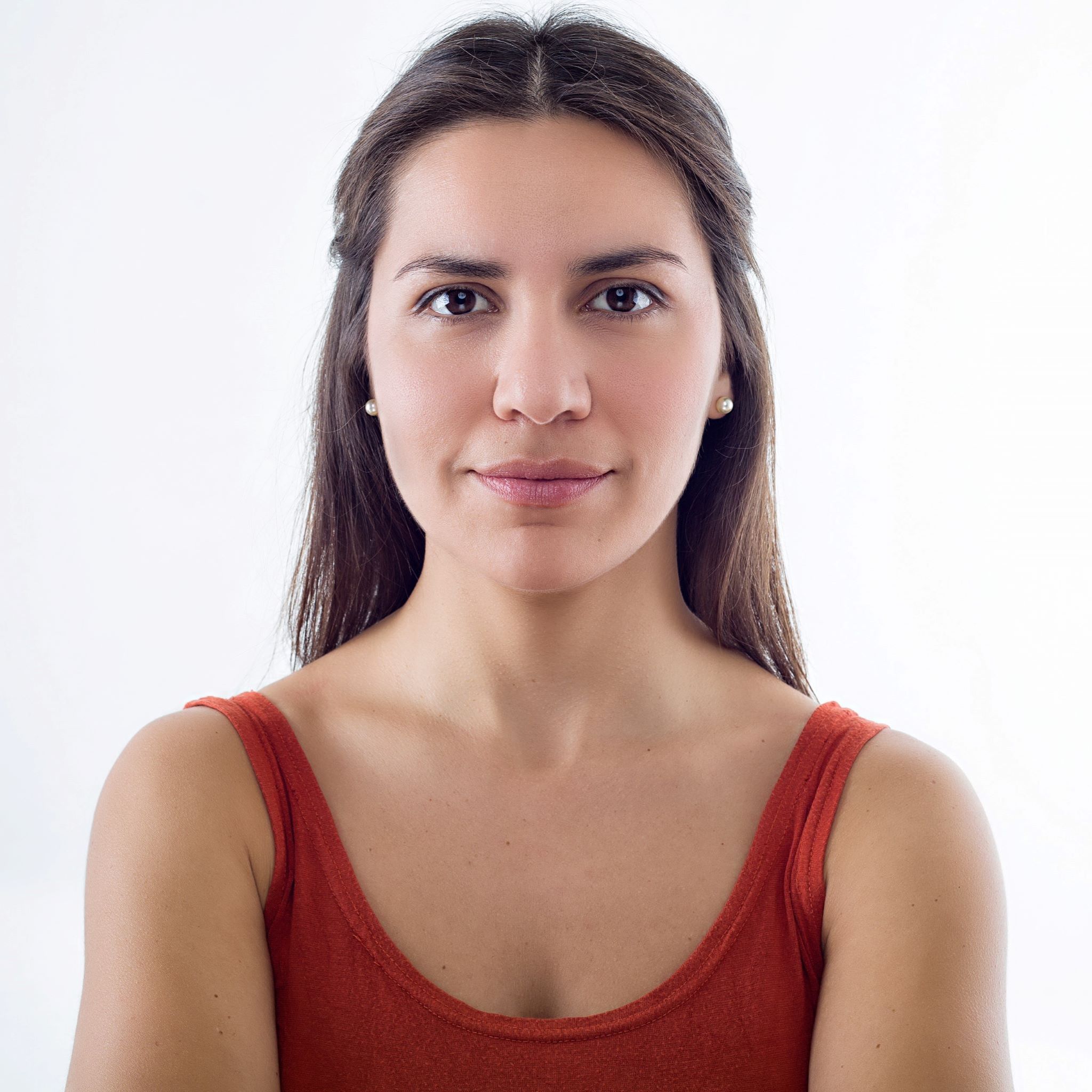
Zeynep Gedizlioğlu
*4 December 1977
Born in in Izmir/Turkey, Zeynep Gedizlioglu studied composition with i.a. Wolfgang Rihm in Karlsruhe and Ivan Fedele in Strasbourg. She completed the CURSUS at IRCAM in Paris between 2010-2011. Her music has been performed at leading international festivals such as ECLAT Stuttgart, Wien Modern, Salzburger Festspiele, Musica Strasbourg, Beethovenfest Bonn, Witten Days for new Chamber Music, musikprotokoll-Graz, ‚cresc…Biennale for Contemporary Music Frankfurt’, G((o))ng Tomorrow Copenhagen, November Music s-Hertogenbosch, Ultraschall Berlin and was broadcasted live on the radio. Her works have been published on Cds (including Portrait Cd Gedizlioglu ‚Kesik‘ - published by col legno and funded by the Ernst von Siemens Music Foundation and ‚Verbinden und Abwenden‘ -the second Portrait Cd published by WERGO - funded by the German Music Council). In 2012 Zeynep Gedizlioglu received the Composers’ Prize of the Ernst von Siemens Music Foundation, in 2014 the ‘Composer of the Year’ Prize from the 5th Donizetti Classical Music Awards in Istanbul. In 2015 she was selected for the Cd-series Edition Zeitgenössische Musik of the German Music Council and was nominated in 2016 for the German Music Authors Award in the category ‚Music for Ensemble’. She received the Heidelberg Female Artist Award in 2018 and the Berlin Art Prize of Akademie der Künste Berlin in 2019. In the same year, she was given an artistic grant for a residency to work at the Herrenhaus Edenkoben. Her portrait Cd ‚Verbinden und Abwenden’ was nominated with the German Record Critics Award in 2020. She works with the hr SO, the Vienna RSO, the Borusan Istanbul PO, the Bilkent SO, the SWR SO, Klangforum Wien, Ensemble Modern, Ensemble Intercontemporain, 2e2m, ascolta, oenm, Ensemble PHACE, Neue Vocalsolisten Stuttgart, Quatuor Diotima, Scharoun Ensemble and the Arditti Quartet. She lives as a freelance composer in Berlin.

Andreas Gies
*31 March 1993
Andreas Gies was born in Italy as the son of Italian and German parents and was raised in Northern Italy where he studied, at the conservatories of Castelfranco V., Venice and Milan, Flute, Piano, Composition, Singing and Conducting with many important Maestros such as: Raffaella Chiarini, Fabio Grasso, Michael Summers, Mauro Bonifacio, Azio Corghi, Marco Tutino, Vittorio Parisi.
After a bachelor and two master degrees he attended various masterclasses and academies under the guidance of M. Beltrami, F. Lanzillotta, D. Renzetti, J. Amigo, P. Bellugi, Luciano Acocella, D. Gatti (Accademia Chigiana di Siena).
He was assistant conductor of E. Calesso, G. Rath, R. Abbado, PG. Morandi, R. Palumbo, V. Petrenko in both symphonic and operatic repertoire in the Theaters of La Fenice di Venezia, Mainfranken di Würzburg, Olimpico di Vicenza, Comunale di Bologna, Municipale di Piacenza, Kungliga Operan Stockholm, Regio di Torino, Opéra de Nice.
In 2019 he won the prestigious prize “Premio Nazionale delle arti” by the Italian Government (in jury: G. Neuhold, M. Guidarini, A. Allemandi, V. DeVivo, R. Jais) conducting “La Verdi” orchestra of Milan.
He made his debut in 2016 conducting Die Lustigen Weiber von Windsor at the Mainfranken Theater Würzburg. Past conducting engagements include world premiere of Caffè Bach at the Pergolesi Theatre in Jesi, Don Giovanni in Milan (Teatro Carcano), Andrea Chenier (Opéra de Nice, conducting the entire dress rehearsal as assistant of M° G. Rath), Tosca (Teatro Coccia di Novara), a concert at the italian Embassy in Sofia.
As a composer he specialized at the Accademia Filarmonica di Bologna, won the 1st GC. Menotti competition at the Spoleto Festival in 2013 with a Symphonic piece premiered in USA, the XXX Moncalieri competition with a piece for Orchestra and Chorus and the II prize at the competition “I Pomeriggi Musicali” Orchestra in Milan with a Suite on Leonardo da Vinci which has been premiered in July 2020 in Milan (Teatro dal Verme) and Vittoriale D’annunzio in 6 performances conducted by G. Tackacs-Nagy. His own Ouverture for orchestra was premiered at the Venice Concert Hall under his guidance and will be further performed by the Orchestra Sinfonica di Sanremo.
His actual production counts pieces for chamber groups (Solo pieces, String quartet, mixed sextet), medium and big orchestra and 2 chamber operas.
He made also musicological studies with S. Caciagli, A. Polignano, U. Scarpetta leading to a huge editorial project on italian opera, producing critical editions for the first time of many works of half known composers such as P. Mascagni, R. Leoncavallo, U. Giordano, F. Cilea, G. Paisiello, L. Cherubini and others in collaborations with the musicologist C. Orselli.
Further infos about this project will be given soon!

Andreas Urevsky
*12 May 1990
Andreas Urevsky, born 1990 in the former USSR in the Republic of Uzbekistan/Tashkent comes from a Russian-Jewish family. He discovered music first at the age of 17 and began to cover songs on guitar and button accordion by ear. At the same time he taught himself musical notation autodidactically. After completing basic studies in law in 2014 he decided to turn his hobby into a profession. Without any formal musical education, he passed the entrance examinations at the Vienna Conservatory in 2014 and began dual studies in classical accordion and composition. Since 2017 he has been working as a freelance composer and accordion teacher. His work is specially dedicated to the accordion. Dancing is a very big passion of his, he won the Austrian champion title in 2016 and 2nd places in Zell am See in 2018 and 2019. He is considered the only artist who combines two seemingly very different forms of art, namely the modern button accordion and street dance, in a creative way in one (see the works: Get funky and dance, Lockin' it down, Do this Boogaloo, Poly-Rhythm-Tut, Soundscapes, 5-over-7 and Pantomime). He lives and works in Vienna.
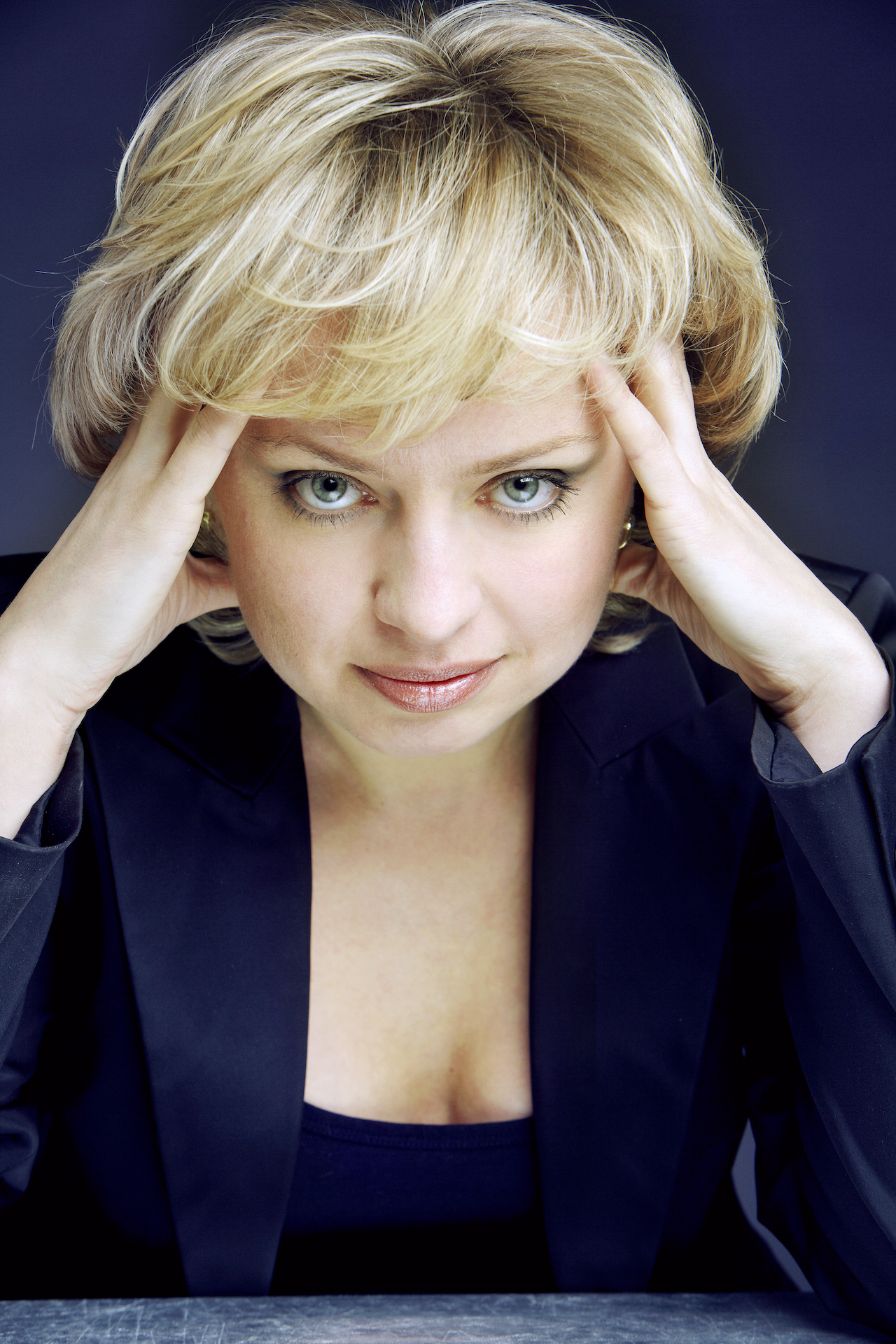
Anna Skryleva
*2 September 1975
“Music is always with me”. This is how Anna Skryleva, the winner of Opus Klassik 2024 - German composer, conductor, pianist and synaesthete - describes her work, with which she has made a name for herself on the international stage in recent years.
The composer-conductor is currently General Music Director at Magdeburg Theatre and is enthusiastically committed to expanding the standard orchestral and operatic repertoire. Her rediscovery and premiere of Eugen Engel's opera “Grete Minde” in 2022 caused an international sensation and is considered a discovery of the century.
In May 2024, "3 Impromptus in C" in the orchestral version were premiered by Augsburg Philharmonic with great success. "Three concise pieces. Modernity without harshness or elitism, and yet distinct in compositional style." writes Augsburger Allgemeine newspaper. In June 2024 her enigmatic "Mirror" for for soprano and orchestra were successfully premiered with the Magdeburg Philharmonic. “Mirror” is based on the “Solresol” language, in which each musical motif is assigned a specific word. The work is based on a poem that Skryleva wrote in 2021 - in her composition, the music is triggered and shaped by words.
Skryleva created several opera and orchestral arrangements for the theatres in Magdeburg and Winterthur, including Mozart's “La clemenza di Tito” and Wagner's “Vorspiel” to the opera “Lohengrin”. In 2023, she wrote “Lullaby” for two voices and orchestra, which had its world premiere in Magdeburg.
Anna Skryleva is based in Berlin.
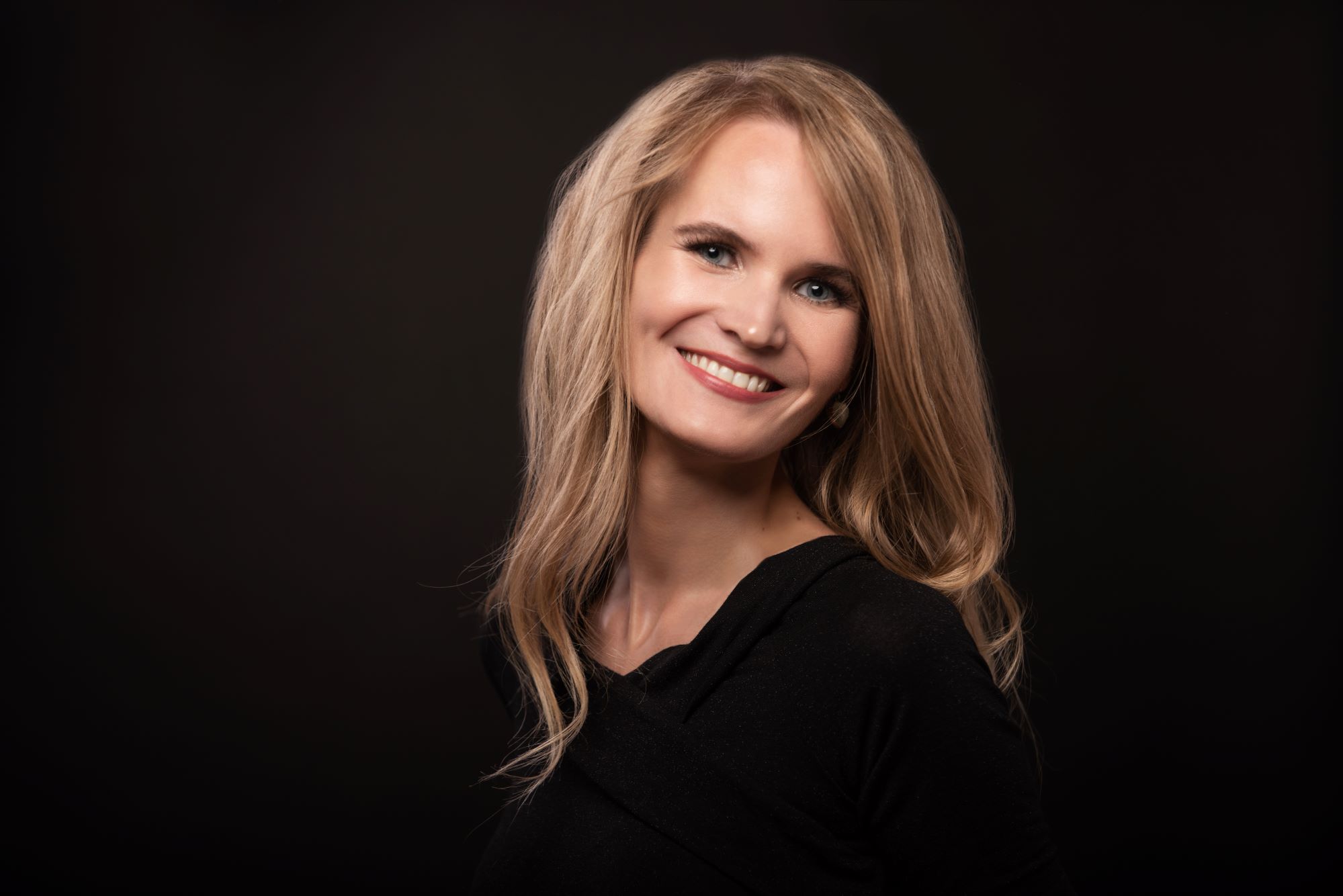
Barbara Mayer
Barbara Mayer is a German composer, pianist and musicologist. She revels in playing the works of seldom-performed composers (particularly from those dating from 19th century onwards) and is passionate about interdisciplinary projects and improvisations in a variety of styles.
The Jury of the Artists’ Award for Composition of the City of Augsburg describes her compositional language in the following statement:
Barbara Mayer shows an astounding professionalism in her compositions, and proves to have the necessary confidence to sucessfully navigate the current state of affairs in composition. She effortlessly combines structural clarity with a wide range of subtle tonalities, creating great atmospheric density as well as intense, sensuous sound experiences. In her work she succeds in reconciling elements percieved as irreconciliable, and bridges the gaps between styles and genres, bursting with ideas and expressivity. Her eagerness to experiment shows her outstanding talent to integrate non-musical methods and elements. We foresee a sensational artistic career ahead of her.
Barbara Mayer studied composition and piano at Mozarteum Salzburg and Anton-Bruckner-Universität Linz with renowned Professors such as Adriana Hölszky, Cordelia Höfer-Teutsch and Margit Haider-Dechant. Barbara attended the Escola Superior de Música in Lisbon with an OEAD scholarship. She undertook musicological research abroad at the Instituto Moreira Salles in Rio with the support of the Austrian Ministry for Culture and attended the Bayreuth Festival with an International Richard Wagner Foundation scholarship.
Her current composition projects are supported by the Free State of Bavaria (scholarship programme “Young art and new paths”) and the “Neustart Kultur” programme of the German Music Council.
Barbara has since continued her artistic development through numerous masterclasses, taught by highly acclaimed artists such as Anatol Ugorsky, Alexander Jenner, Filippo Faes and Roger Muraro.
After completing her Master studies with the highest honours, Barbara has recently received her PhD in Musicology on the Brazilian composer Hekel Tavares at Mozarteum with an outstanding final grade.
For her concert recording of one of her latest composition/improvisation projects The poetry of sand, she was awarded with First Prizes in the Virtuoso International Music Awards (London) and the International Swiss Music Competition, Lugano (2024).
Moreover, Barbara Mayer has received the following awards to date:
- First prize (Piano, Contemporary Music) and Career Project Prize in the International Swiss Music Competition, Lugano (2024)
- Absolute first prize (Piano) in the Fanny Mendelssohn International Music Competition, Brussels (2022/23)
- Third prize (Contemporary Music) in the American Virtuoso International Music Competition (New York), associated with a piano recital with her own compositions in Carnegie Hall (organized by the American Society of Musical Excellence) (2022/23)
- First female winner of the Young Artists’ Award for Composition of the City of Augsburg in their 50 years of history
- Laureate in the String Quartet Composition Competition launched by the Ligeti Quartet, London
- Multiple first prize winner in the Ibla Grand Prize World Music Competition, Ragusa/New York both in Piano and Composition sections, and
- Special Distinction for her interpretation of her composition "Rigoletto im Spiegelland" receiving personal congratulations from Maestro Marcello Abbado.
Her numerous concerts, musicological activities and commissioned works further highlight her excellence in her musical career, having composed for/performed with the Augsburg Philharmonics, the Summer Academy Prachatice in the Czech Republic, the Ligeti Quartet in London, the OENM (Austrian Ensemble for Contemporary Music), the Ensemble Flex (Australia), the Lamont Trio (USA) and the Pelgrim Trio (the Netherlands). Barbara Mayer`s compositions are distributed by the renowned publisher “Universaledition” in Vienna.
Her works have been performed across various countries, including Austria, Australia, Germany, France, Finland, Italy, the Netherlands, Portugal, Czech Republic, Switzerland, Brazil and the USA.
Some performance highlights include prestigious venues, such as the Mozarteum Wiener Saal, the Gasteig in Munich and New York's Carnegie Hall.
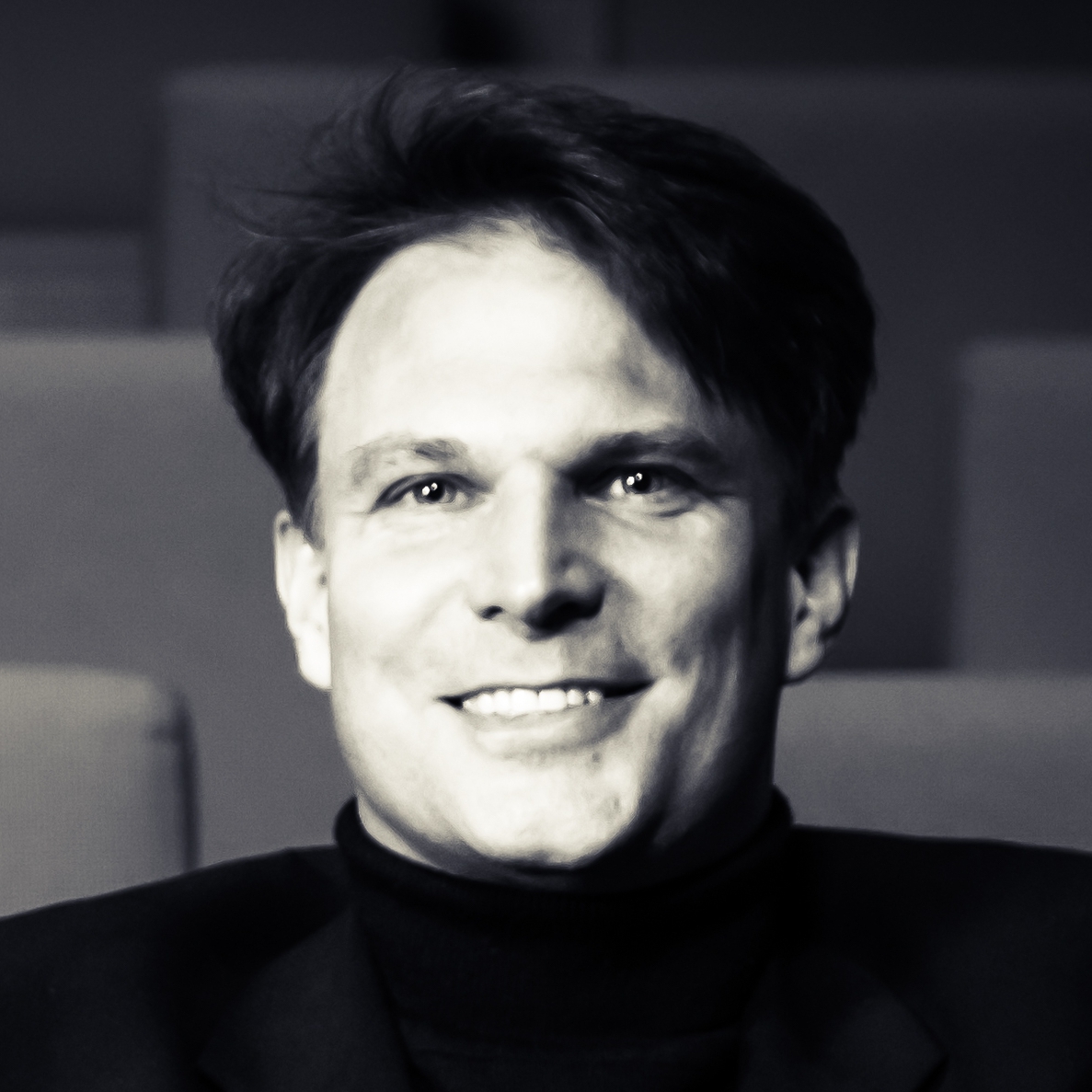
Bernhard Dolch
*4 August 1972
Bernhard Dolch awarded - among others - diplomas in the outstanding guitar classes of Carlo Marchione and Joaquín Clerch. In addition to his academic studies, he also received instruction from Paul O´Dette and Eberhard Feltz (mentor of the Kuss and the Vogler String-Quartets) and founded together with Anne-Kathrin Gerbeth DUO GUITARTES.
In the course of his concert activity, he has performed in renowned concert halls and in major chamber music and guitar festivals. Meanwhile certain well-known composers dedicated compositions to him, including Joseph Phibbs (‘one of the most successful composers of his generation’ - BBC Music Magazine). Bernhard Dolch is lecturer at the University in Cottbus and has taught as visiting professor in Tianjin and Bangkok. Graduates from his class have gone on to win prizes at international competitions in Europe and Asia.
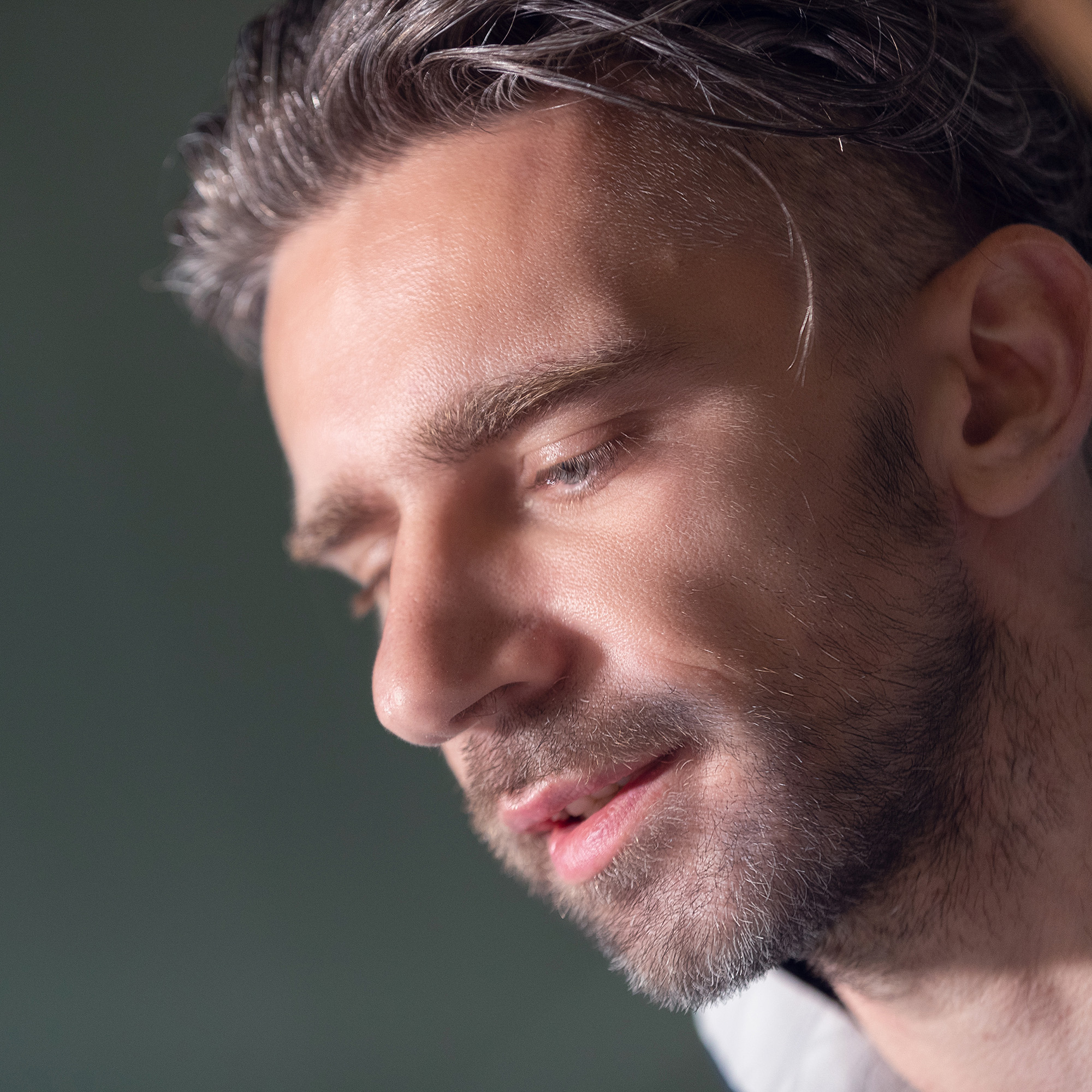
Christian Dimpker
*29 August 1982
Christian Dimpker is a composer and art theorist with a background in Philosophy, History and Sound Studies, culminating in a doctorate in Musicology and Composition. Dimpker’s music includes instrumental, vocal, orchestral, choral and electroacoustic works (opera N. 1-26) with a strong theoretical basis through the treatise Extended Notation: The Depiction of the Unconventional (LIT Verlag, 2013). Currently, Dimpker is expanding this artistic research – the upcoming monograph Kinetic Notations for the Visual and Performing Arts (Transcript Publishing/Columbia University Press, 2025) develops notations for extramusical events. It enables composers to write scores for light ballets, video, performance or mediatic dances (opera N. 27-35). All pieces are published by Universal Edition Vienna. Dimpker’s artistic research has been recognised through numerous grants, inter alia awarded by the Berlin Senate, the German government, the E.ON and Lotto foundations as well as the German Artist Fund, Musikfonds and GEMA – with performances and exhibitions across Germany, Japan, France, South Korea, Portugal, Australia, Serbia, the USA, England, Sweden and Romania by ensembles such as the International Contemporary Ensemble, Contemporary Insights, Elision Ensemble, Ensemble 2e2m and Ensemble Resonanz. In addition, Dimpker’s works as a music engraver include Helmut Lachenmann’s Schreiben for Breitkopf & Härtel and numerous pieces for James Dashow.
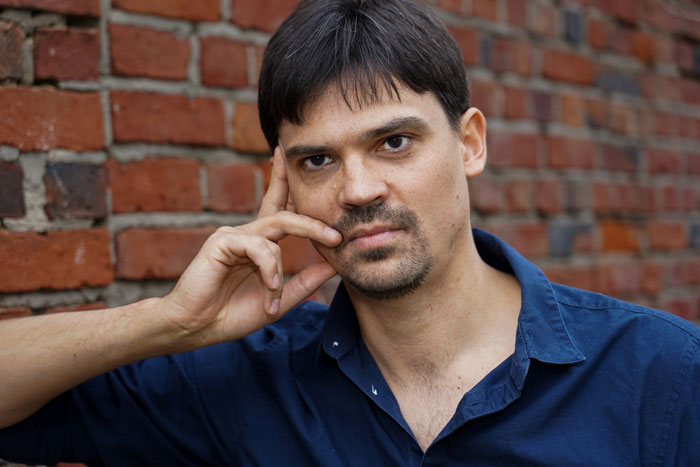
Christian Korthals
*25 October 1978
Christian Korthals was born in Nuremberg, Germany in 1978 and studied Computational Linguistics, before he decided to travel the world as a street musician for one year. He then continued to study the jazz saxophone at ArtEZ Conservatory, Arnhem, Netherlands. He toured internationally with his sextet Tian et al, the gypsy jazz band D'Artagnan and the Composers' Orchestra Berlin. He received grants from Initiative Musik and the Senate of Berlin. Besides his projects as a soprano and tenor saxophonist, he is also active as a pianist, composer and actor (recently in Paulus Mankers productions "Alma" and "The Last Days of Mankind"). His published compositions include pieces for saxophone quintet as well as works for large ensemble. He has been living in Berlin since 2012, where he also teaches.
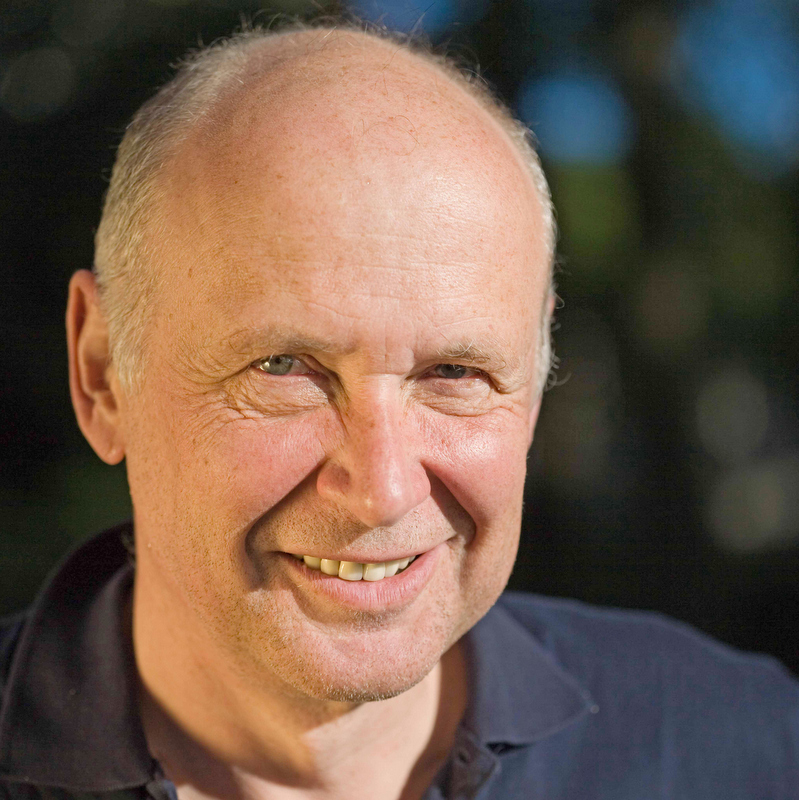
Christof Herzog
*5 January 1951
†23 August 2022
Christof Herzog, born and raised in Lübeck, studied composition with Milko Kelemen in Stuttgart, received the Stuttgart City Prize for Young Composers and a grant from the Baden-Württemberg Art Foundation. He wrote two opera projects with Gisela Elsner: Die Zerreißprobe UA Munich 1985 and Friedenssaison (so far only excerpts have been performed). Together with Christa Weber, he founded the Weber-Herzog-Musiktheater, which resulted in many short operas, chanson programs, children's cantatas and 6 a cappella operas - performed at numerous private theaters in Munich and Berlin, at the Semper Oper Dresden, the Komische Oper Berlin, Theater Biel and Theater Solothurn. Herzog wrote orchestral pieces: WDR, Orchestra of the Hanseatic City of Lübeck, Brandenburg Symphony Orchestra; 3 great operas, 1 fairy tale opera (not yet premiered) and numerous chamber operas: Kiel Opera, Dortmund Opera, Dresden Semper Opera, Berlin Komische Oper, Biel Theater and Solothurn Theater. Christof Herzog died on 23 August 2022 in Berlin.
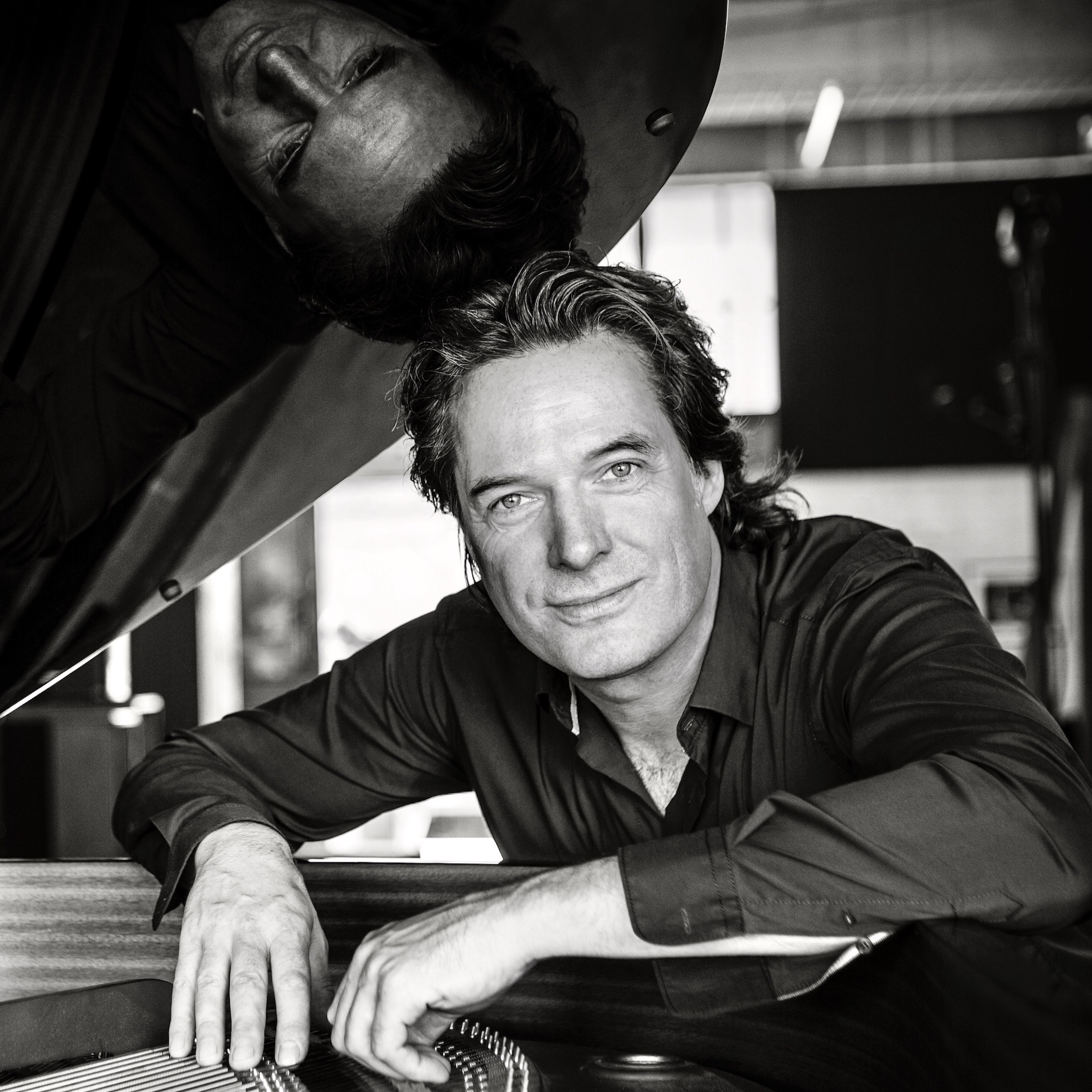
Dirk Bleese
*15 November 1968
Dirk Bleese has been part of the jazz scene in his hometown of Hamburg, and further afield in Germany, since studying jazz piano at the Hochschule der Künste in Berlin in 1993.
He founded the Hamburg Jazz Orchestra, the JazzHaus Hamburg e.V. initiative, the Jazzbüro Hamburg e.V., and has directed several festivals of various formats. He has worked at Hamburg's state theaters, musical theaters, and stage plays and cabaret stages, as a musical director, conductor, composer, keyboard player and on-stage musician.
For the past twenty years he has taught piano at the Staatliche Jugendmusikschule Hamburg, where he directed the preparatory course for rock/ pop/ jazz studies. As a composer, he has written numerous stage plays, including two musicals and several plays for children. He has been a guest conductor for the NDR Big Band, using his arrangements. In 2016 and 2018 two albums by the Dirk Bleese Trio - "in between" and "in zwischen" - were released by LAIKA-Records.
Even before the pandemic, he had decided to explore new avenues, including as an author of music textbooks, to which he can contribute his experience as a professional musician and as an educator.
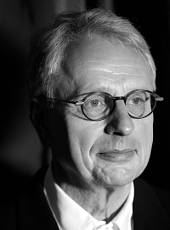
Eberhard Kloke
Born in Hamburg in 1948, Eberhard Kloke began his career as a répètiteur and conductor in Mainz, Darmstadt, Düsseldorf and Lübeck, before he was appointed General Music Director in Ulm in 1980. He took on the same position in Freiburg/Breisgau in 1983.
Kloke was General Music Director of the Bochum Symphony Orchestra from 1988 to 1994, also leading the Nuremberg Opera and the Nuremberg Philharmonic Orchestra from 1993 to 1998. He was awarded the German Critics’ Prize in 1990.
Kloke’s artistic work centres above all on modern music and realising new conceptual approaches to music; in Freiburg, Bochum and Nuremberg he organised and conducted large-scale cycles of contemporary music programmes (the works performed including Götterdämmerung_Maßstab und Gemessenes, Jakobsleiter, Ein deutscher Traum, Aufbrechen America, Prometheus, Jenseits des Klanges). He has been living in Berlin
since 1998, working as a freelance conductor, project initiator and composer.
http://www.musikakzente.de/werke.html
Since 2002 Kloke has been published as a composer and arranger by Universal Edition (Vienna), since 2017 also by Schott-Music (Mainz), since 2018 by Sikorski (Hamburg) and since 2019 also by Boosey&Hawkes (New York-London-Berlin).
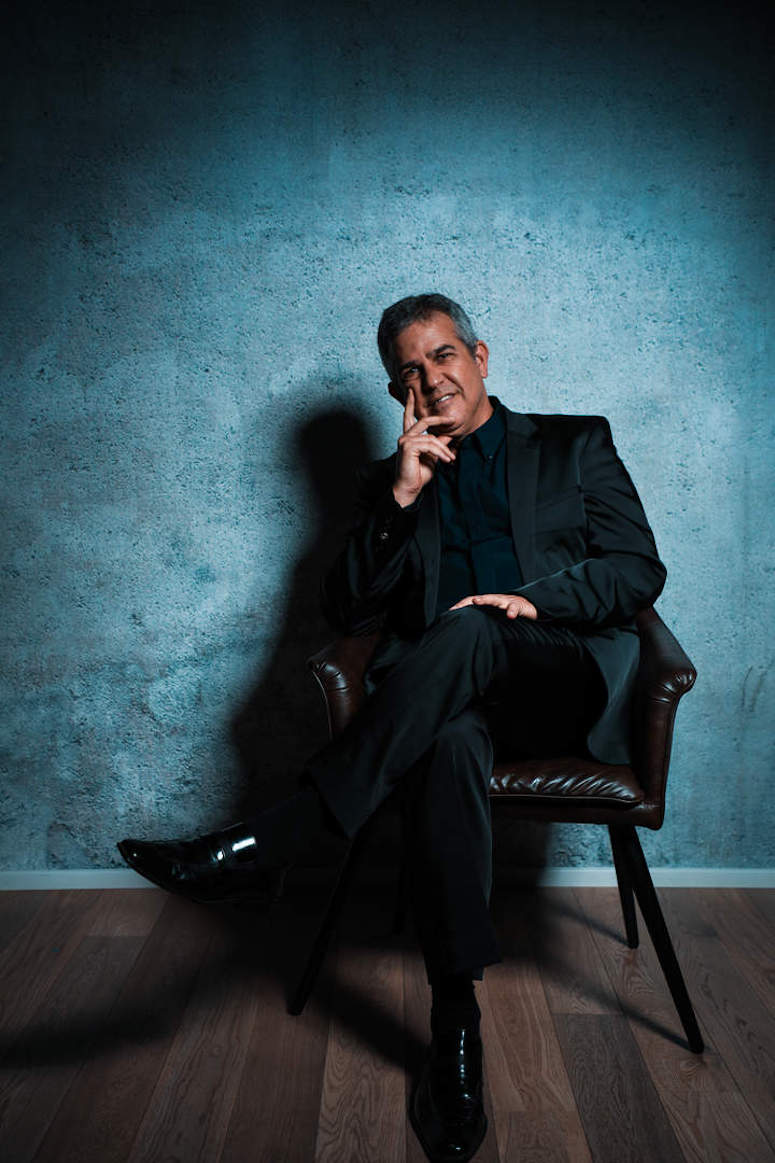
Eyal Ein-Habar
*6 July 1971
” ...Ein-Habar is an artist with presence, personality, and impeccable performance…” (Yossi Schiffmann, Globes) Former solo flute with the Israel Philharmonic, flutist-conductor Eyal Ein-Habar is currently Flute Professor at the Musikhochschule Münster. Winner of international competitions and awards, Ein-Habar’s international career has brought him around the globe as soloist, conductor and pedagoge. Eyal had his Debut as soloist with the Israel Philharmonic under Zubin Mehta at the age of 18. Shortly after he shared the stage with Jean-Pierre Rampal as co soloist on a concert tour. A most memorable debut in Carnegie hall, Disney hall (LA) and other venues, highly praised by the american press, under Gustavo Dudamel and the Israel Philharmonic. He appears regularly both as a soloist and as a conductor with all the major Israeli orchestras, including the Israel Philharmonic, as well as with numerous orchestras around the world. He gives international recitals and master classes and
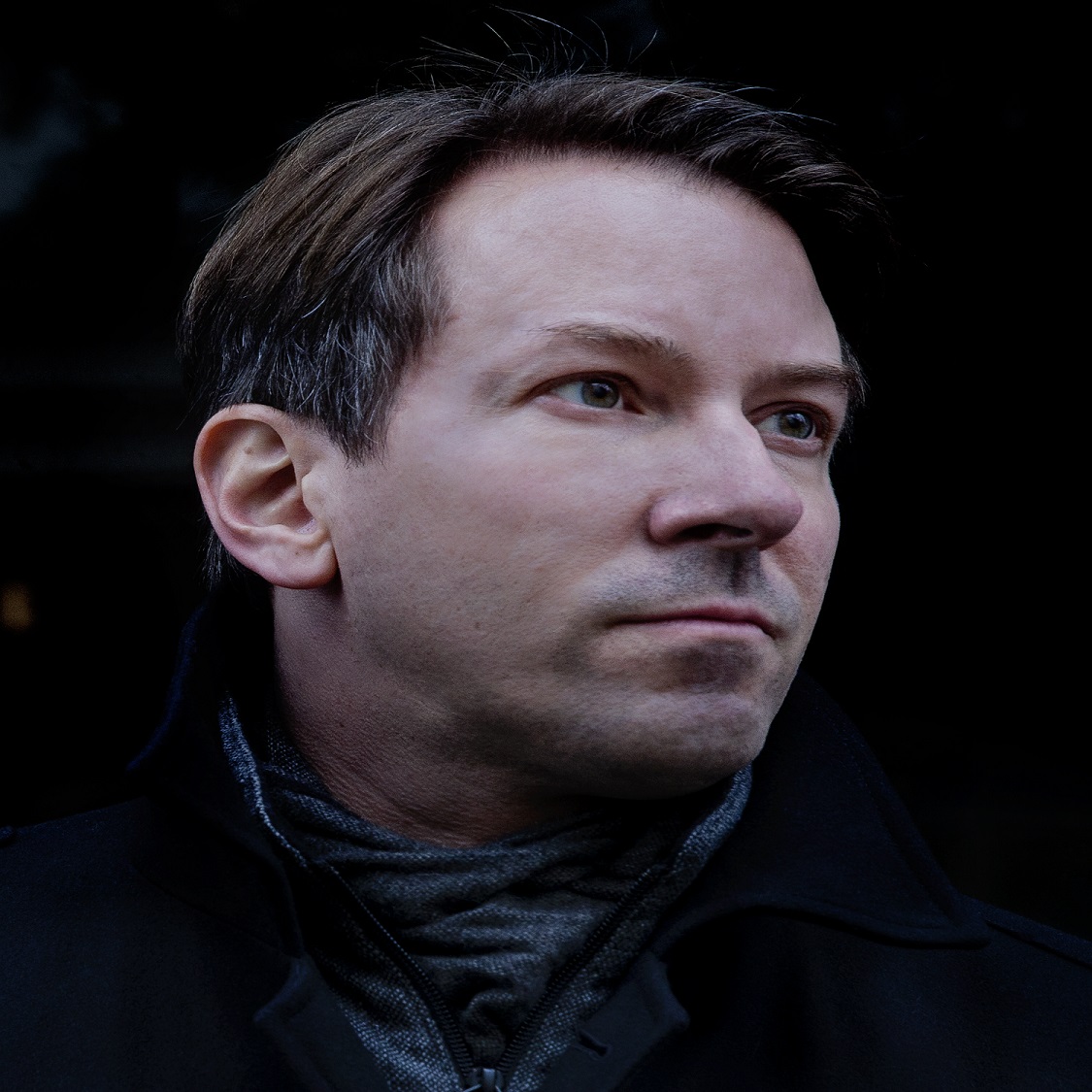
Felix Krieger
*29 April 1973
The conductor and composer Felix Krieger was born in Freiburg i. Br. and received his musical education at the Hochschule für Musik Freiburg, at the Hochschule für Musik und Theater Hamburg and as a master student of Carlo Maria Giulini at the Scuola di Musica in Fiesole/Italy.
He began his career as assistant to Claudio Abbado with the Berlin Philharmonic, and assisted Daniele Gatti at the Bayreuth Festival and Michael Gielen with the SWR Symphony Orchestra.
Since then, he has conducted numerous major orchestras, including the BBC Scottish Symphony Orchestra, the Staatskapelle Berlin, the Deutsches Symphonieorchester Berlin, the Staatskapelle Dresden, the London Sinfonietta, the Munich Radio Symphony Orchestra, the Paris Opera Orchestra and the Orchestra Sinfonica Siciliana, and has conducted productions at opera houses such as the Berlin State Opera, the Teatro Comunale di Bologna, the Semperoper Dresden and the Opéra National de Paris.
He has been artistic director of the Berliner Operngruppe since 2010 and has since than conducted the ensemble in highly acclaimed opera discoveries at Berlin’s Konzerthaus, including the Berlin premieres of Verdi's Stiffelio, Puccini‘s Edgar and Mascagni‘s Iris and most recently in May 2023 the worldpremiere of Donizetti's Dalinda.
His complete recording of Mascagni‘s Iris (2021, Oehms Classics) received several nominations for the Opus Klassik award (including „Conductor of the Year“), for the prestigious Deutsche Schallplattenkritik award and the International Classical Music Awards 2022. In 2018 Sony Classical released his album The Art of Ensemble with London Sinfonietta and works by Spanish composer Benet Casablancas (*1956).
Felix Krieger first appeared publicly as a composer in 2015. His works were performed at the Festival Musica Nova "Gilberto Mendes" in Brazil and by the Ensemble UnitedBerlin at the Konzerthaus Berlin, among others.
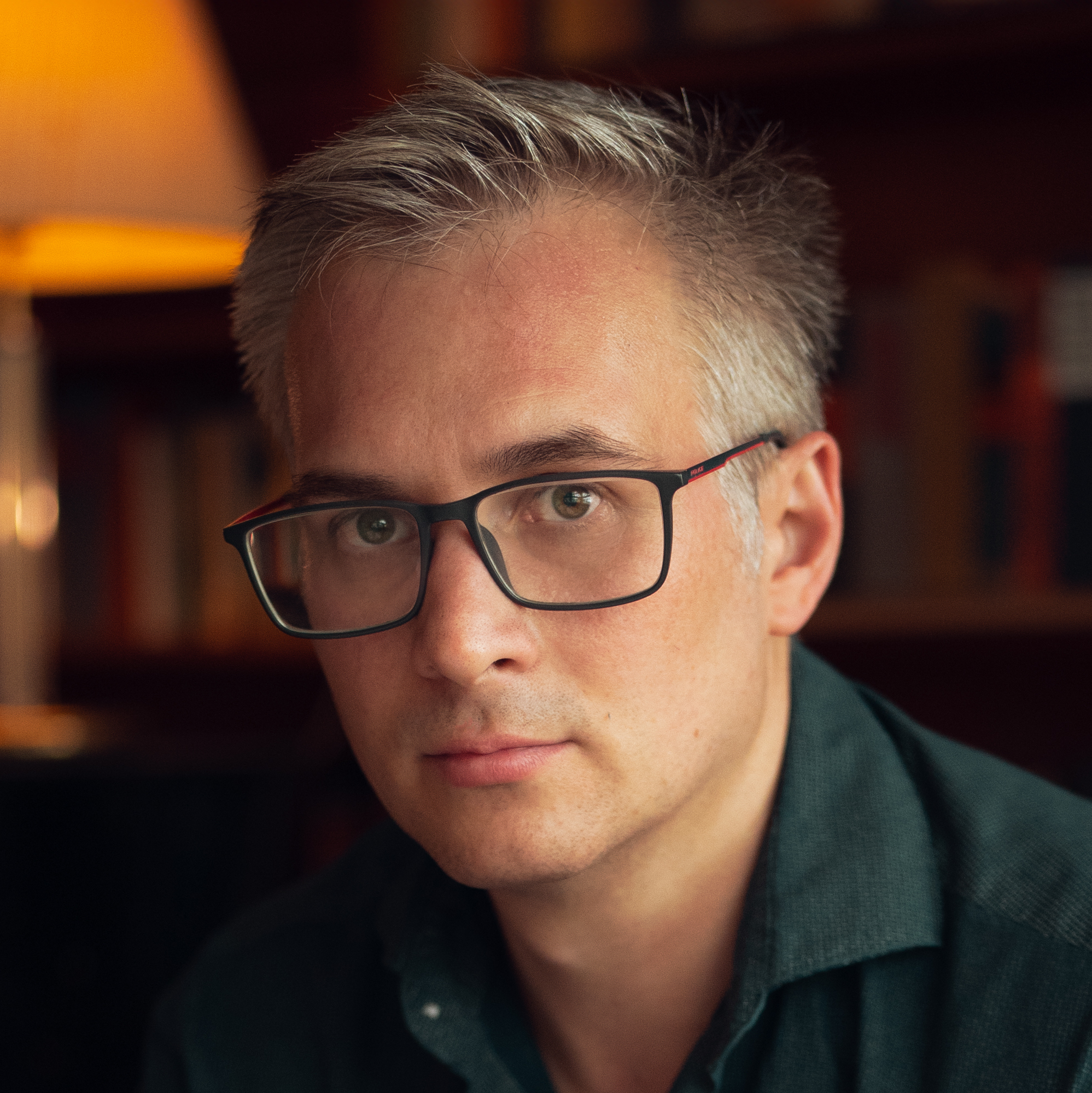
Florian Bergmann
*16 January 1984
Florian Bergmann (born in 1984 in Berlin) is a composer, multi-instrumentalist, and performer. He is artistically at home in a broad spectrum of contemporary music, ranging from new music and contemporary music theatre to experimental jazz and improvised music. He studied at the Hanns Eisler School of Music and the Berlin University of the Arts from 2004 to 2009.
The focus of his work is on the composition of instrumental chamber music, in which he combines his passion for the exploration of unusual sounds and sound combinations with a deep understanding of the rhythmic flexibility and complexity of jazz and a penchant for the theatrical staging of music. Many of his works contain innovative preparations of instruments, use everyday objects as sound generators, or introduce non-instrumental sounds into the musical discourse through electro-acoustic means.
He has composed works for his Trio Transmitter (with Benedikt Bindewald and Alba Gentili-Tedeschi), the saxophone quartet Fo[u]r Alto, the Kreuzberg Clarinet Collective, the Circuit Training Ensemble, the Ensemble 5of6, the No Input Ensemble Paris, the percussionist Sabrina Ma, for various jazz formations and many others.
He has also written music for numerous music theatre pieces, including "Bubbles" (Theater o.N. Berlin, 2022), "Music Adventure Game" (online release, 2022), "Stadt der Arbeit” (Neue Philharmonie Westfalen, 2021), "Dunkel ist die Nacht, Rigoletto!" (Bielefelder Philharmoniker, 2020), "Klangquadrat" (Theater o.N. Berlin, 2017), "Perspectives" (Ballhaus Ost, 2012), "The Wood Project" (Pumpenhaus Münster, 2011).
Bergmann has received composition grants from the Musikfonds (2022 and 2023), the Berliner Kultursenat (2021), and the Deutsche Orchesterstiftung (2021). His projects have been funded by the Capital Cultural Fund, the Musikfonds, the initiative neue musik berlin, and the Berlin Senate of Culture.
As a (bass) clarinetist and saxophonist, he has performed at the Acht Brücken Festival Cologne, Festival D'Automne à Paris, Grec Festival Barcelona, Munich Biennale, Musiktheatertage Wien, Glatt&Verkehrt Krems, Multiphonic Festival Cologne, Unerhörte Musik & Kontraklang Berlin, Philharmonie & Konzerthaus Berlin, Deutsche Oper Berlin, Berliner Ensemble & Deutsches Theater, Nationaltheater Weimar, Neuköllner Oper and throughout Europe, the USA, Brazil, Taiwan and Singapore. In 2011, he was awarded the Hanns Eisler Prize for contemporary interpretation.
His works have been published by Universal Edition since 2024 and recordings have been released on NEOS Music, Transmitter Music, and Umlaut Records.
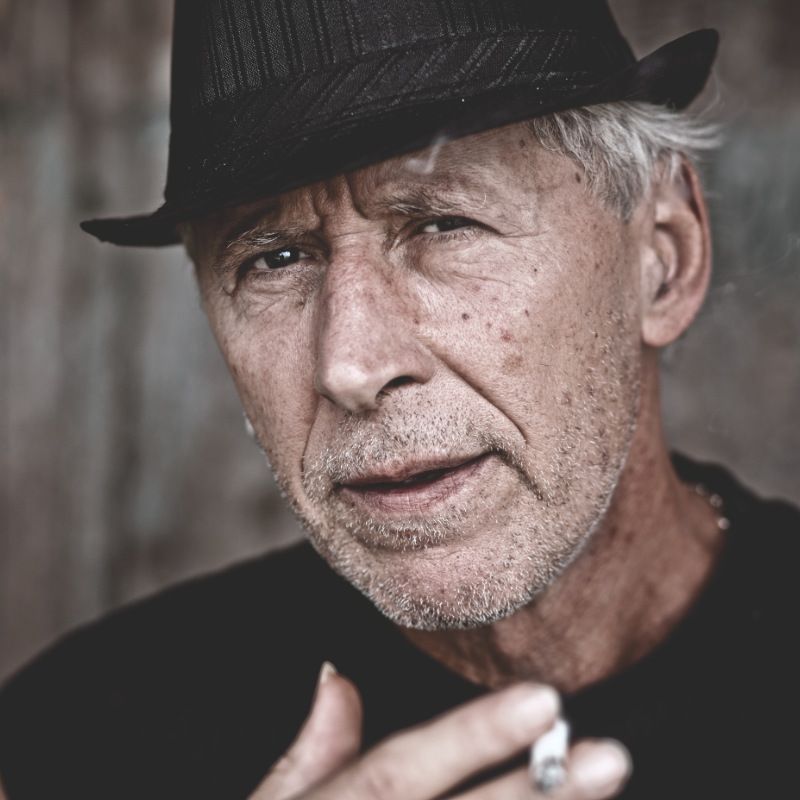
Frank Knabben
*26 June 1956
Frank Knabben was born in 1956 in Bochum, Germany. His grandfather was a violinist and choir singer, and his father a clarinetist and piano player who passed his concert exam.
Knabben's training in classical music began at the age of 6. First on the recorder, then on the piano, at 13 on the concert guitar and at 14 on the flute. Later he added the saxophone, accordion and harmonica. His preferred instruments, however, are the guitar and the flute, for which he also writes most of his compositions.
Already at the age of 16 he gives private music lessions himself. He wrote his first own compositions at the age of 14, and two years later made his debut as a composer at a public concert in the Saal of the old Bochum library. One of the highlights of his musical career was the premiere of the Sonata for Cello and Guitar at a concert of the Bochum Symphony Orchestra in 2011.
Knabben studied music, physical education and educational science at the Dortmund University of Education. From 1986 to 1993, he ran his own music school in the Weitmar district of Bochum. From 1991 to 2022 he taught as a teacher at a comprehensive school in Dortmund.
For over 25 years he has played in a trio with flute, violin/viola and guitar. He wrote over 60 compositions especially for this instrumentation, which the trio regularly performs to public audiences. Knabben also loves rock music. He has written nearly 100 songs for various bands in which he sings and plays the guitar. A selection of these songs has been released on 2 CDs.
If you would like to contact the composer, please write to:
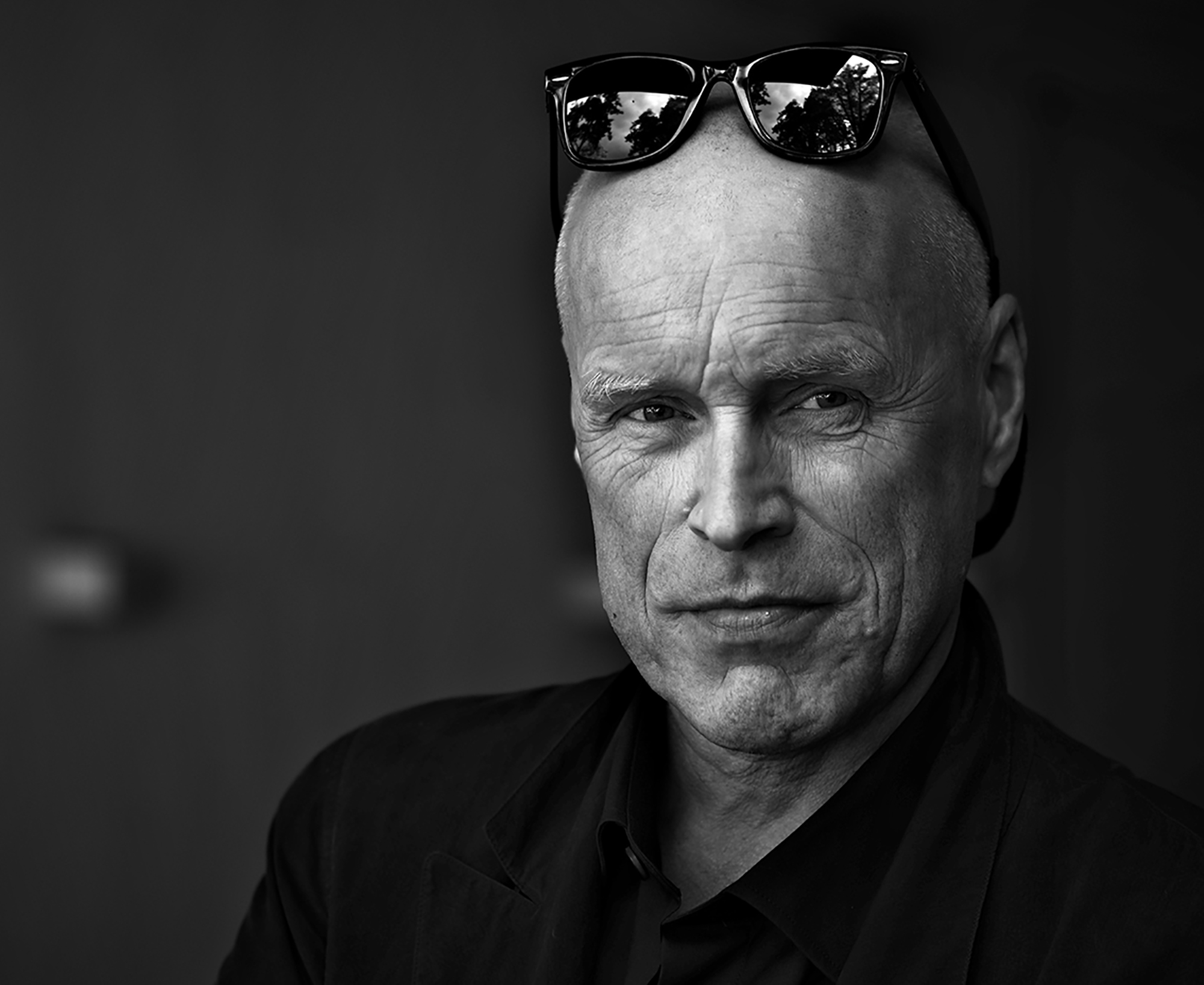
Gebhard Ullmann
*2 November 1957
Gebhard Ullmann since the 1980s has been regarded as one of the leading musical personalities on both the Berlin and international contemporary music scenes.
He released about 70 CDs as a leader/co-leader.
His large-scale woodwind/accordion project 'Tá Lam' from 1990 today is considered a milestone in genre-crossing music.
Ullmann gives master classes worldwide on the topic of improvised compositions, particularly for new music ensembles and orchestra musicians.
In 2019, for the 100th anniversary of the Bauhaus, he composed a score for László Moholy-Nagy's film 'Berliner Stilleben' for the project 'Klingende Utopien' by the BuJazzO, arranging it for big band and choir.
In 2020, he completely reworked his 1995 composition 'Hell und Bunt' for classical saxophone quartet and added microtonal elements.
The world's first microtonal piano quartet under his direction, 'mikroPULS', released its first CD in 2019.
Since the early 2000s, Ullmann has composed and published various chamber music works, including his cycle for woodwind instruments (solo), 'Impromptus und Interationen' (a 61-minute piano cycle) and compositions for violin and trumpet( solo).
Other works include the 'Kleine Symphony for Chamber Ensemble‘ for the Ensemble LUX:NM (Berlin), two string quartets and several works for large orchestra.
Among these orchestral works are his first symphony 'Symphonische Verwebungen für Orchester, Stimme, Klavier und Perkussion', his 'Orchestral Suite No. 1’ and a 21-minute orchestral version of his 'Tá Lam' cycle.
He currently composes a larger piece for orchestra entitled 'Modules for Orchestra'.
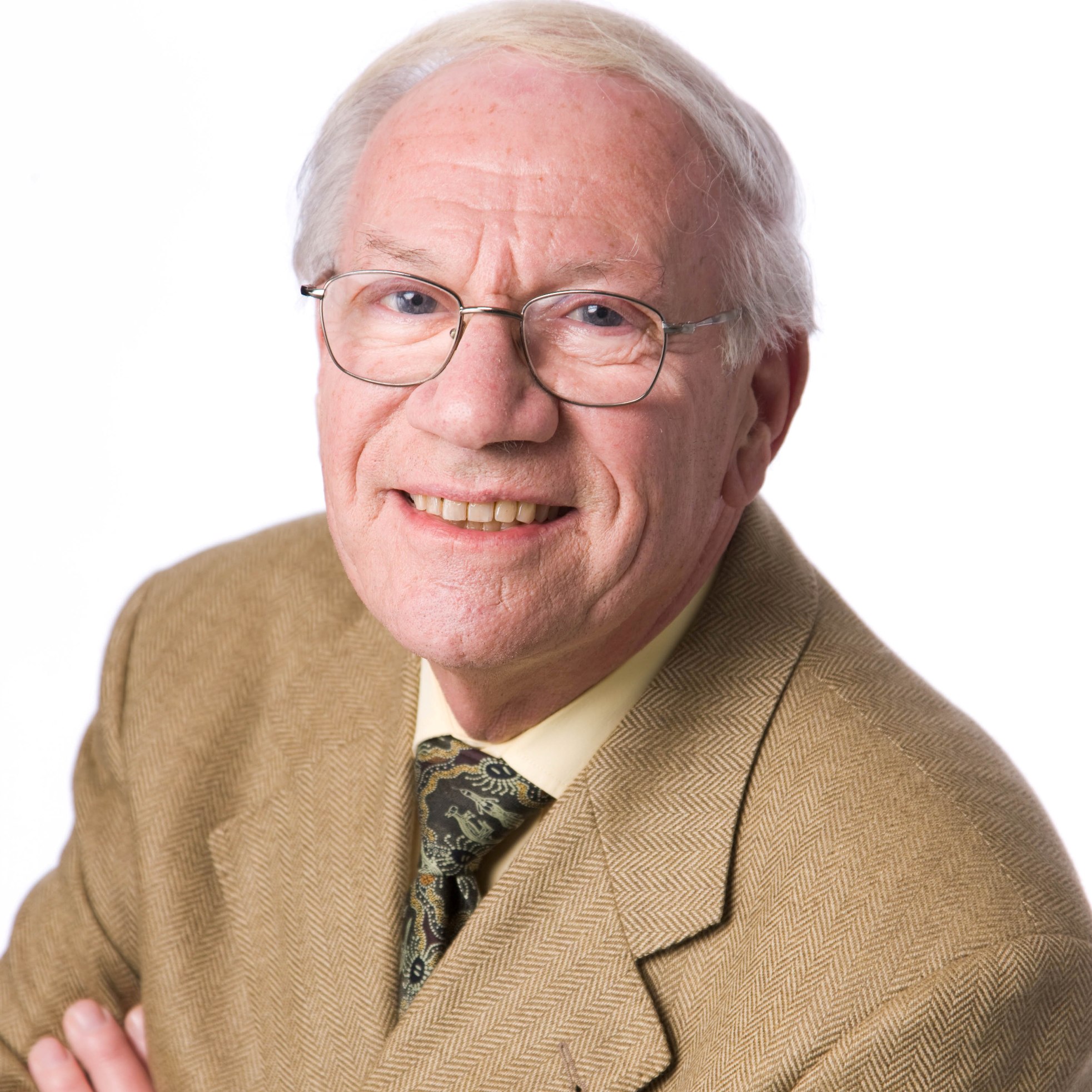
Harald Banter
*16 March 1930
Harald Banter (real name: Gerd von Wysocki) was born on March 16, 1930 in Berlin, the son of the artistic director of the Odeon Lindström record company, Georg von Wysocki. After training as a sound engineer at the Berlin radio station, he became music editor at Westdeutscher Rundfunk Köln (WDR) in 1950, where he founded the Harald Banter Ensemble in 1951, which later became the WDR Media Band. In 1956 he played the first jazz concert with Albert Mangelsdorff in the Gürzenich in Cologne. Together with the Modern Jazz Quartet he performed the twelve-tone composition Twelve by Eleven by Gunther Schuller. For the ballet Marathona di danza by Hans Werner Henze for symphony orchestra and jazz band, Banter wrote the jazz parts in collaboration with Henze. As a composer, arranger and conductor he also worked with Hermann Scherchen and Bernd Alois Zimmermann during these years. Banter wrote numerous film scores for television.
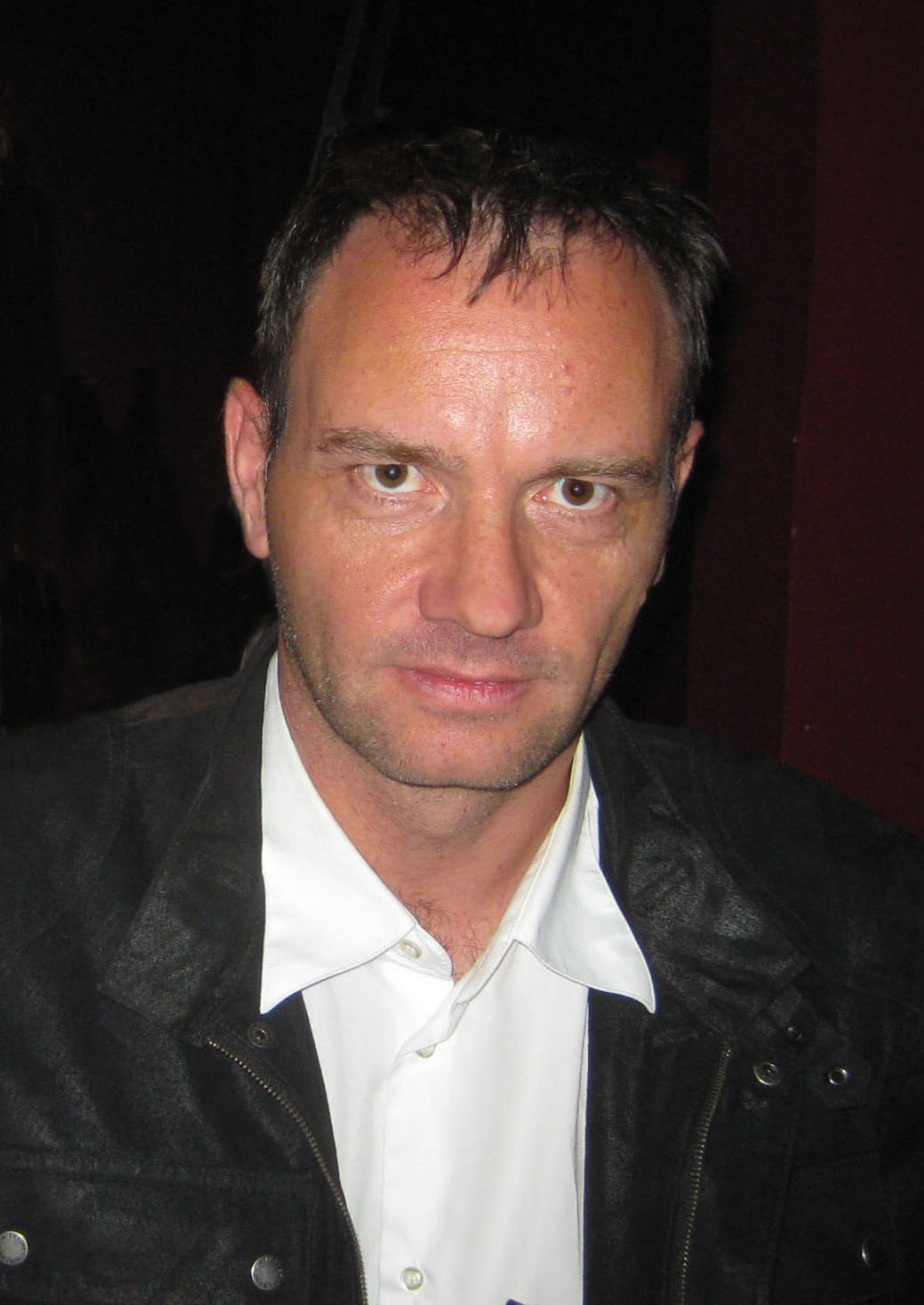
Helmut Krausser
*11 July 1964
Helmut Krausser was the singer, lyricist and composer of the pop band "Genie & Handwerk" from 1985 to 1988, wrote radio play, film and choral music in between and began self-study of symphonic composing in 2011. Two pieces for six-part choir based on texts by William Shakespeare were premiered in 2012 at the Elisabeth Church in Kassel. Then in 2014 his first orchestral piece, the suite from the opera "Am Rande der Nacht" (Deutsche Radio Philharmonie Saarbrücken-Kaiserslautern, conducted by Enrico Delamboye). In 2019, the cantata "Ulysses Commanded" (by the Oslo Opera House Choir, conducted by Martin Wettges) and the Viola Concerto (soloist Nils Mönkemeyer, Cyprus Symphony Orchestra, conducted by Jens Georg Bachmann). Most recently, he wrote several symphonies and the music for the novel JEANNE, a kind of pirate music and homage to Korngold. The 8,5 Symphony was given 10/21/2023 in Aue by the Erzgebirgische Philharmonie conducted by J.G. Bachmann
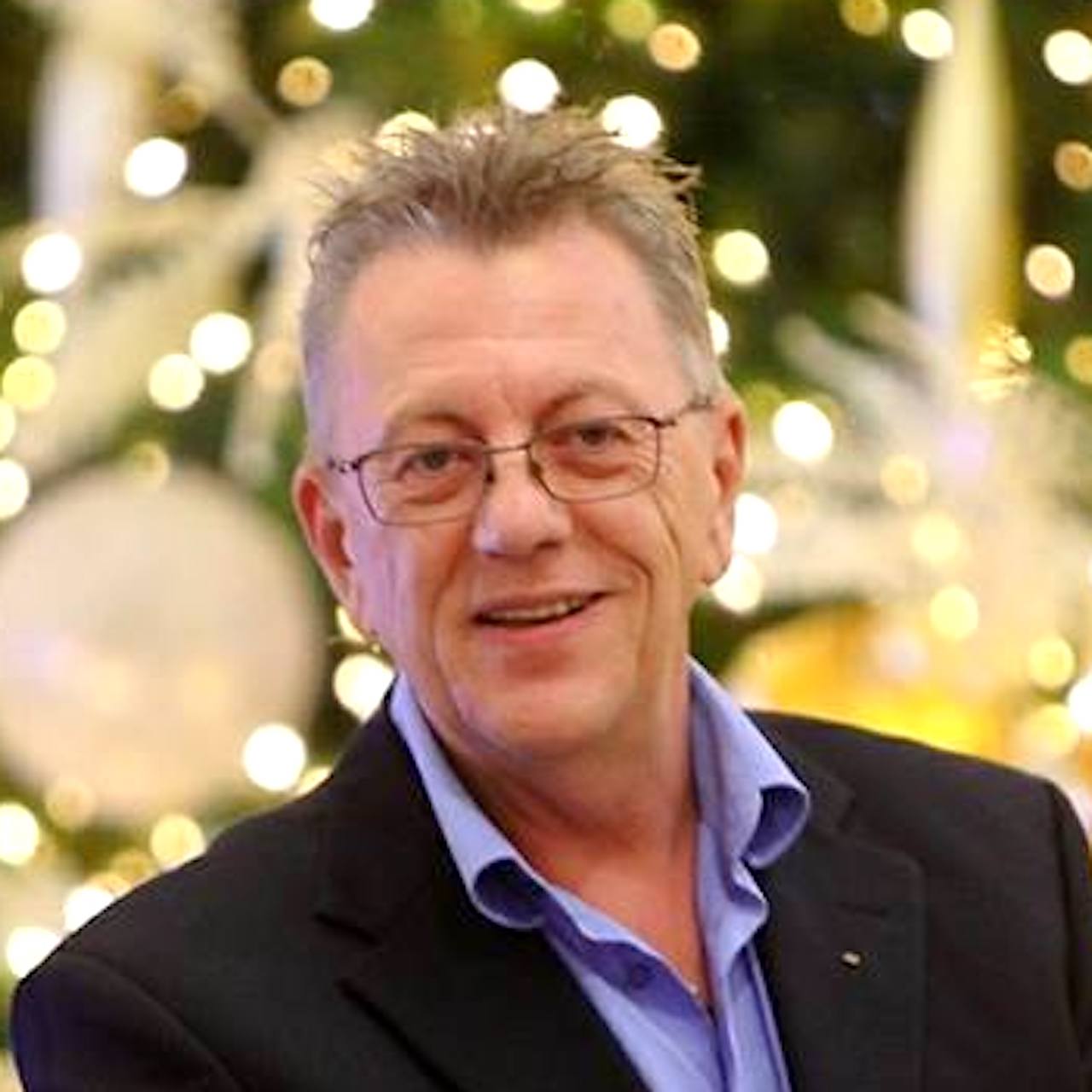
Horst-Hans Bäcker
*28 March 1959
Born in Bucharest (Romania) in 1959, the Composer and Conductor Horst-Hans Bäcker took his first piano lessons at the age of five with Tamas Vesmas. In 1973 Bäcker left Romania with his parents and came to Germany where he studied Composition from 1981 with Professor Ludwig Werner Weiand at the Conservatory Rhineland.
Bäcker continued his studies from 1983 until 1986 at the Mozarteum in Salzburg, where he studied Composition with Professor Gyula Horvath, Conducting with Professor Kurt Prestel and Historical Informed Performance with Professor Nikolaus Harnoncourt. In 1984 Bäcker founded the SALZBURGER VOKALENSEMBEL and directed this Chamber Choir until his departure from Salzburg.
Bäcker completed his training in Composition from 1986 to 1989 under Professor Jürg Baur at the Rhineland Academy of Music in Cologne. Since his studies in Cologne Bäcker has been commissioned to compose music by musicians and chamber ensembles from all over the world. In addition, he has been commissioned to compose music for special occasion by various European cities. With his composition “From the Depth I Cry Out to You Lord” Bäcker won the prize of the De Profundis Composers Competition in Cologne.
His works are published by Waldkauz Musikverlag and by Universal Edition Wien.
He completed his formation as a conductor in Master Classes with Jorma Panula.
In the year 1996 Horst-Hans Bäcker founded a symphony orchestra, out of which the INTERNATIONALE PHILHARMONIE was founded two years later and for which he was appointed Principal Conductor at the same time.
He has been a regular guest conductor for the Arad Philharmonic Orchestra, Banatul Philharmonic Orchestra in Timisoara, Moldova Philharmonic Orchestra in Iasi, Black Sea Symphony Orchestra in Constanta and Oradea, Sibiu and Craiova Philharmonic Orchestras in Romania, the Northern Hungarian Symphony Orchestra in Hungary and for the choir and orchestra of Camerata Antiqua de Curitiba (Brazil). Among the numerous soloists he has worked with, Bäcker has established some long-term musical partnerships, among others with the Panpipes players Gheorghe Zamfir and Hannah (Matthias) Schlubeck, with the Violinists Christina Anghelescu, Bogdan Dragus, Sophie Moser and Sebastian Casleanu, with the Canadian Guitarist Dale Kavanagh, the German-Canadian Amadeus Guitar Duo and the British Eden-Stell Guitar Duo, as well as with the pianists Katja Huhn, Ekaterina Litvintseva, Mihai Ungureanu and Tamas Vesmas.
Since 2003 Horst-Hans Bäcker is permanent guest conductor of Arad State Philharmonic Orchestra and the State Philharmonic Orchestra “Oltenia” in Craiova. Since 2006 he is also permanent guest conductor of the State Philharmonic Orchestra “Banat” in Timisoara and was commissioned by the orchestra to compose a work for Choir and Orchestra for the Celebration of 60 years as Romanian State Orchestra. The composition “Rapsodia Timisoreana” including tribute to the most important Romanian Composer George Enescu and the most important Romanian poet Mihai Eminescu, was enthusiastically received by the members of the choir and the orchestra as well as by the audience.
Horst-Hans Bäcker’s first CD SPANISH NIGHT including Joaquin Rodrigo’s Concertos for 1, 2 and 4 Guitars and Orchestra was recorded in 1999 and enthusiastically received by the critics. Also the following recordings SPANISH NIGHT II with the guitarist Dale Kavanagh, Amadeus Guitar Duo, Panpipes Player Gheorghe Zamfir and the State Philharmonic Arad; including an orchestral work by Bäcker “Rapsodia Mallorquina” the CD Berühmte Opernarien – Panflöte und Orchester with soloist Gheorghe Zamfir and State Philharmonic Arad, as well as the CD ZauberPANflöte with panpipes player Hannah (Matthias) Schlubeck and the State Philharmonic Transylvania were very successful and full of tribute.
Beside his Compositions Horst-Hans Bäcker, since 2006, is delighting the audience with his Arrangements for Symphonic Orchestra and some for Choir and Orchestra of works by the Bands such as Beatles, Queen, Deep Purple, Led Zeppelin, Rolling Stones, Supertramp and others. Each time these concerts are sold out and Highlights were some Open-Air Concerts with each about 25,000 enthusiastic spectators. Another positive effect of this kind of concerts is to bring young people closer to Symphony Orchestras and Choirs.
In 2016 Horst-Hans Bäcker moved to the Philippines where he is Professor for Composition and Conducting and Associate Dean of the Conservatory of Music, Theater and Dance in the Liceo de Cagayan University. Since 2017 he is Permanent Guest Conductor of the Classic Youth Orchestra in Cebu. In 2018 he was designated as Principal Conductor of the new established Cagayan de Oro Symphony Orchestra.
The worldwide lockdown of concerts requested new ways of making music. In April 2020 was founded an online group of musicians from all over the world which has 215 members and Horst-Hans Bäcker is the Principal Conductor of The Online Music Group – Orchestra Collaboration.
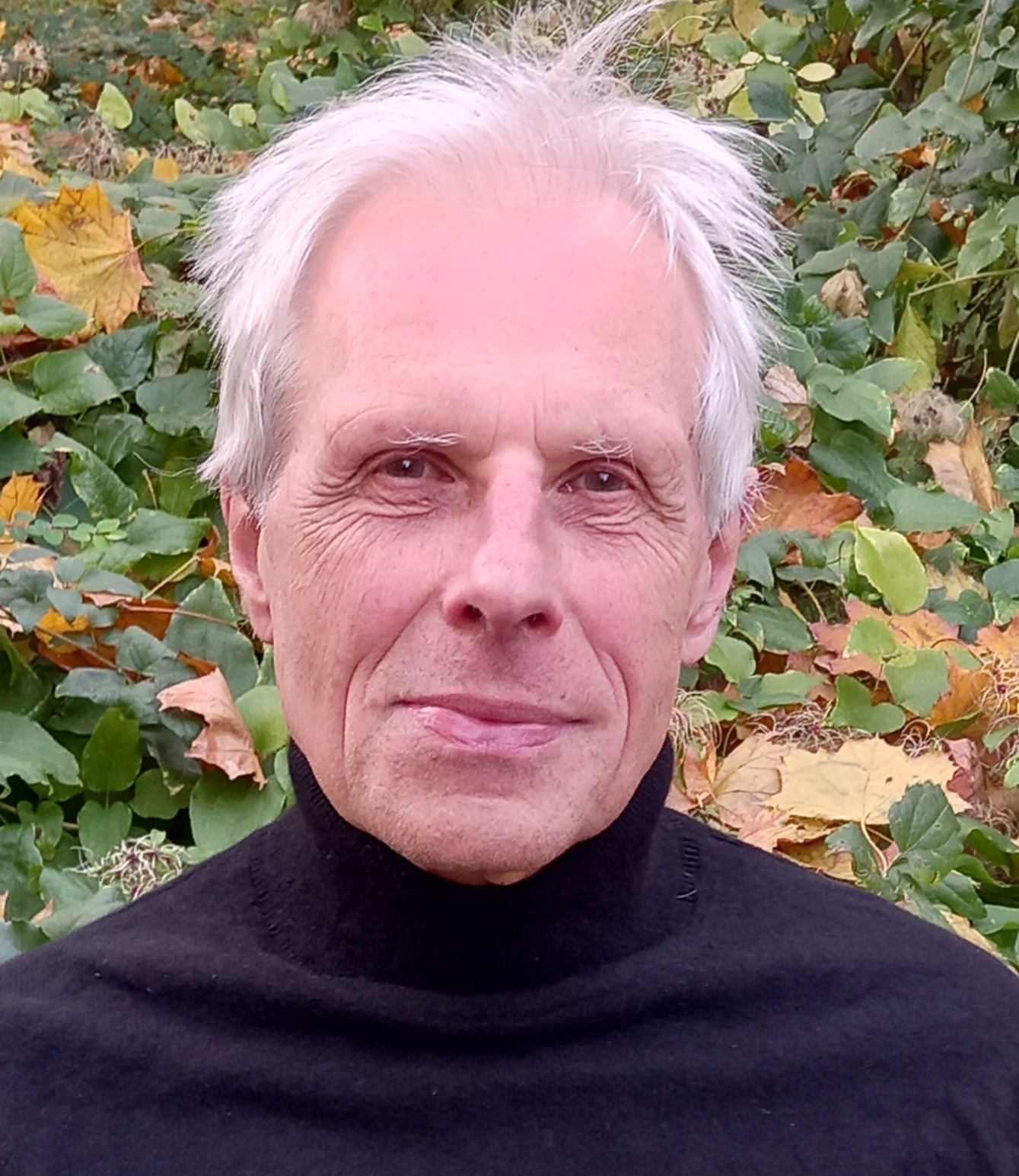
Jacek Domagała
*19 August 1947
JACEK DOMAGAŁA, polish composer, pianist and organist, born 19 August 1947 in Szczecinek. He studied composition with Witold Szalonek, piano under the direction of Olga Dąbrowska, and organ with Heinz Wunderlich. After receiving the Oscar and Vera Ritter-Stiftung scholarship in Hamburg, he participated in master classes conducted by György Ligeti. He is the winner of the Boris Blacher prize in Berlin, the George Mufat prize in Salzburg and the Ludwig van Beethoven prize in Bonn. His works include choral, vocal, instrumental, orchestral, solo and chamber music. Currently Jacek Domagała lives and works in Berlin.
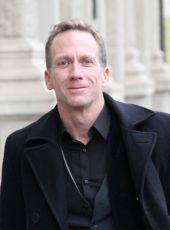
Jay Schwartz
*26 June 1965
Jay Schwartz was born in San Diego, California in 1965 and studied music at Arizona State University. After completing his degree in 1989 he pursued an advanced degree in musicology at the University of Tübingen, Germany. From 1992 to 1995 he worked as assistant Composer in Residence for incidental music at the Stuttgart State Theater.
Renowned orchestras and ensembles throughout Europe have commissioned and performed his works, including the Berlin Symphony Orchestra, the Orchestra Sinfonica Nazionale RAI (Italian National Orchestra), the Stuttgart Radio Symphony Orchestra and Choir, the Radio Symphony Orchestra Frankfurt, the Mozarteum Orchestra Salzburg, the Estonian National Orchestra, the Bavarian State Opera Munich, the Salzburg Opera, the Staatskapelle Weimar, and Ensemble Modern.
His works have been commissioned by and performed at international festivals such as the Venice Biennale, the Munich Opera Festival, Donaueschinger Musiktage, the Documenta Kassel, the International Computer Music Conference in Sweden, the Ultraschall Festival Berlin, and the Witten Festival for New Chamber Music.
In 2000 he won the Bernd Alois Zimmermann Composition Prize from the city of Cologne; he is three times recipient of the Southwest German Radio Heinrich Strobel Fellowship for Electronic Music. He has also received the young artist award from the Ensemble Modern and the International Society for Contemporary Music. In 2007 he was nominated for the prestigious Prix de Composition de Monaco for the composition Music for Chamber Ensemble. A CD of his works was released in 2009 from the label Wergo and the German Music Council.
From 2014 to 2016 he was an Artist in Residence at the Cite Internationale des Arts in Paris. He received the Rome-Prize from the German Ministry of Culture and filled the position of an Artist in Residence at the German Academy Villa Massimo in Rome in 2017/2018. In 2019 he, furthermore, was a fellow at the Civitella Ranieri Foundation in Italy.
Credo - Music for Orchestra VII was premiered by the Orchestra Filarmonica di Torino in 2022.
His latest work Theta (Music for Orchestra VIII) was performed for the first time in 2023 with the SWR Symphonieorchester and Theodor Currentzis.
Jay Schwartz’s works are published by Universal Edition, Vienna. He currently lives near Cologne, Germany.
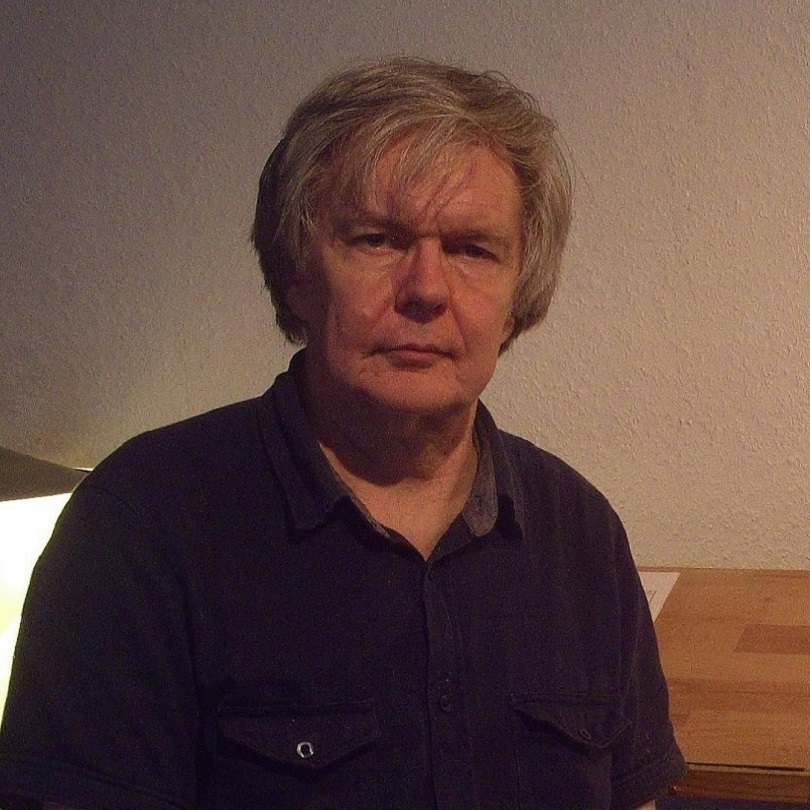
Joachim Heimbächer
*17 February 1960
First music lessons at the age of 9 on the electric organ, the classical organ and the piano.
1983 music teacher training, since then as a teacher
employed. Released albums on "Tree of Arts" and "Magnatune".
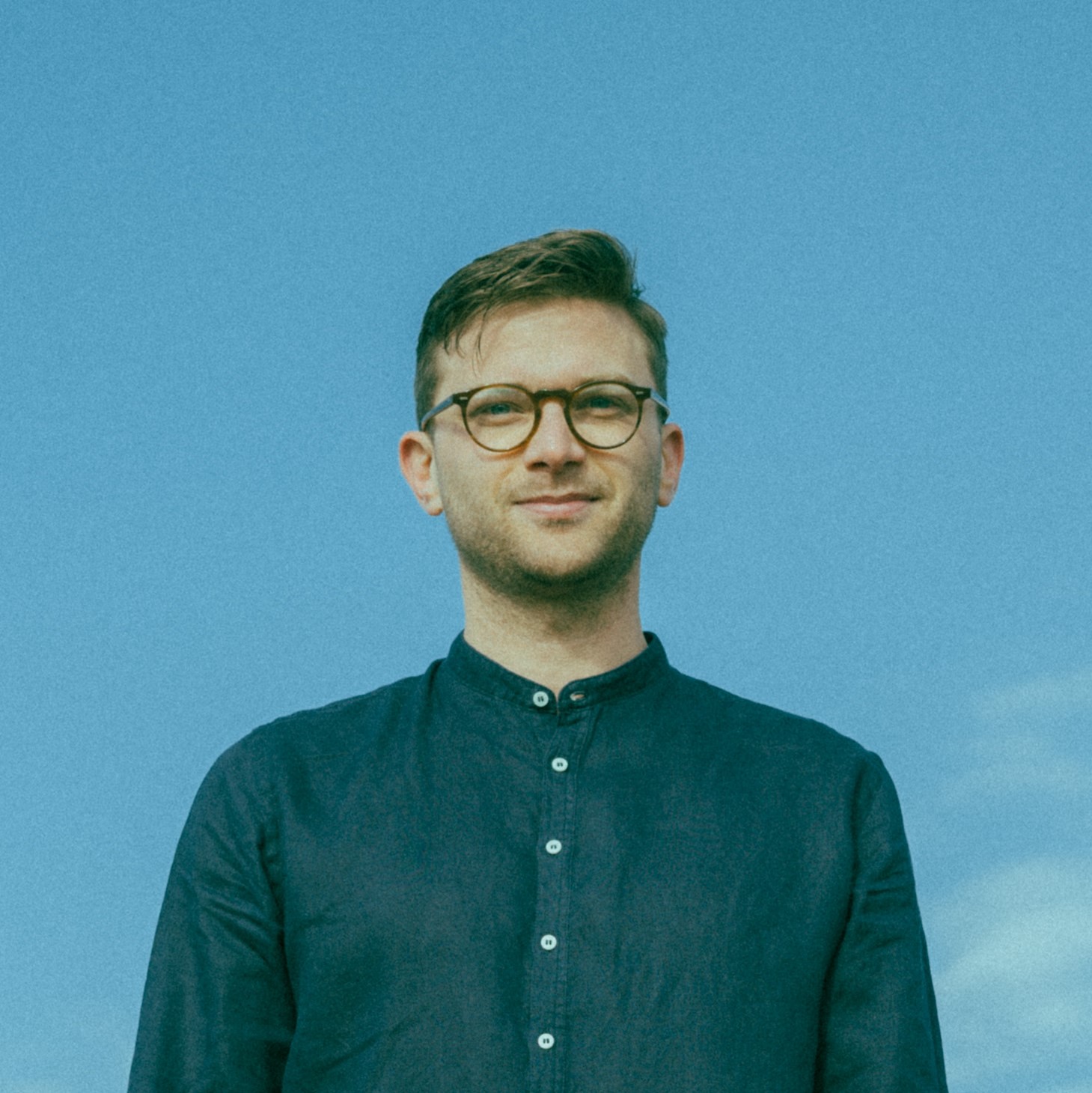
Johannes Winkler
*28 May 1986
Johannes Winkler is a multi-instrumentalist, composer, arranger, orchestrator and producer based in Vienna, Austria. He started out as a classical pianist, expanded his musical studies to Jazz and later on decided to study composition and sound engineering at the University of Music and Arts in Vienna where he also received a Masters Degree with excellence. Always eager to find new ways to express himself, Johannes started experimenting with electronic music and analog Synthesizers, creating a unique sound design. His knowledge and understanding for sound engineering has brought him work on many film sets which also inspired Johannes to develop his skills as a motion picture composer. With a vast background in music education and constant development as multi-instrumentalist, Johannes expands his horizon into many genres of music. His music can be heard on movies, tv shows, commercials and documentaries. The latest addition to his works is his debut music album "Vogelperspektive" which was released late 2021 under his own label vogelrecords.
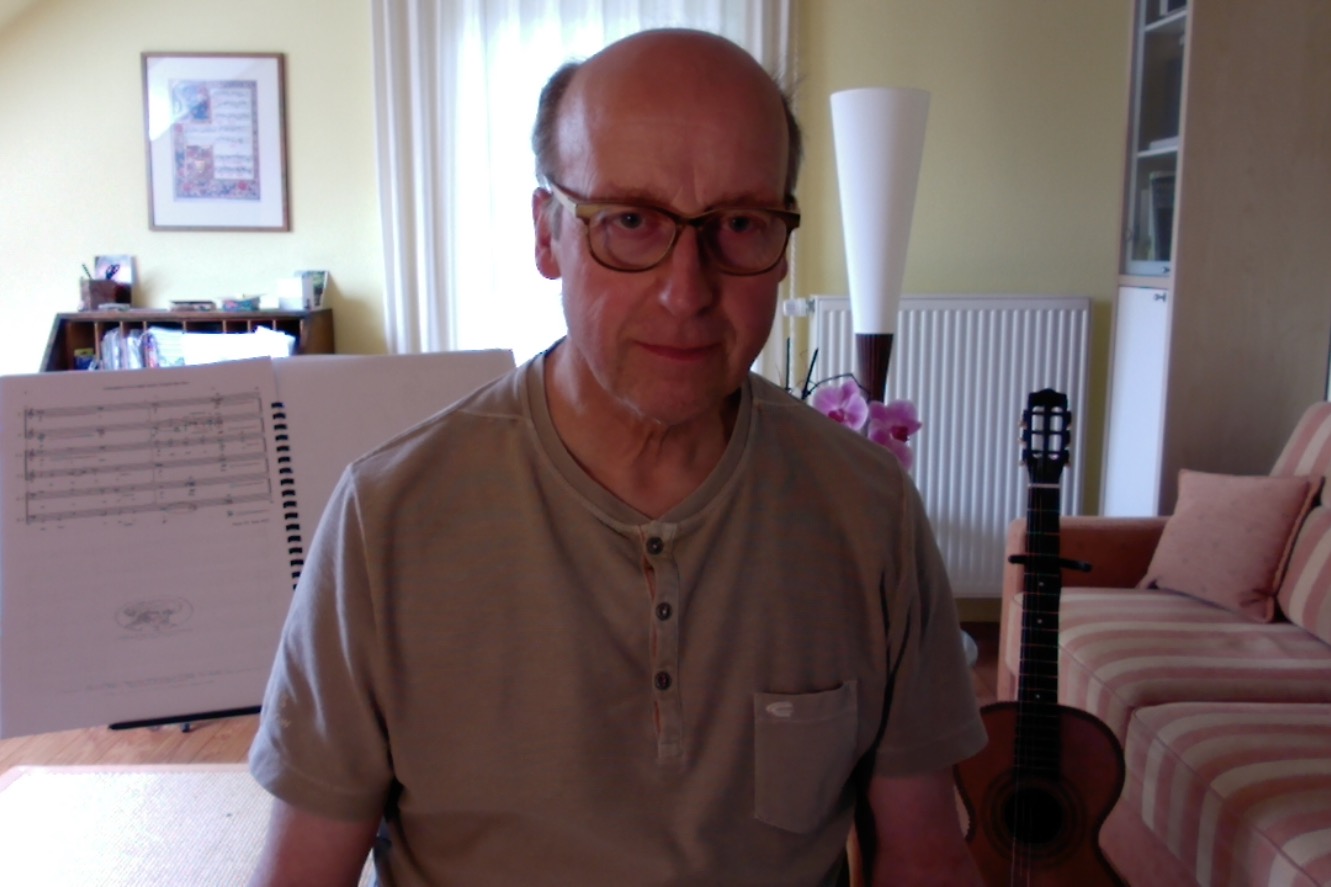
Jörg Schnepel
*1 October 1963
Tabular curriculum vitae of Jörg Schnepel
01 October 1963: born as the third child of Mrs Helga Schnepel, née Schümann and Mr Otto Schnepel In Meldorf, Holstein
1970: Enrolment in the Grundschule (primary school) in Burg, Dithmarschen
1972/1978: Started playing the piano with Mr Trumpf and Ms Ansorge in Burg and Meldorf
1974: Gymnasium (grammar school) Meldorf
1977: Started playing the guitar with Mr Hausig and Mr Jörn Cordes in Burg and Meldorf, later in Husum, North Friesland.
1978: First compositions for guitar and choral music
1982: Lessons in guitar with Ms Katharina Hempel, Hamburg
1983: Abitur (general qualification for university entrance)
Studied classical guitar at the Hochschule für Musik und Theater Hamburg with Prof. Klaus Hempel
1986: Arrangement of an aria from the opera "Carmen" by Georges Bizet for soprano and four guitars for the ZDF television series "Jeder braucht Musik".
Self-taught studies in composition
Artistic diploma studies in classical guitar with Prof. K. Hempel
1989: Study of the lute with Paul O´Dette, Hopkinson Smith and Jose Miguel Moreno
1990: Music Teacher Diploma Guitarist Diploma
Intensification of self-taught studies in composition
Teaching at various music schools in Schleswig-Holstein and Lower Saxony
1996: Marriage to Mrs Elke Saßmann-Schnepel
Teaching guitar, lute and music theory at the Kreismusikschule Wittenberg in the public sector full-time
2002: First performance of the composition “Notturnos des Fensters” based on a poem by F. Garcia Lorca for soprano and chamber ensemble (three recorders, trumpet, trombone, percussion, guitar, piano) in Magdeburg
2005: CD recording "Weihnachten im Wittenberg der Reformationzeit und der Renaissance" as a member of the ensemble "Capella Wittenbergensis".
1999 – 2012: Active concert work on historical plucked instruments:
6 – 10 choir lutes
4 - choral renaissance guitar, Vihuela
Classical guitars (Panormo, 1828, Meinel, 1897) Contemporary guitar (La Mancha, 2016)
in Germany, Austria and Italy
Composition directory
Nun lob, mein Seel´, den Herren (Ps. 103)
Psalm motet for four to seven-part mixed choir
a - cappella (1997, approx. 18 min.)
guitar school
Solos, duos, trios, exercises, etudes, five bicinies, partita for guitar solo (chorale, aria, invention, toccata breve), prelude and fugue for two guitars, valse en rondeau for two guitars
(2000, approx. 90 min.)
Ludum fugit
Four fugues in C, D, E, F for guitar solo
(2006, approx. 13 min.)
Concerto for Guitar and Orchestra
fl, ob, kla., bg, marimba, guitar, vl. 1, Vl. 2, Vla., Vc., Kbs.
I Allegro risoluto II Canzone (Adagio) III Allegro vivace
(2013/2017, approx. 26 min.)
First psalm concert "Der Herr ist meine Macht und mein Psalm" (Ps. 118) for soprano, alto, and chamber orchestra
(flute, clarinet, percussion (chimes, marimba, small and large cymbals), violin I, violin II, viola, cello, double bass
I Antiphon II Psal 118 III Antiphon IV Gloria Patri
(2011, approx. 28 min.)
Second Psalm Concerto "Aus tiefer Not" (Ps. 130)
for 4 to 8-part mixed choir, organ and chamber orchestra (flute, oboe, clarinet, bassoon, violin, viola, cello, double bass)
I Aus tiefer Not (Ps. 130, Martin Luther) II Enarrationes in Psalmos (Aurelius Augustinus)
III Aus tiefer Not
(2012, approx. 16 min.)
Credo Apostolicum ad duodecim voces inaequales
I Credo in Deum Patrem omnipotent II Qui conceptus est de Spiritu Sancto III Ascendit in caelos IV Credo in Spiritum Sanctum
(2012, approx. 11 min.)
Serenata breve
for clarinet, horn, viola and cello
I Largo e Grave - Allegro con spirito II Andante con moto - L' istesso tempo - Maestoso - Duo Liberamente - Allegro corrente
(2017, second version, approx. 10 min.)
Visionis I super "Te Lucis ante terminum"
for clarinet in Bb, bassoon, violin, viola and piano
(2017, approx. 15 minutes)
Variations and Fugue on "Viel Glück und viel Segen"
for piano solo
(2016, approx. 13 min.)
Variations and Fugue on "Mit Ernst, o Menschenkinder"
for piano solo
(2017, approx. 10 min.)
Visionis II super "Ave nobilissima creatura"
(Josquin des Prez)
for string orchestra
(2017, ca. 12)
"Vom Fischer und seiner Frau"
Chamber opera for soprano, tenor, bass, four-part mixed choir and seven instruments (flute, violin, soprano and tenor saxophone, accordion, piano and double bass
Libretto: Silke Wenzel
(2017, approx. 25 min.)
Pater noster
Liturgical Concerto (No. 1) for 6-part mixed choir, congregation, percussion and organ
(2017, approx. 15 minutes)
Visionis III super "Stille Nacht, heilige Nacht"
for organ
(2017, approx. 10 min.)
First Symphony for Large Orchestra
I Molto Sostenuto - Allegro con spirito II Largo misterioso
III Allegro deciso IV Adagio religioso V Introduction - Molto agitato
Visionis I super "Te lucis ante terminum"
(2017, approx. 75 minutes)
Four Marian Antiphons
for 3 to 8 mixed voices
No. 1 Alma redemptoris mater a 5
No. 2 Ave Regina caelorum a 6
No. 3 Regina coeli a 3
No. 4 Salvo Regina 4 - 8
(2018, approx. 20 min.)
Stadt - Land - Fluss
Three motets for 6 mixed voices based on poems by
J. Freiherr von Eichendorff
I In Danzig II Evening landscape III On the river
(2018, approx. 6 min.)
Second Symphony for Large Orchestra
I Prologue Maestoso - Allegro con brio II Monologue Gran Adagio mistico
III Dialogue Allegro scherzando IV Epilogue Grave e maestoso - Andante con moto
(2018-2022, approx. 54 min.)
"Opfer des Lobes"
Antiphon and Psalm 116 for four-part mixed choir and organ
(2019, approx. 3 min.)
"Ein jegliches hat seine Zeit"
Spiritual concerto for soprano and string quartet
I Lento assai - Allegro appassionato II Adagio malinconico - Allegretto con passione III Quasi una fantasia - Agitato - Lento assai
(2019, approx. 20 min.)
"Gemeinsam"
Motet for 4 to 8 voice mixed choir based on a poem by Rose Auslander
(2020, approx. 9 min.)
Sinfonia sopra la vita e la morte for orchestra
I Prelude II Adagio III Allegro molto agitato
(2020, approx. 27 min.)
Motet "Da pacem, Domine" a 6 voci
(2020, approx. 3.5 min.)
Missa "Da pacem, Domine" a 6 voci
Kyrie Gloria Credo Sanctus Benedictus Agnus Dei
(2020, approx. 50 min.)
Third Symphony for Large Orchestra
I Allegro energico II Adagio con grand espressione III Allegro con brio IV Lento assai V Andante con moto
(2020, approx. 65 minutes)
Fantasias about an old Advent song (Mit Ernst, o Menschenkinder)
for treble recorder, guitar and piano four hands
(2020, approx. 10 min.)
Ludwig van... Reflections II for piano and orchestra
(2020, approx. 10 min.)
Award from the University of Oldenburg
Concerto for organ and orchestra
I Maestoso - Allegro moderato II Largo sostenuto III Visionis IV super Victimae pascali laudes
(2021, approx. 32 min.)
Lamentatio nova super morte Josquin des Prez 6 vocum
I O mors inevitabilis II Requiescat in pace/Requiem aeternam
(2021, approx. 8.5 min.)
First performance August 27, 2021, Antwerp, Belgium on the 500th anniversary of his death
Josquin des Prez
Commissioned by the Huelgas Ensemble Conductor: Paul Van Nevel and AMUZ
Alleluia and verse for Easter time
Liturgical Concerto No. 2 for 2 trumpets in B flat, 3 trombones,
Percussion, four-part mixed choir and organ
(2021, approx. 6 min.)
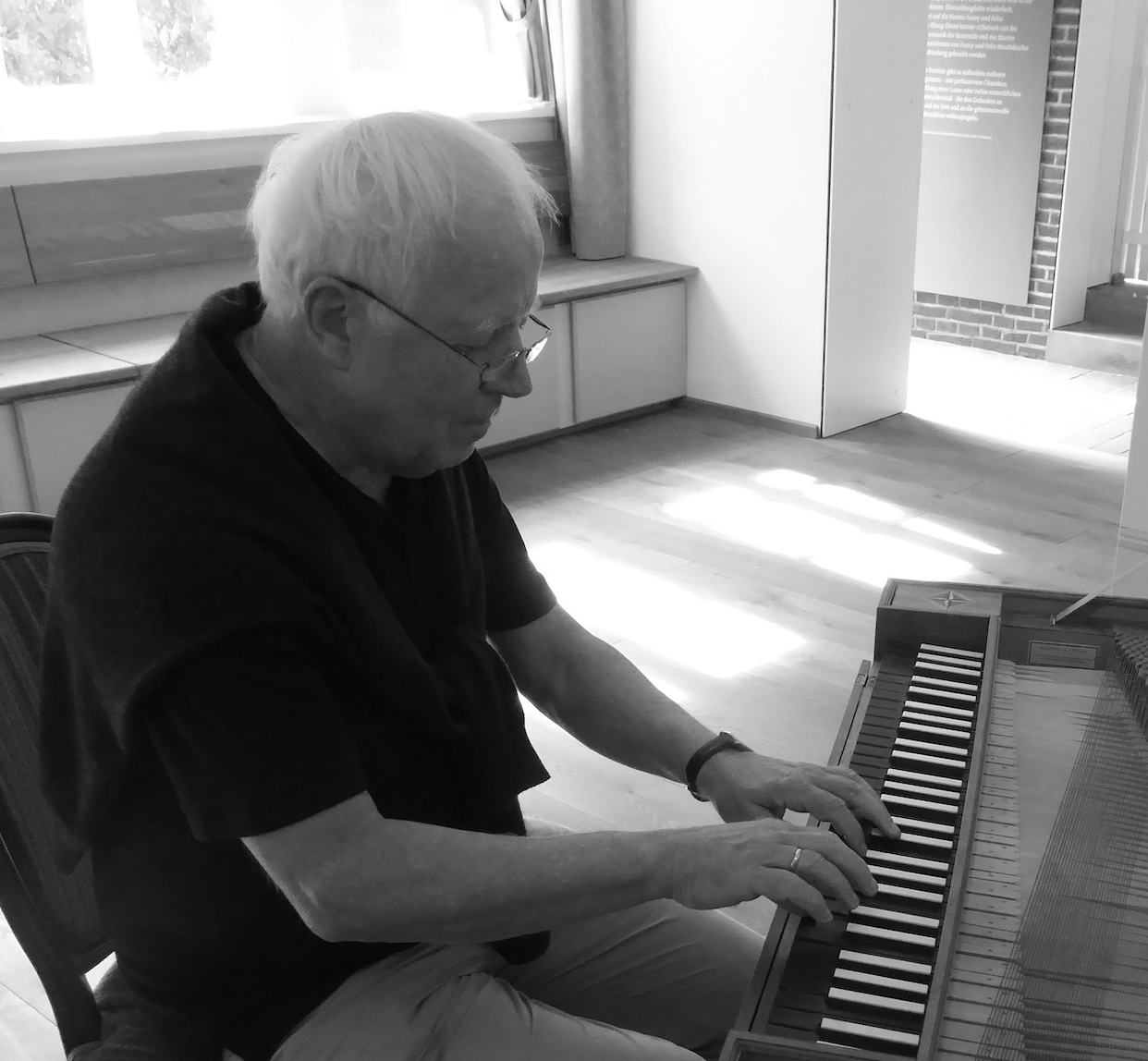
Karl-Michael Vitt
*18 June 1951
At the age of six I started with my first piano lesson. As an adult I learned to play the oboe and later the organ. Since childhood I have had the desire to learn the musical language of the immortal composers.
Most of all I was impressed by the art of polyphony, as exemplified in the works of Johann Sebastian Bach or in the late piano sonatas and string quartets composed by Ludwig van Beethoven.
The Art of the Fugue
Which path leads from the musical idea to a canon or a fugue? This was one of the questions I asked myself.
Prof. Theodor F. Müller (Мюллер, Теодор Фридрихович 1912 - 2000) who taught for many years at the Tchaikovsky Conservatory in Moscow (Московская государственная консерватория имени П. И. Чайковского) and Prof. Elena W. Wjaskowa, Professor for polyphony at the Russian Gnesin Academy for Music (Российская академия музыки имени Гнесиных) , the second conservatory in Moscow, both supported me in answering all these questions.
Answers from Bach and Beethoven
Elena W. Wjaskowa is among the leading musicologists worldwide who study Bach. In 2006 she published fundamental research on the Art of the Fugue by J.S. Bach.
In cooperation with the Beethovenhaus in Bonn she published a book regarding Ludwig van Beethoven's draft book dating from 1823, which you can see in the Muscovite Glinka Museum.
Among others it contains sketches of the late string quartets opus 132.
Those two great musicians helped me to learn the language of music. To educate me, neither Prof. Müller nor Prof. Wjaskowas referred me to text books, but rather to the works of the great composers. Imitation of their works is the key.
That is the procedure by which the secret of a trade is carried on: the trainee first of all tries to copy the work of his master before he creates his own.
This was how I learned to work with various tonalities and the basics of polyphony.
The Secret of Canonical Form
In the same way I familiarized myself with musical form. The composer Sergey J. Taneev (1856 - 1915) teacher of Rachmaninow, Medtner, and Skriabin was introduced to me by Prof. Elena W. Wjaskowa. Now he became my teacher as well. With his writings on canonical form and flexible counterpoint, he disclosed to me their secrets and thus became my instructor.
With this knowledge, I processed centuries of music history by imitating the compositions, from J.S. Bach to Olivier Messiaen. My favorite excerpts were collected in a booklet like vocabulary lists; I used that material as a tool to continually play and improvise.
Master of Improvisations Ansgar Wallenhorst, a great musician known for his organ improvisations, exposed me to the world of harmony and modes, which have been in constant transition throughout musical history. Ansgar Wallenhorst, cantor at St. Peter and Paul in Ratingen, explained to me in particular the tonal language of the French composers César Franck, Louis Vierne and Maurice Duruflé on up to Messiaen and Escaich.
All of my compositions have evolved in this manner over the course of many years, up to the present day.
Compositions of mine were heard on Deutschlandfunk.
You can find tracks from me on many platforms: Spotify, Apple Music (incl. Shazam), Amazon Music, YouTube Music, YouTube Content ID, Soundcloud Go and others.
Deutsche Nationalbibliothek:
https://portal.dnb.de/opac.htm?method=simpleSearch&query=karl-michael+vitt
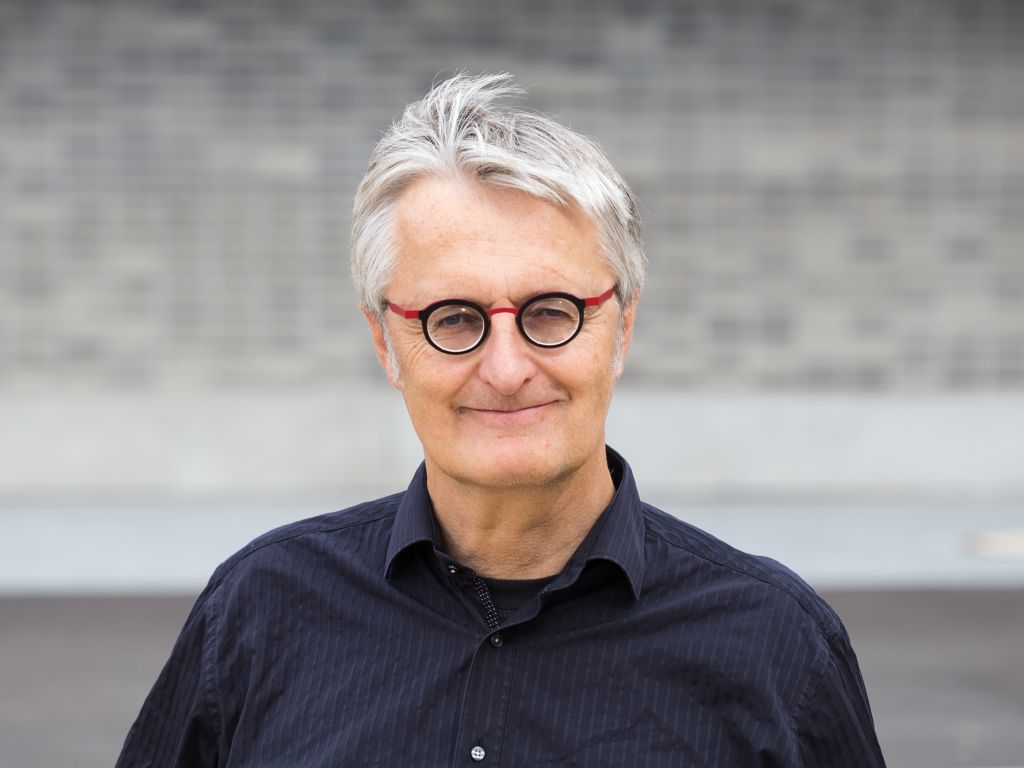
Klaus Simon
*19 April 1968
Klaus Simon was born in Überlingen on Lake Constance and studied Music, German literature and Geography in Freiburg im Breisgau. Lessons in piano with Michael Leuschner and master classes with Aloys Kontarsky (piano) as well as Hans Zender and Johannes Kalitzke (conducting), moreover, complemented his education. He is the founder and artistic director of the Holst-Sinfonietta and the Opera Factory Freiburg, with whom he devotes himself primarily to the music of the 20th century.
His versatility as a conductor, pianist, arranger and editor acts as a testimony to his artistic personality, impossible to confine within a template. Klaus Simon's repertoire as a conductor and pianist ranges from classical to contemporary compositions, with an emphasis on classical modernism, 20th and 21st century British and American works, and minimal music.
Numerous recordings and CD recordings as conductor and Liedbegleiter (Schönberg, Berg, Korngold, Pfitzner, Schulhoff, Martinů, Szymanowski, Lutosławski, Ligeti, Britten, Adams, Schwantner, Reich, Vivier, HK Gruber, Eggert) for various broadcasting companies (BR, SWR, HR, SRF) and labels (CPO, Naxos, Spektral, Ars Musici, bastille musique) complements Klaus Simon's concert activities. His repertoire as a Liedbegleiter now includes more than 1200 Lieder and songs ranging from art songs to Broadway songs. In Freiburg, he initiated a series of song recitals with a focus on 20th century song, which has been ongoing since 2002. He collaborates with artists such as Sunhae Im, Siri Karoline Thornhill, Britta Stallmeister, Katharina Ruckgaber, Tanja Ariane Baumgartner, Uwe Schenker-Primus and Hans Christoph Begemann.
Klaus Simon has been honoured several times by the Deutscher Schallplattenpreis, including in 2016 as a conductor and again in 2021 as a Liedbegleiter. In 2018, the CD recording of Luke Bedford's chamber opera Through his Teeth, which he recorded with the Opera Factory and the Holst Sinfonietta, received nominations in two categories for the Deutscher Schallplattenpreis. He has also won prizes such as the 2017 International Classical Music Award (ICMA).
Klaus Simon's arrangements for ensemble, a project started in 2007 in the style of Arnold Schoenberg's "Verein für musikalische Privataufführungen" of key modernist works (by Mahler, Schoenberg, Berg and Ravel, among others), are published by Universal Edition and Schott Music and are held in high esteem worldwide by audiences and performers alike (e.g. Camerata RCO of the Royal Concertgebouw Orchestra, Mahler Chamber Orchestra, Tonhalle Orchestra Zurich, Bavarian State Orchestra, Aurora Orchestra, I Musici de Montréal, Stuttgart Chamber Orchestra, Orchestra Academy of the Berlin Philharmonic, Ensemble dell'Accademia del Teatro alla Scala, Ensemble MusikFabrik, Collegium Novum Zürich, Ensemble Kontrapunkte, Auricle Ensemble, Remix Ensemble, Zafraan Ensemble, JACK Quartet [&] Argento Chamber Ensemble as well as Kent Nagano, Vladimir Ashkenazy, Gustavo Gimeno, John Storgårds, Benjamin Schwarz, Peter Keuschnig, Alan Gilbert or Titus Engel).
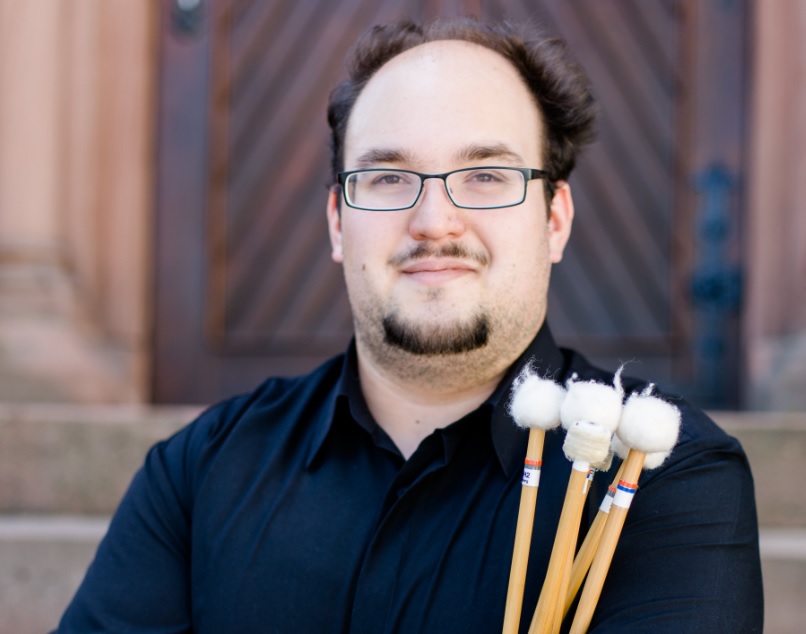
Manuel Grund
*13 March 1988
Manuel Grund, born in 1988, studied percussion, choral and orchestral conducting, music education and cultural management at the universities of music in Rostock, Mannheim, Saarbrücken and Hamburg.
Manuel Grund has already been invited to various national and international opera houses, symphony orchestras and festivals. As a guest conductor he has conducted nationally and internationally (including in Spain and the USA) various choirs and orchestras and is a sought-after speaker and juror at numerous national and international events.
Since September 2021 Manuel Grund is deputy headmaster of the Berufsfachschule für Musik Oberfranken (Germany). In addition to conducting the concert choir, he teaches orchestral conducting, music theory, arrangement and music education.
In the 2021/22 season he has been Music Director of the Symphony Orchestra Neustadt/Coburg.
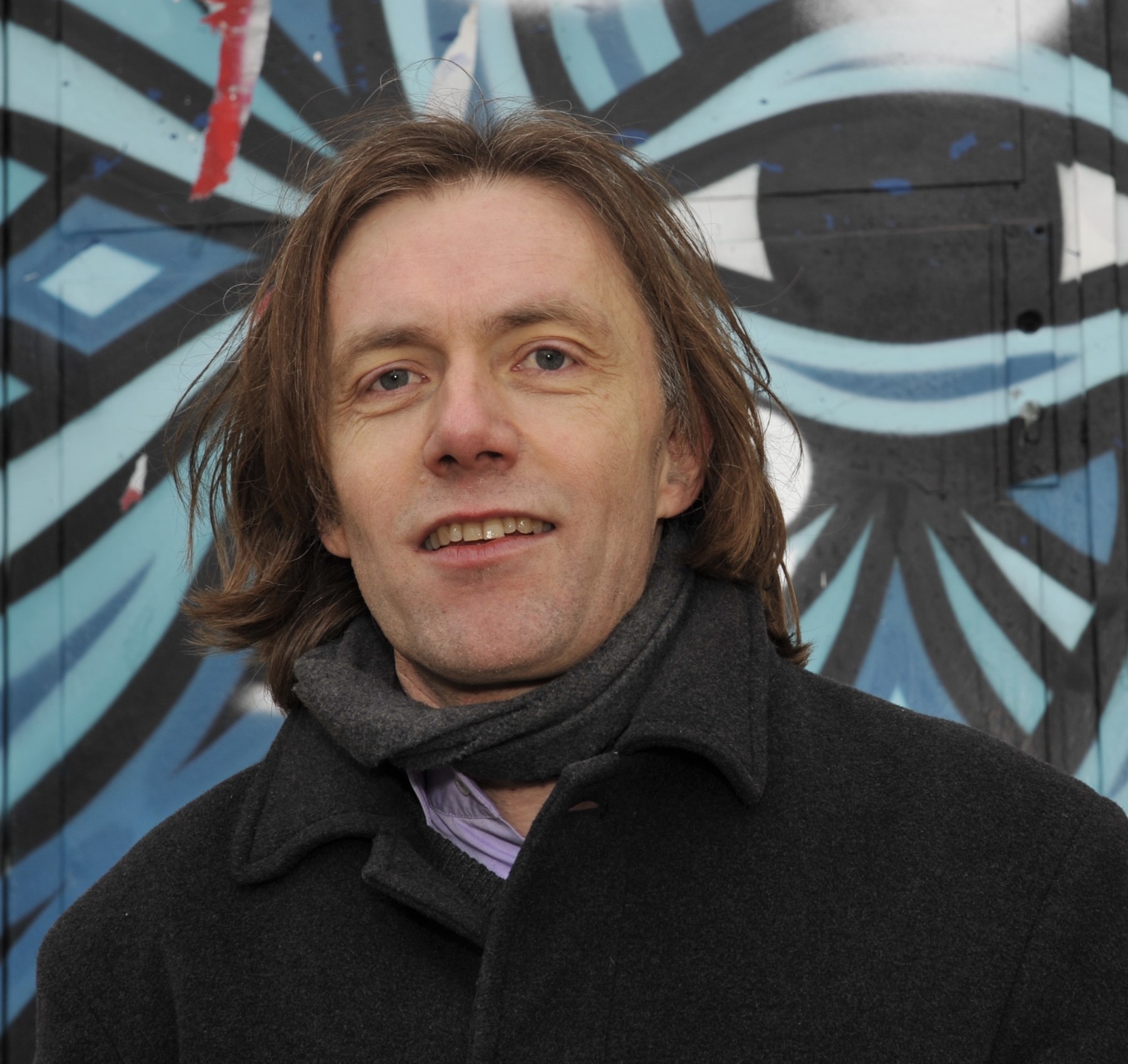
Markus Bongartz
*29 August 1963
Markus Bongartz, born on August 29, 1963 in Mönchengladbach, studied violin at the Folkwang University in Essen, composition with Nicolaus A. Huber, and electronic music and computer music with Dirk Reith.
He completed his studies in composition in 1993. For his first orchestral piece „… durch die Reinheit der Substanz ist es, was es ist, Wege zu suchen …“ (1991/ 92) he received a special jury prize at the Festival international de Musique de Besançon in 1993 and the 1st prize in 1994 at the “NDR Music Prize” competition. n 1995–96 he received a DAAD scholarship to study at the Ateliers Upic in Paris (founded by Iannis Xenakis); At the same time he took courses on computer music at the Université Paris VIII with Horacio Vaggione.
2013–16 he was chairman of the Berlin Society for New Music. Intensive collaboration with the drummer Sabrina Ma since 2011. Since 2008, Bongartz has lived in Berlin as a freelance composer and music educator.
Bongartz developed strings of works that reinforce and develop certain characteristics: works for orchestra, for ensemble, for solo instruments and electronics, vocal music, chamber music. He used the Corona phase for intensive basic research: studying Erv Wilson's scale theory; Completion of the “Speck” software for the development of microinterval scales; Integration into an available MIDI environment. The result is the songs of the night for violin and live electronics (2024).
Since 2021 working with the director Peter Manteuffel. In the radio play „Komm her, altes Cello“ the music comments on the text, creating connections between concrete sounds and instrumental textures (cello, piano) based on FFT algorithms.
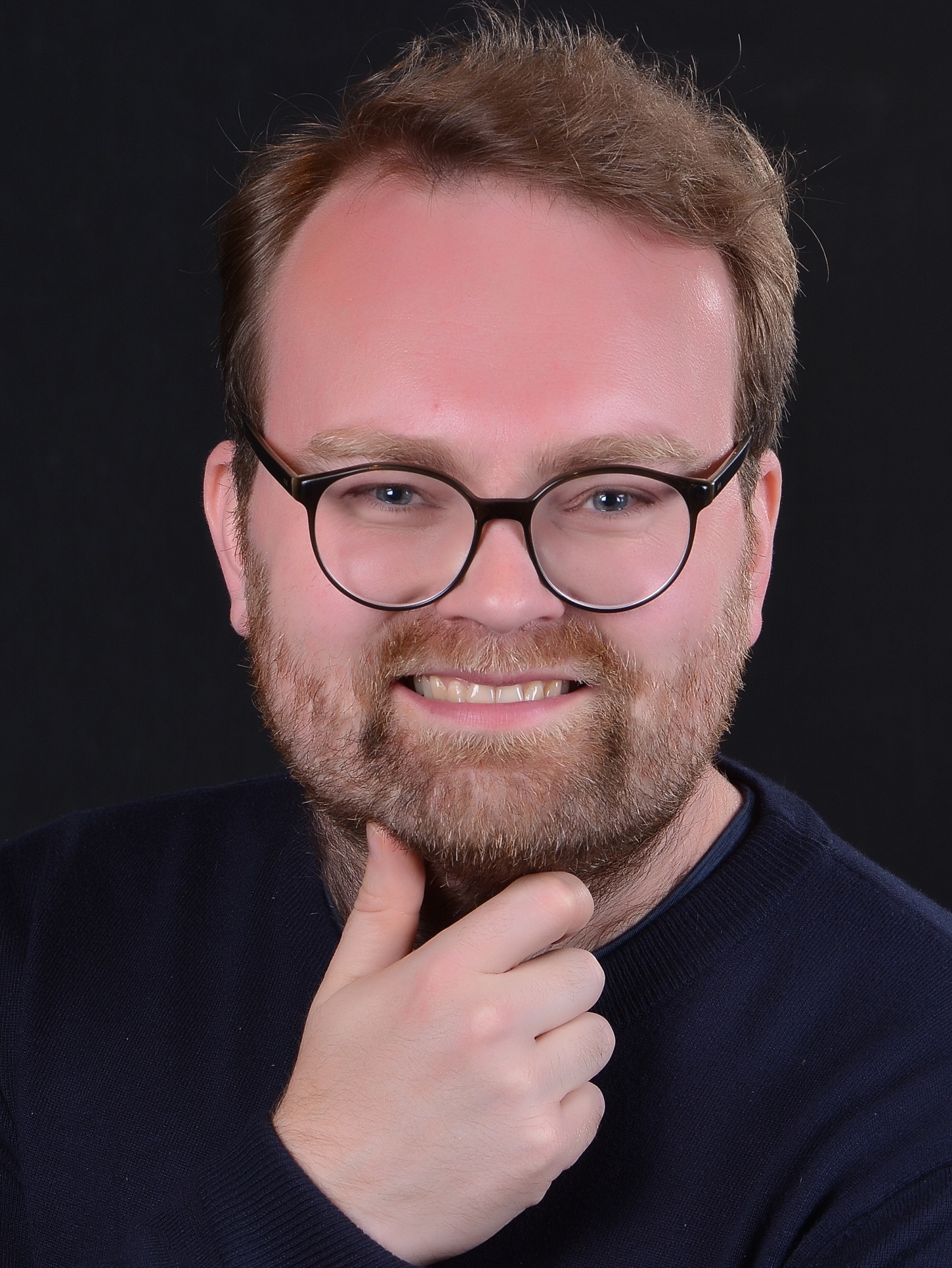
Martin Brenne
*15 July 1984
While studying for becoming a teacher Martin Brenne (*1984 in Ahaus) developed a strong interest for composition. 2009-2014 he studied Pädagogischen Tonsatz in Cologne in the class of Johannes Schild.
Primarily he writes chamber music and vocal music. 2012 he founded with three collagues the collective zeitKlang - a collective for contemporary composers.
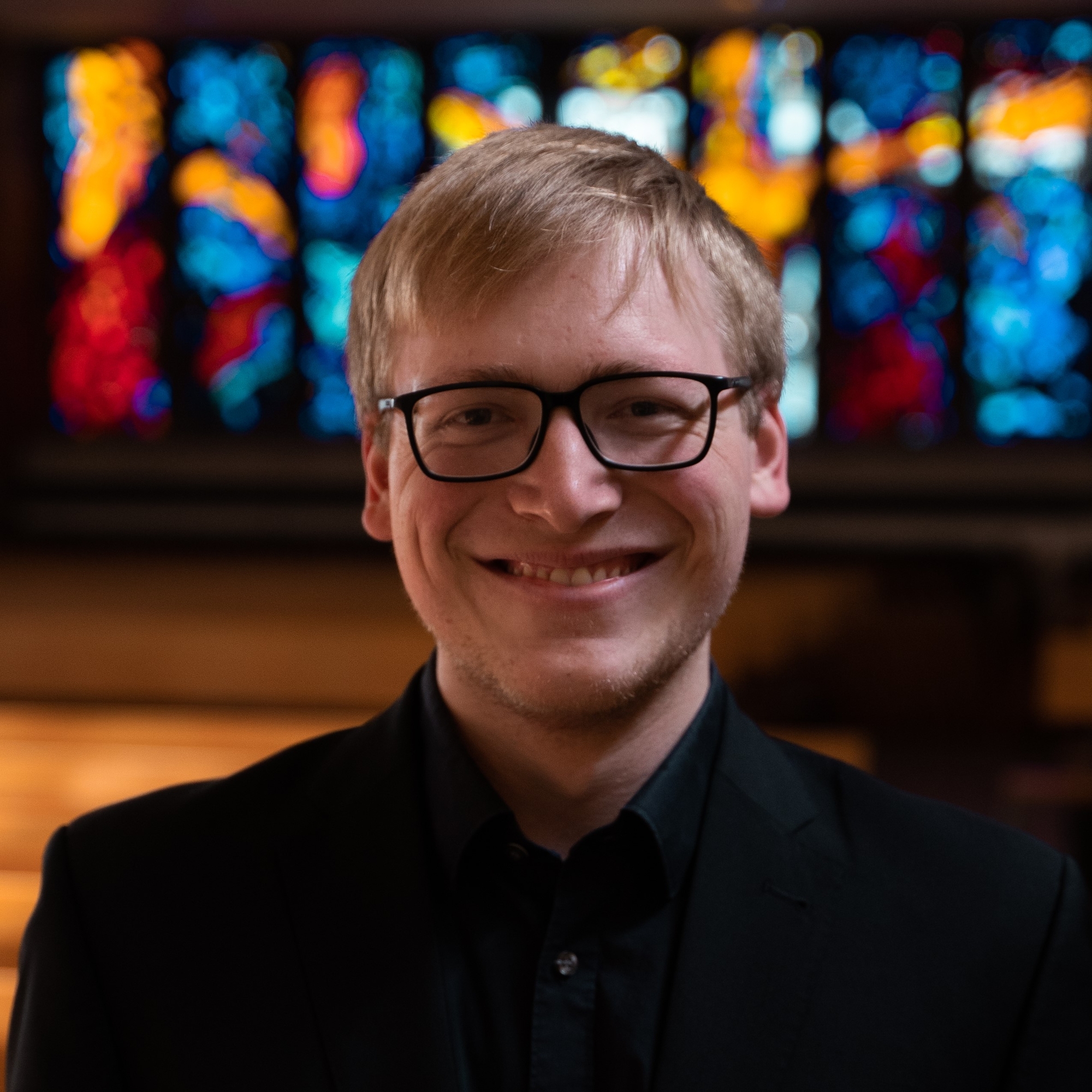
Martin Höhler
*6 June 1999
I was born in Limburg (Lahn), Germany and was musically educated at the boys choir "Limburger Domsingknaben". There, I learned to play the trumpet, french horn, and piano and I also played in several orchestras. I have been studying singing (tenor) and philosophy in Stuttgart, Germany since 2019 and completed courses in music theory and hearing education with best marks. I was also able to participate some classes in composition with Prof. Martin Schüttler.
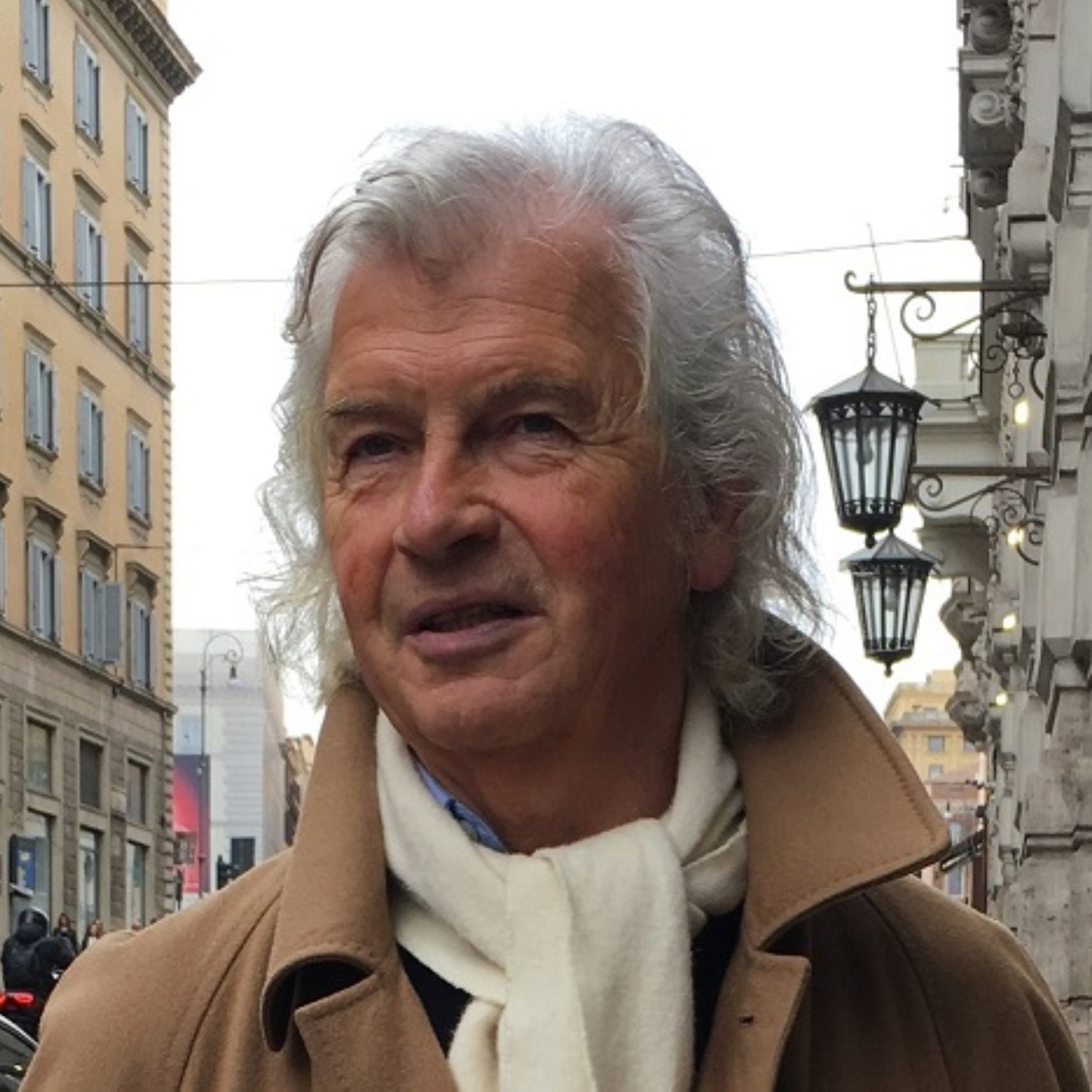
Matthias Bonitz
*30 September 1951
STUDY:
1972 to 1978 Double bass studies at the Hochschule für Musik, Detmold with Professor Walter Meuter.
During his studies he played with During his studies, participation in the North Rhine-Westphalia State Youth Orchestra (concert tours to Belgium and Spain), the "Deutsche Bachsolisten" Prof. Helmut Winschermann, "Deutsches Bachorchester" Prof. Ludwig Müller, "Kammerorchester Prof. Tibor Varga", "Detmolder Bläserkreis Prof. Jost Michaels", Bach oratorios with Kantor Eberhard Popp and Prof. Alexander Wagner. Long-time duo partner Prof. Marcio Carneiro (violoncello & double bass)
PROFESSION: ORCHESTRAL MUSICIAN
1978 to 2016 double bass player in the "Westfälisches Sinfonieorchester" Recklinghausen, now "Neue Philharmonie Westfalen" after the merger with Gelsenkirchen.
Orchestra concert tours to China, Italy, Belgium, France, Netherlands, Switzerland.
Invitations to the following orchestras:
Dortmund Philharmonic, Duisburg Philharmonic, Bochum Philharmonic, Nordwestdeutsche Philharmonie Herford, Philharmonie Südwestfalen, Philharmonie Bremen, Philharmonie Bielefeld, Philharmonie Osnabrück, Philharmonie Hagen, Philharmonie Detmold, Theatre Münster.
Teaching:
Double bass lessons:
1973- 74: Grabbe Gymnasium Detmold
1975 - 1986 Teacher "Junge Sinfoniker OWL" Bielefeld,
1979 - 1985 Music School Lüdinghausen
1984 - 1996 Lecturer for double bass at the University of Music, Detmold, Dortmund Department
Since summer semester 1993 teaching assignment for double bass at the TU Dortmund.
Concert series:
1985 - 1992: Concert series "Alte Post" in 48317 Drensteinfurt, foundation and concept, participation as double bass player.
2014 - 2016: Open-air concerts as part of the "Droste Tage" Burg Hülshoff / Münster - Havixbek.
Since 2014 foundation and concept with moderation "Classical Open-Air Concert" in the context of "Drensteinfurter Kultursommer"
Composition:
Compositional work in the field of opera (Maria Montessori),
Chamber opera Annette & George
Operetta Gabrielle about Coco Chanel
Sound poems: (Siddhartha after Hermann Hesse, Le Taureau after Pablo Picasso, Die Stadt after Theodor Storm)
Song settings (Hermann Hesse, Ingeborg Bachmann, Paul Celan, Annette von Droste Hülshoff, Sarah Kirsch, Emmy Hennings, Hans Arp, Yahya Kemal, Theodor Storm, Fontane, Ilse Aichinger, Tagore.
Sacred music:
Missa Madonna del suffragio di Perinaldo (organ & choir).
Oratorio Benedictinum, Oratorio Evangelium, Psalm 38
Chamber music
Stufen nach dem Gedicht von Hermann Hesse für Klarinette - Cello - Chor - Auftragskomposition Musikinstitut der Universität Koblenz Landau, (conductor: Christian Jeub) http://www.unimus.eu
U.A.June 24, 2017 St. Florin / Koblenz.
Version for soprano, cello piano (U.A. 2017 Drensteinfurt)
for more see: www.bonitz-classic.de/werkverzeichnis.html
Discography:
"Miraculous Journey to Esmir "*: Music and libretto based on the children's book by Georg Klusemann: Matthias Bonitz
Artists: Dr. Wolfgang Mika (narrator), Duri Quartett Kassel, vocals: Cordula Berner, Susanne Kohnke,Marcus Billen, Thomas Reifenrath.
"Violin Maker of Venice "*: Music and libretto after the children's book by Claude Clement: Matthias Bonitz
Artists: Cordula Berner (vocals), Michael Schlechtriem (cello) Turina Quartet Münster string quartet, as guest: Lucilla Weyer (harp) Frank Hanewinkel (double bass) Hans Gellings (timpani.
"Venetian Dreams" Text: Hermann Hesse, music: Matthias Bonitz
Artists: Cordula Berner (vocals) Theo Heinrichs (Heckelphone), Assindia Quartett Published: Heckel Company - Wiesbaden
"Siddhartha "* tone poem after Hermann Hesse for cello and piano, music: Matthias Bonitz
Artists: Michael Schlechtriem (cello), Peter Bortfeldt (piano)
"Siddhartha" tone poem after Hermann Hesse for cello and orchestra: Music: Matthias Bonitz , published by: ebs Nr. 6128
Artist: Julius Berger (cello) Württembergische Philharmonie Reutlingen Conductor: GMD Norichiko Imori
"As if a heart were drifting here to the harbour" Texts: Annette von Droste zu Hülshoff, Sarah Kirsch,Hans Arp, Emmy Hennings; Music: Matthias Bonitz (published: www.encora.de)
Artists: Rebecca Blanz, Le Cerf (cello quartet), Mondsandquartett (mezzo-soprano, violin, cello, harp)
"Metamorphosen" tone poem "The City" after Theodor Storm, tone poem "Le Taureau" after Pablo Picasso; music Matthias Bonitz, "Suite Italienne": Stravinsky (published: www.encora.de)
Artists: Rebecca Blanz (mezzo-soprano), Istvan Karacsonyi (violin), Gabriella Karacsonyi (piano), Pillwood Chun (piano)
"Casa die Bambini" 3rd scene of the opera "Maria Montessori" Libretto and music: Matthias Bonitz (published: www.encora.de)
Artists: Anna-Sophie Brosig, Rebecca Blanz, Franziska Rees, Zoe Knoop, children's choir singing project Max-Planck-Gymnasium Düsseldorf
Streaming see under:
https://www.feiyr.com/de/label/Bonitz-classic.de/10022132.html
Translated with www.DeepL.com/Translator (free version)
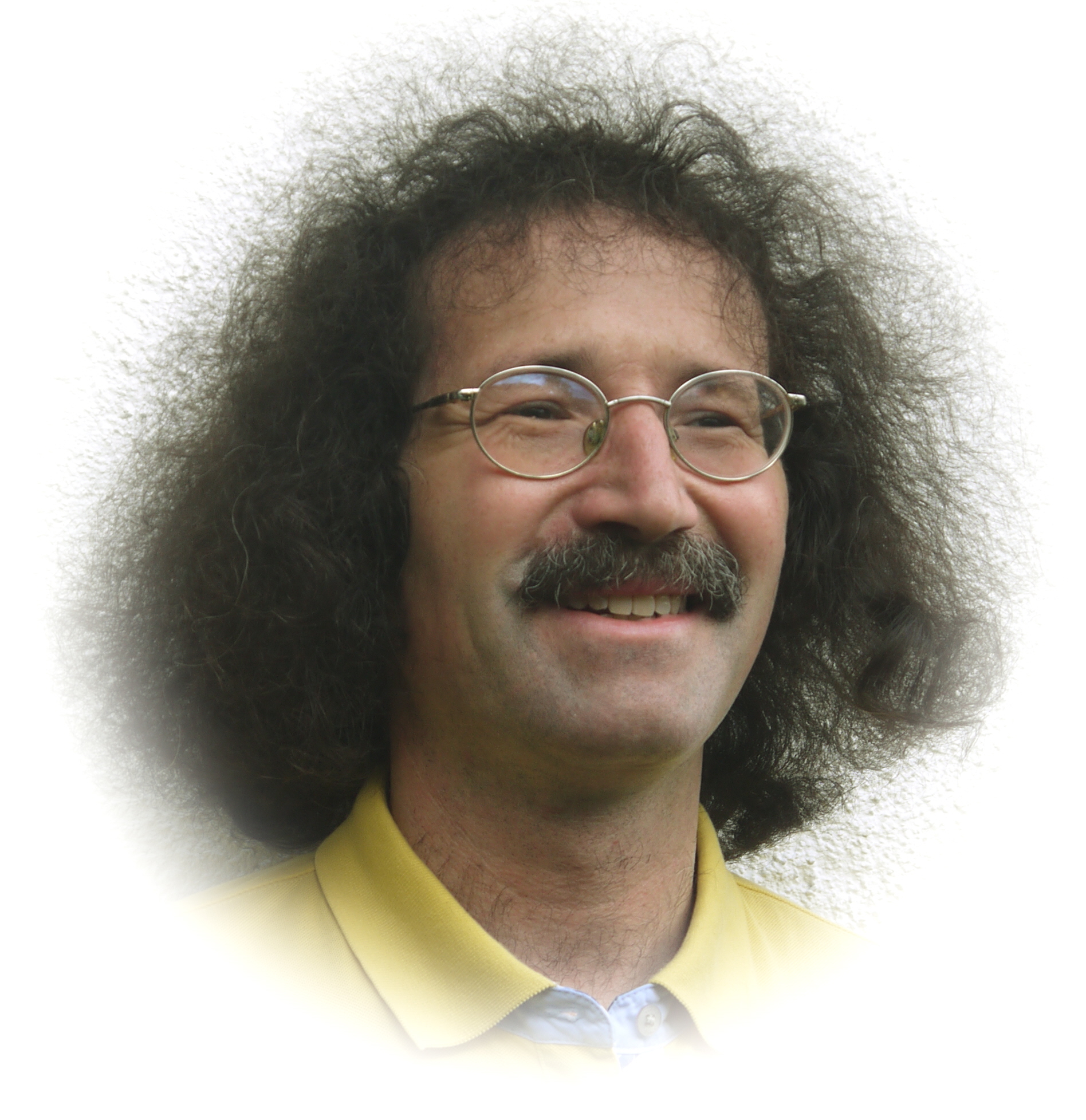
Matthias Winkler
*14 May 1969
I was born on 14 May 1969 in Starnberg. Only 2 years later my parents moved to Eggenfelden (Niederbayern), where I attended the Karl-von-Closen Gymnasium.
From 1992 until the master's death, I belonged to the Munich circle of students of the conductor Sergiu Celibidache.
In addition, I trained as a piano teacher at the Meistersingerkonservatorium in Nuremberg.
Later private vocal training with Yoed Sorek (now Hanover).
I live in the south-west of Munich and am engaged in a diverse kind of pedagogical work there (piano students, opera and operetta performances with with children and young people, etc.).
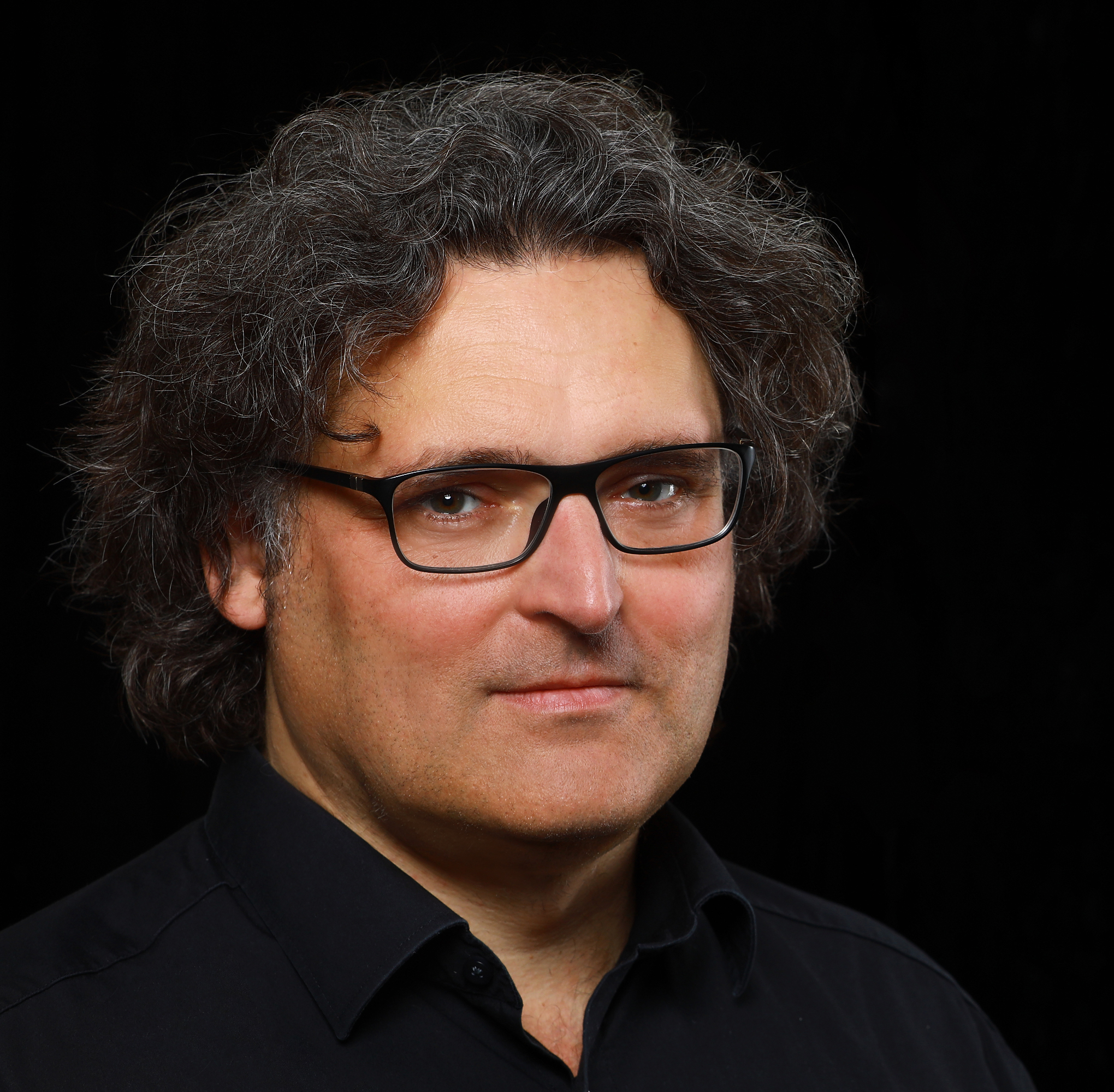
Max Doehlemann
*21 December 1970
Max Doehlemann was born in Hamburg in 1970. He studied Composition and Piano at the Musikhochschule in Munich until 1997 and in addition Orchestral Conducting at the 'Hanns Eisler' Musikhochschule in Berlin. Since then Composition has formed the centre of his musical activity. In 1995 he won the Prize for Composition of the Reinl Foundation (Vienna) and in 2010 the 'International Music Prize for Excellence in Composition' of the Music Academy of Colorado. Since then Doehlemann worked in a wide range of musical activities in addition to composition, as a répétiteur (for example at the Komische Oper, Berlin), as composer for a daily 'soap opera' on German television, as a theatre musician especially in the 'Berliner Ensemble' for Claus Peymann (as musical leader, composer, pianist), as a jazz pianist and a bandleader. He has taken part in many concerts both in Germany and abroad, often with inter-cultural or multi-genre concepts. Music for Installations and various media requirements also illustrate further facets of his work. Doehlemann works together with international artists, such as the violinist Liv Migdal or the cellist Ramon Jaffé, with the Brandenburg State Orchestra, the German Chamber Orchestra (Berlin) and many others. He is active as a project initiator and as such is a co-founder of the Jewish Theatre Ship 'MS Goldberg, Berlin'. As a 'classical pianist' he is especially to be heard in the fields of 'New Music' and accompanying Lieder, also as part of a comedy duo, and more.
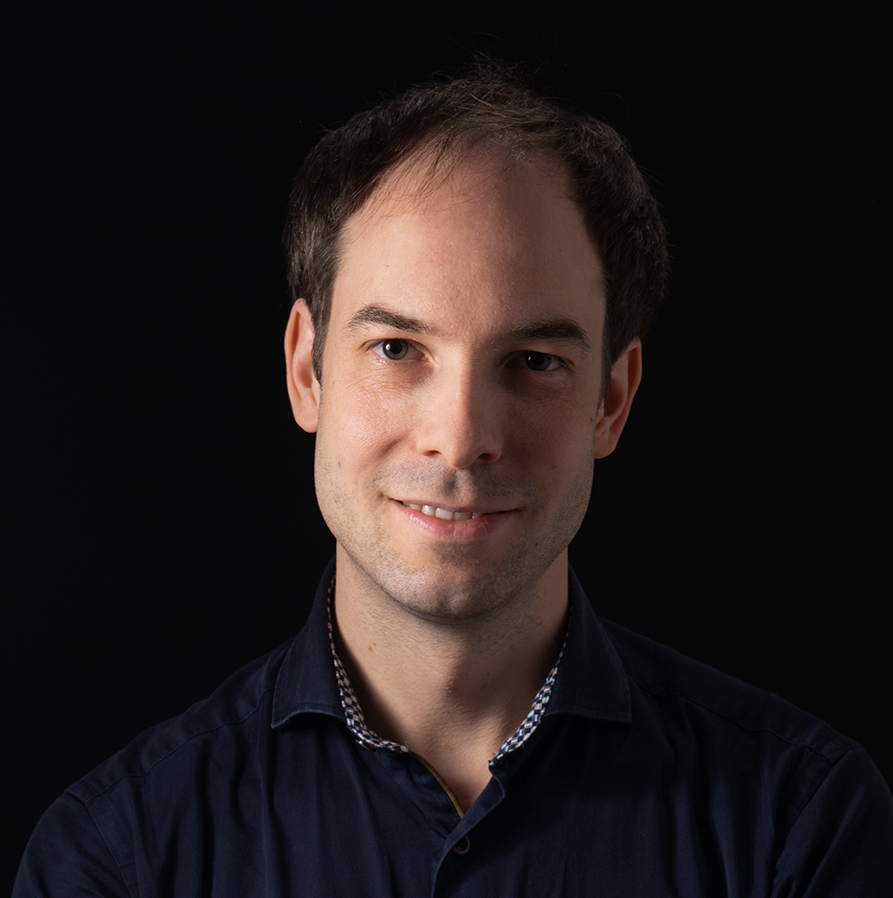
Michael Gundolf Loss
*21 March 1988
1988 Born in Freiburg im Breisgau, Germany.
1995 First piano lessons.
1997 Start of improvisation.
1999 Composition of the first piano pieces.
2002 First composition lessons with Prof. Büsing, Freiburg.
2008-2015 Study of music theory with Prof. Jaecker, piano solo with Prof. Scherrer and song accompaniment with Prof. Rademacher at the HfMT Cologne.
2014 semester abroad at the Royal College of Music, London with Prof. Julian Jacobson.
Since 2016 Teacher for piano and music theory the Youth Music School of Ravensburg, Germany.
2018-2020 Postgraduate piano studies with Prof. Vielhaber at the Vorarlberger Landeskonservatorium (today Stella Music Academy).
Since 2022 regular piano solo concerts in Germany and Switzerland.
Since 2023 Publishing scores at Universal Edition.
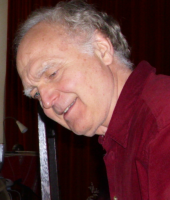
Nikolai Badinski
*19 December 1937
Prominent personalities of the international music life have expressed great admiration for Nikolai Badinski’s music. György Ligeti characterizes it as “very refined, very highly rated in its quality.” The ‘musical Pope’ H.H. Stuckenschmidt praised the “unmistakable personal language” of his music in the Frankfurter Allgemeine Zeitung and wrote that “one is captivated until the end”.
The notable musicologist Carl Dahlhaus has written that “Badinski combines a well-founded and many-sided musical education with an acute sense for contemporary tendencies; there is a balance between the inclination towards the experimental and an aesthetic conscience dedicated to structural unity.”
From a composer portrait by Andreas Göbel on kulturradio by rbb: “Nikolai Badinski is an astute composer of masterly craftsmanship and of broad knowledge. His repertoire of compositional techniques is rich [...] He composes with an own, individual voice…”
Nikolai Badinski was born in Sofia, Bulgaria, on 19 December 1937, and started to take violin lessons at the age of five. His attempts at composition also date from an early age (including an opera in which the orchestra consists exclusively of violins and percussion). In 1961, he completed the Academy of Music, Sofia. He lived in East-Berlin from 1962 to 1976, where he attended a Masterclass for Composition at the Academy of Arts (1967-70). He also took Masterclasses at the Accademia Musicale, Siena, Italy in 1975 and 1976. Badinski founded and directed the Chamber Ensemble „G.F. Händel“ and a String Quartet in East Germany, and worked as a composer, docent, soloist, concertmaster, and special advisor for musical education.
In 1976 he escaped from East-Berlin to the West. He actively participated in the Darmstadt International Courses for New Music (working with Ligeti, Halffter, Stockhausen, Xenakis and Kagel), several of his compositions were performed there. He has been guest professor at the Universities of Stockholm and Copenhagen, and lectured in several European countries. He was a visiting professor in Stanford University, USA. For many years he has worked intensively with various groups, seeking new ways to activate music listeners. He is a member of the International Society for Contemporary Music (ISCM), the German Composer’s Union, the International Händel Society, the International Richard Wagner Union and, since 1983, the European Academy of Arts, Sciences and Humanities in Paris. He is co-founder of the Initiative Neue Musik, Berlin. Performances of his works and composer portraits of him have been broadcast throughout Europe, the USA and Asia. Some of his works have been performed by ensembles such as the Berlin Philharmonic Orchestra, the Staatskapelle Berlin, the Symphony Orchestra of the Südwestfunk in Baden-Baden, the Arditti String Quartet London, the Philharmonic Octet Berlin, the Orchestra of the Deutsche Oper Berlin, the Ensemble of the Staatskapelle Dresden, the Choir of Radio France, the Nederland Vocaal Ensemble in Hilversum, and the Camerata Academica Salzburg. He has also written academic articles, focusing on contemporary music.
Badinski uses a richly varied palette of compositional devices in his music, without associating himself with any particular school, method or trend in composition. He often stylises or changes elements or micro-elements from Bulgarian and other Balkan folk music from various historical strata, as well as from sacred music, describing folk music as a rich source for research and inspiration. The composer’s musical aesthetics and creative work – his oeuvre comprises more than 200 works – also embrace new sound possibilities and their apperception, as exemplified in his electro-acoustic work H2O Music. Among his compositions are ballets, three violin concertos, a concerto for viola and orchestra, a concerto for harpsichord, three string quartets, a chamber music for different groups as well as for solo instruments, and experimental music.
Honours and prizes include first places at the 28th International Competition for Composition, Viotti, 1977, at the International Competition for Composers, Stockhausen, Italy 1978 and at the 29th International Competition for Composers, Viotti, 1978. He received the International Trieste Prize for Symphonic Music in 1979, the Prix du Rome (Villa Massimo) in 1979/80, and the Prix de Paris in 1981.
Since 1977 he is a freelance contributor to the BBC, London.
In March 2014, the Xiamen University – which, with more than 40.000 students, is one of China’s most important universities and of international renown – invited Nikolai Badinski to present his music and give lectures in the frame of the prestigious „Nanqiang” Lectures of Excellence. Furthermore, the composer was honoured with the badge of honour of the Xiamen University.
In the same month, Nikolai Badinski was invited by the Conservatory Shanghai to present and give talks on his music.
Painters in several countries – for instance J.C. Friedrich, Enzo Santini, I. Pavlov – have painted pictures based on his music, art-films were created presenting the composer and his music. Numerous CDs and LPs of his music have been released. Furthermore, his book … Between the sounds… (Zwischen den Klängen) has been published in Germany by Pfau.
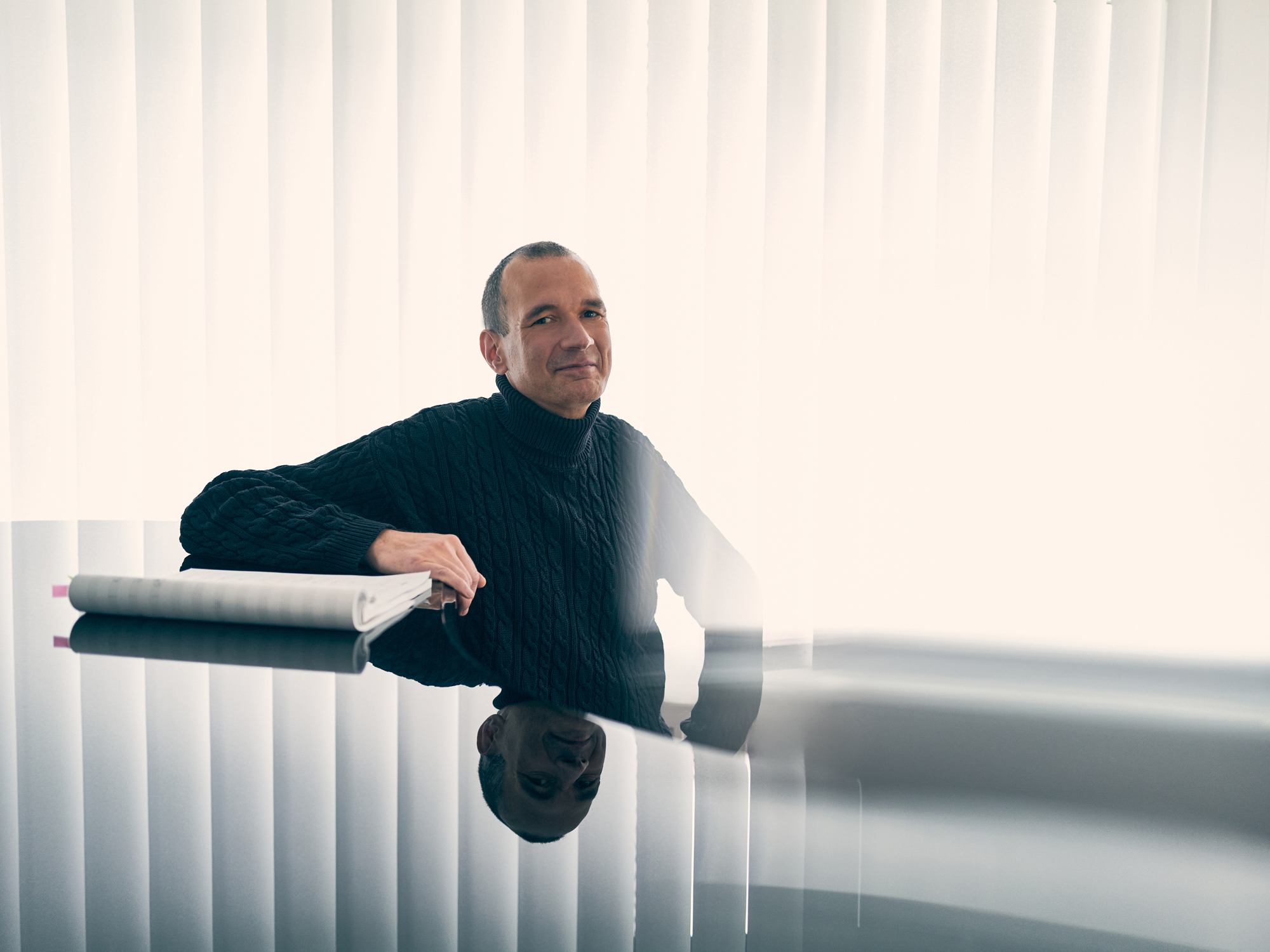
Peer Baierlein
*16 May 1972
Peer Baierlein is a versatile musician and composer whose education and career span a broad musical spectrum. At the age of 16, he began his studies as a young student at the “Musikhochschule Köln” and later earned his diploma as an instrumental educator and orchestral musician. During this time, he was a student of Arno Lange at the Deutsche Oper in Berlin and the principal trumpet player in the "Junge Süddeutsche Philharmonie".
His musical journey took him to Belgium in 1996, where he studied jazz with Bert Joris at the “Lemmensinstituut.” After a year in New York City, he continued his studies in 2002, earning a degree as "meester in de muziek." He later specialized in lead trumpet and deepened his knowledge through courses in classical composition, counterpoint, harmony, film music, electroacoustic music and orchestration.
Between 2011 and 2013, he studied New Media at the “Hochschule für Musik und Theater” in Hamburg. His versatility is evident in his work as a composer and musical director for numerous theater productions in Germany, Switzerland, and Austria, many of which won prestigious theater, directing, and acting awards.
Since 2016, Baierlein has increasingly focused on composing for classical orchestras as well as vocal and instrumental ensembles. In 2022, he created commissioned works for the "Hessisches Staatsballett" and "Mecklenburgisches Staatsballett". In 2023, he made his debut as a composer for the "Mecklenburgische Staatskapelle" and composed for the "Clara Schumann Philharmoniker" a year later.
In 2025, Baierlein was awarded a scholarship by the Roger Willemsen Foundation.
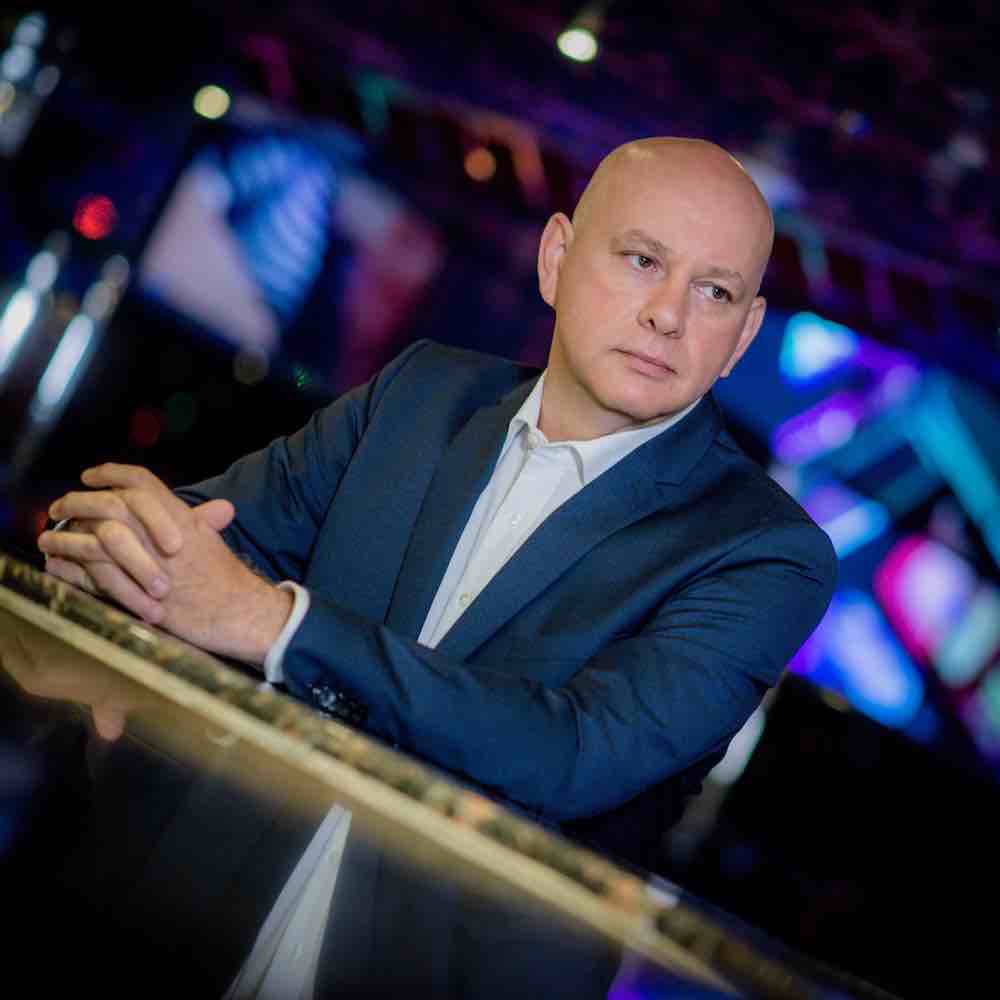
Peter von Wienhardt
*5 May 1966
Peter von Wienhardt is a pianist, composer and arranger and recently he has been devoting a significant amount of his time to conducting.
It is one of his distinctive characteristics; to continuously seek out or create new trends in music. Over time improvisation, re-arrangement and cadence have become an integral part of not only his daily life but also his art and composing. The search for meaning and character of music is the central element of his work.
In his concerts he shares his philosophy as well as musical and cultural contexts of the works verbally with his audience. His technical and sight-reading skills have enabled him to build an enormous repertoire taking into account off the beaten path works.
As a performer, composer, arranger of music Peter von Wienhardt is committed to the underlying intention of the piece and as a conductor he strives to serve the orchestra or the musician. He employs the musicians as a tool to breathe life into a piece and honor it with the expression and love it deserves. Every piece is approached with creativity; its various sources range from analytical organization, structure, re-arrangement to spontaneous response to the space, situation and audience. Peter von Wienhard does not shy away from the "seemingly impossible", "unperformable" or extremely complicated works. On the contrary he welcomes the challenge to clarify insane compositions or confusing processes for the audience. Whether Renaissance or Contemporary works he firmly believes that "every work deserves to be performed at least once as intended by the composer and let history make its choice after that.”
As a composer and arranger his works mostly arise from the need to be played in a concert. Almost none of his works are written just to be written, they all are comissioned or driven by (sometimes) urgent concert situations.
Peter had never really composition classes, nevertheless he had during his studies a lot of exchange and excursions to musical aesthetics with Helmut Lachenmann, Ulrich Suesse, Joachim Kaiser, Erhard Karkoschka and Mirko Kelemen.
Peter von Wienhardt played in virtually all known concert halls of the world as a soloist and chamber musician. To name a few outside Germany: Goldener Saal - Vienna, Smetana Hall - Prague, Franz Liszt Conservatory - Budapest, St. Petersburg Philharmonic Orchestra Hall - large hall, Suntory Hall - Tokyo, Seoul Sejong Arts Hall & Hall - Soul, Salle Gaveau - Paris La Fenice - Venice, Atheneul - Bucharest, Carnegie Hall - New York, Bellas Artes - Mexico City. Peter of Wienhardt traveled to more than 120 countries as a musician and is probably one of the few who gave a concert in the same year both in Greenland and in the Antarctic, (not just for the penguins).
Through the intense cooperation with numerous orchestras, Peter von Wienhardt grew into the role of conducting the orchestra himself. He has cooperated as a soloist or conductor with: Stuttgart Chamber Orchestra, Radio Symphony Orchestra Stuttart, European Music Festival, Festival Orchestra of Schleswig Holstein Music Festival, Symphony Orchestra of the Bavarian Radio, Radio Philharmonic Bucharest, Classical Philharmonic, Südwestdeutsches Kammerorchester, Korean Chamber orchestra, German Philharmonie Bonn and many more. In 2017 he founded his own orchestra: the „philharmonica westfalica"
Peter received many awards (including Bartok, Cziffra Liszt, German Music Council, Echo Klassik, etc.) and published thirteen recordings as a soloist, with orchestras and as a chamber musician. His latest CD “Rhapsody” has been well received by critics. Since 2006 Peter von Wienhardt holds a professorship for Piano and Crossover in Münster and is director of the Aaseerenaden Münster, one of the best classical open-air festivals in Germany. Also he is also the new artistic director of the International Music Festival Mittelrhein.
Peters compositions and arrangements are performed worldwide with a high success. As an example the year 2019 should be mentioned. Three CDs were produced with his arrangements/compositions. They were recorded by: WDR Orchestra, Münchner Kammerorchester, London Symphony with soloist like Arabella Steinbacher and Anne Akiko Meyers.
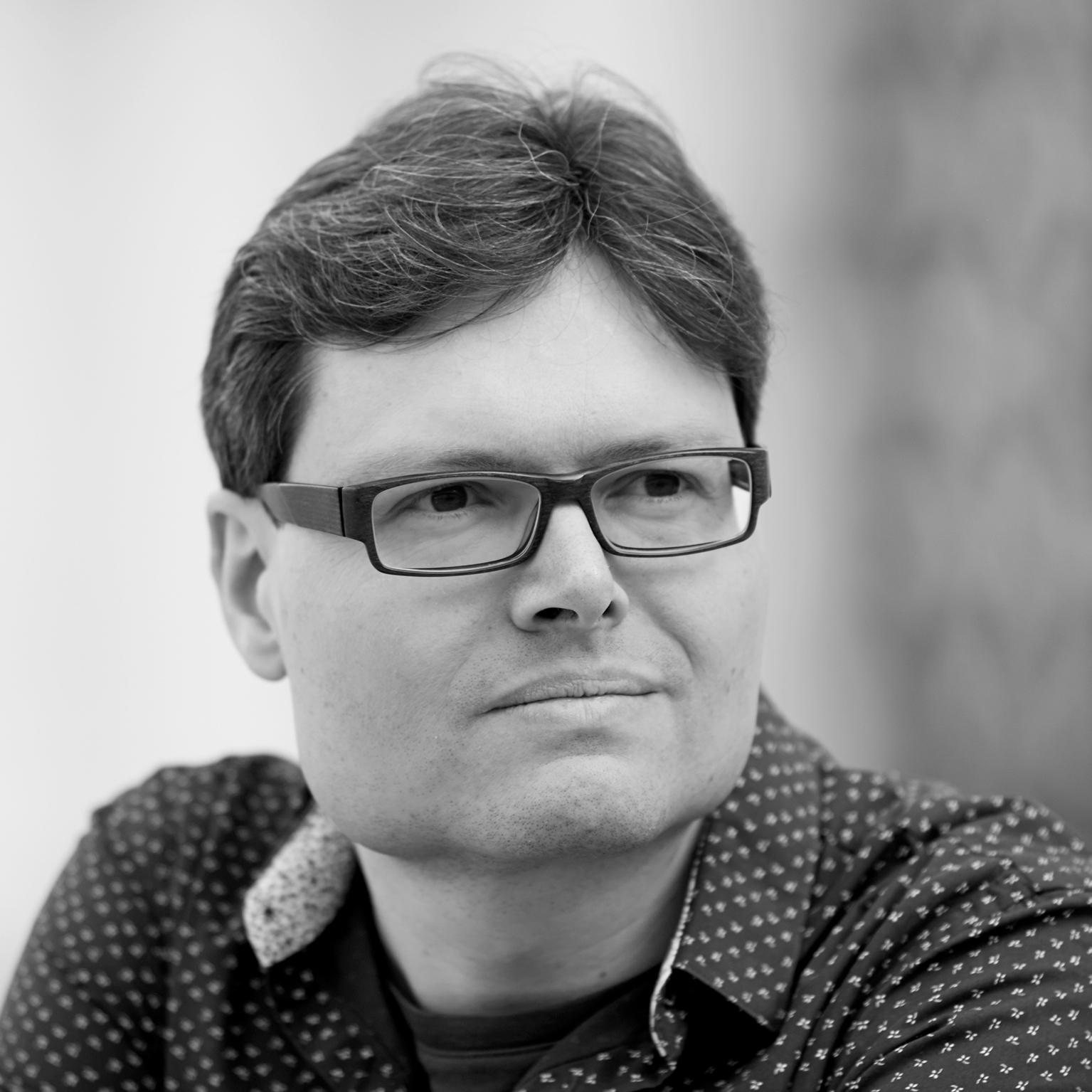
Philipp Ortmeier
*8 June 1978
Philipp Ortmeier is an award-winning composer of sacred and secular music for choir, orchestra and chamber music.
As a graduate of a musical high school with the instruments piano, violoncello and percussion, he received a sound musical education at an early age. This was followed by studies in musicology in Würzburg, Vienna, Padua and Krakow, which he successfully completed with a doctorate in 2010. At the same time, he intensified his compositional activities, and the founding of his own ensemble enabled the regular realization of world premieres. To date, he has composed around 90 works for various instrumentations, ranging from solo and chamber music, orchestral and choral works to stage and film music.
The composer has received several awards for his work, including First Prize at the Orient/Occident International Composers Competition in Lviv (2023) and the Composition Competition for Pope Benedict XVI of the Diocese of Passau (2017), as well as an award at the Vienna International Music Competition (2022). He was also a repeated finalist at the Bruno Maderna International Composers Competition (2021-23).
Performances of his works have taken Ortmeier to numerous countries, including Italy, Serbia, Poland, Japan, Czech Republik, Ukraine and USA. Theater productions with his music are regularly on the repertoire of German-speaking theaters. He has been commissioned to compose works for the Bavarian Parliament, the Frankfurt Museum of Architecture, the Memorial for the Victims of Psychiatry during National Socialism in Mainkofen, the Passau Concert Association, the Finsterau Open Air Museum, and the Logos and Ethos Foundation. His music has been performed by KLK Symphony Orchestra, Ensemble Sonare Linz, Sinfonietta Passau, Singer Pur, Phoenix String Quartet and Duo FLAC, among others.
In 2022, Philipp Ortmeier was composer in residence at the Virginia Center for the Creative Arts. He lives in his native Passau and his adopted home Vienna.
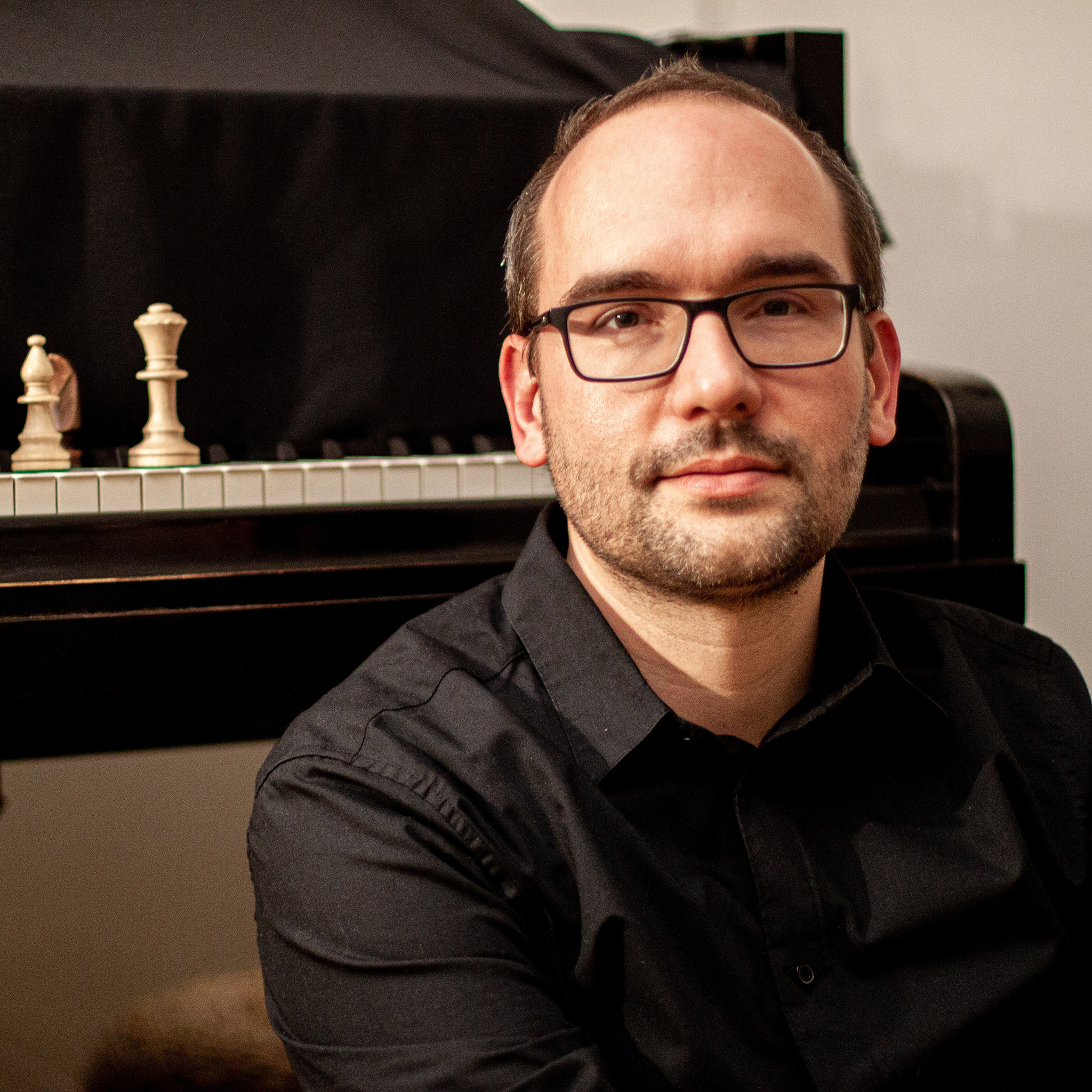
Philipp Weigl
*3 October 1979
Philipp Weigl (b. 1979 in Freising, Germany) received his first piano lessons at the age of six at Musikschule Freising, the local music school. After graduating from Camerloher-Gymnasium Freising, he studied piano with Professor Ansgar Janke at the University of Music and Performing Arts Munich. Philipp is also holding an M.A. degree in music pedagogy and musicology from Ludwig-Maximilian-University Munich (LMU). Besides composing he is working as a piano teacher and as an associate lecturer for music pedagogy at the LMU Munich.
Since 2001 he is releasing music of different genres and styles on various labels. Latest releases include albums for major companies like Warner/Chappell and BMG/Klanglobby. Philipp’s music has been used in award-winning films, TV shows, commercials, podcasts and video games.
He lives with his wife and two children in his hometown.
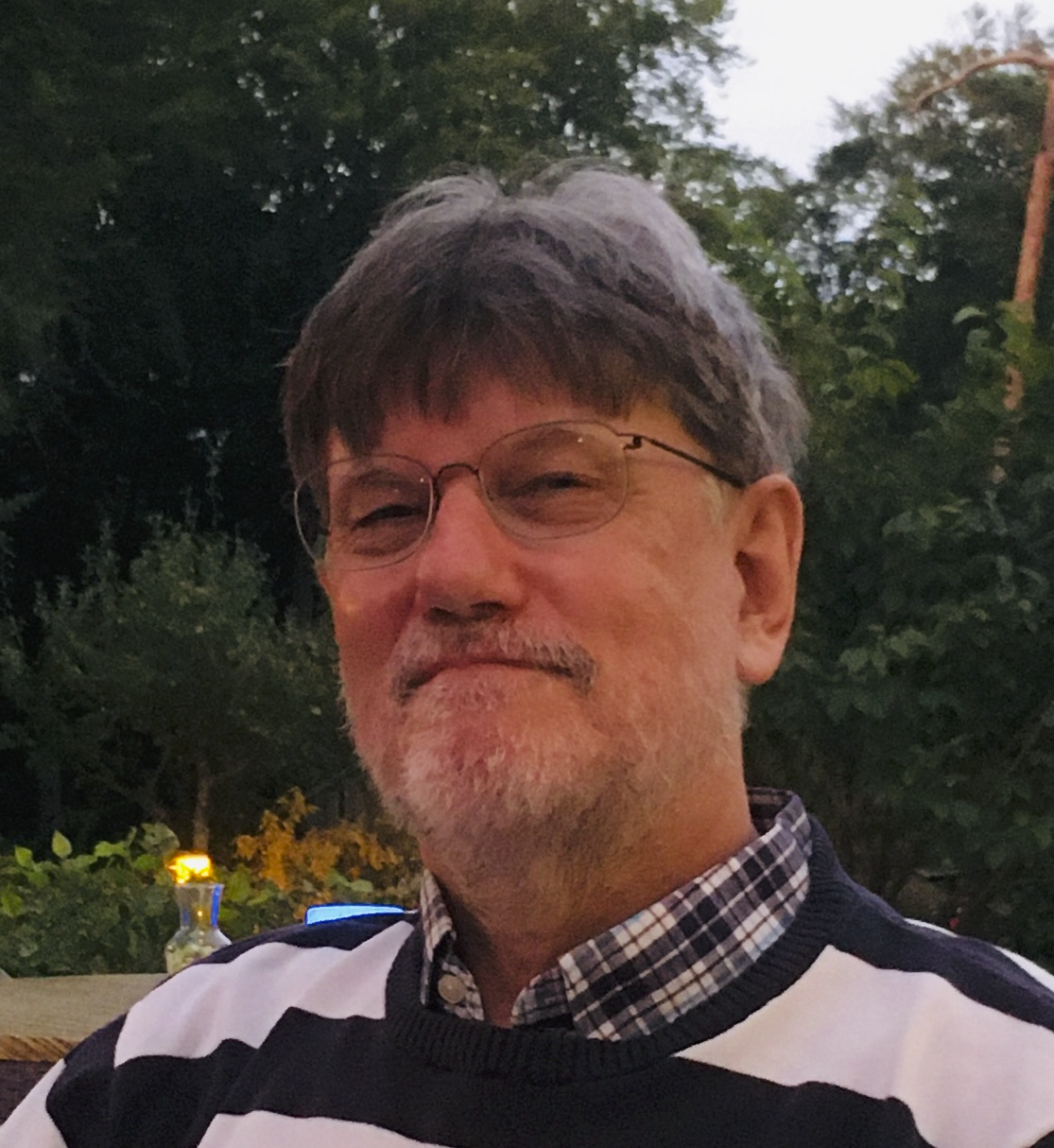
Rainer Stegmann
*27 August 1957
Rainer Stegmann, born in Mainflingen (today Mainhausen) near Aschaffenburg, is a classical guitarist, composer and music educator.
He studied in Frankfurt am Main at the Musikhochschule and at Dr. Hoch's Conservatory.
Rainer Stegmann has been performing concerts since his studies both as a soloist and in various chamber music compositions and with orchestra.
His musical focus is on the field of contemporary music. Rainer Stegmann has performed numerous rarely heard contemporary chamber music and solo works for guitar. His CDs ´Soundscapes I, II and III`, published by the classical label GENUIN, received excellent reviews and established Rainer Stegmann as an internationally respected interpreter of contemporary music.
Rainer Stegmann has been active in composition since his youth. As a guitarist in a jazz rock band, he first wrote pieces for this line-up. At the Frankfurt University of Music, he studied with Prof. Jürgen Blume. After that, he continued his self-taught education, but also in courses, e.g. with Leo Brouwer.
In his compositions he often combines different musical styles. He loves the strict classical forms as well as the free, quasi improvised of contemporary music, but also rock and jazz. The music of Toru Takemitsu had a special influence on him. His oeuvre includes solo, chamber music and orchestral works.
In 2023, his composition Strange Bird Singing in the Night for alto flute won the Call for Scores competition of the international UNICUM festival in Ljubljana, Slovenia.
Also in 2023, his orchestral composition Après la guerre won the Laureate Gala Award of the Progressive Musicians, New York. Premiere on the 4th April 2024 at Carnegie Hall, New York.
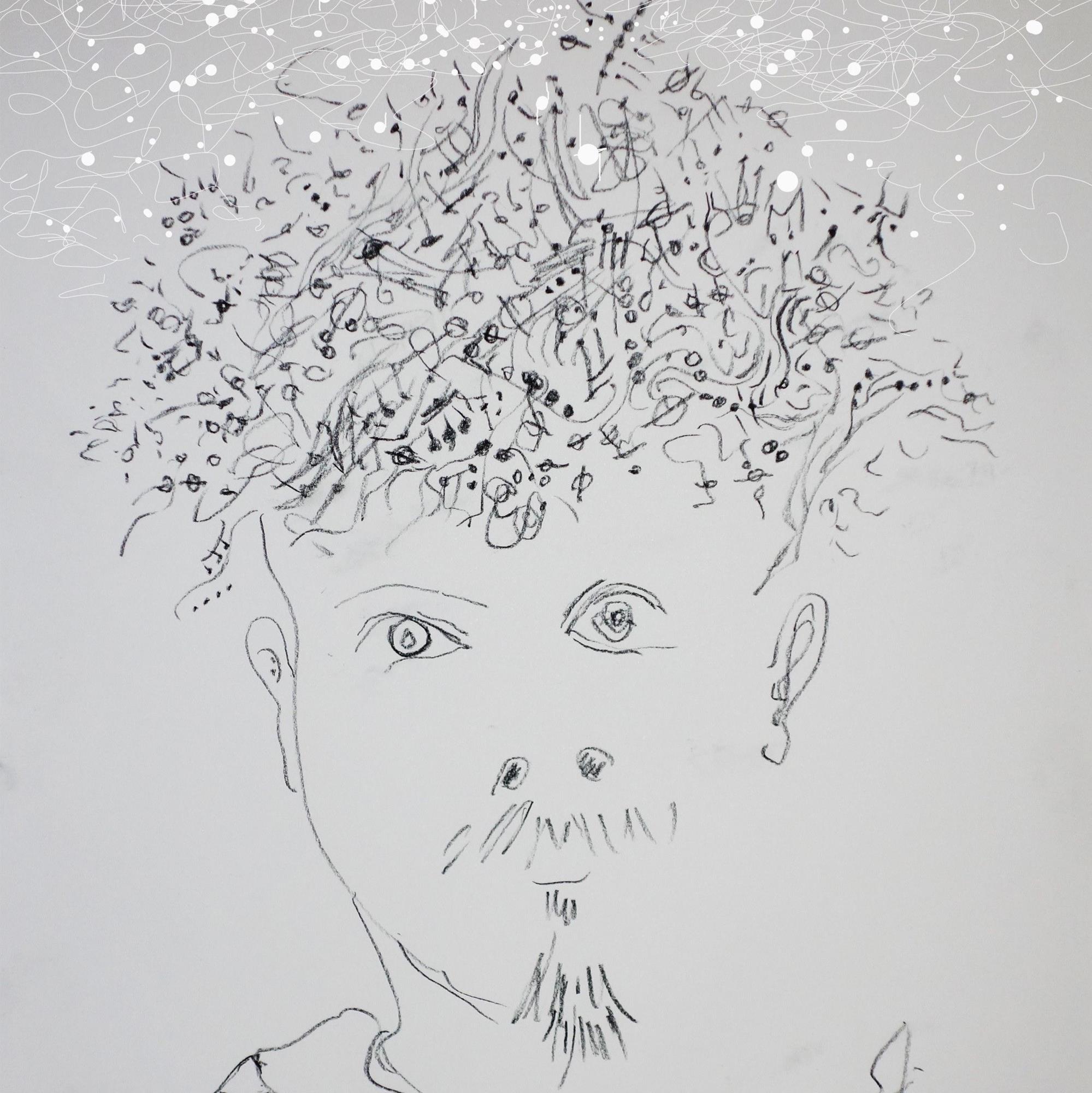
Roman Czura
*20 January 1989
Roman Czura studied composition in Darmstadt, Kraków, Rīga and Katowice. After graduating with the highest marks, he obtained in 2019 a PhD in music composition at at his Silesian Alma mater. He teaches since 2014 at the Karol Syzmanowski Music Academy in Katowice and founded a composition class at the Mieczysław Karłowicz Music School.
Writing in a moderately contemporary style – not breaking with European tradition, whilst not excluding the new – his main artistic focus is on orchestral and other instrumental music. His fields of interest include exploring extended techniques, polyrythmical and polymeterical structures, instrumentation and most recently the incorporation of microtonal elements into his musical language.
His music has been awarded several prizes at national and international composition competitions in Europe, Asia and the United States.
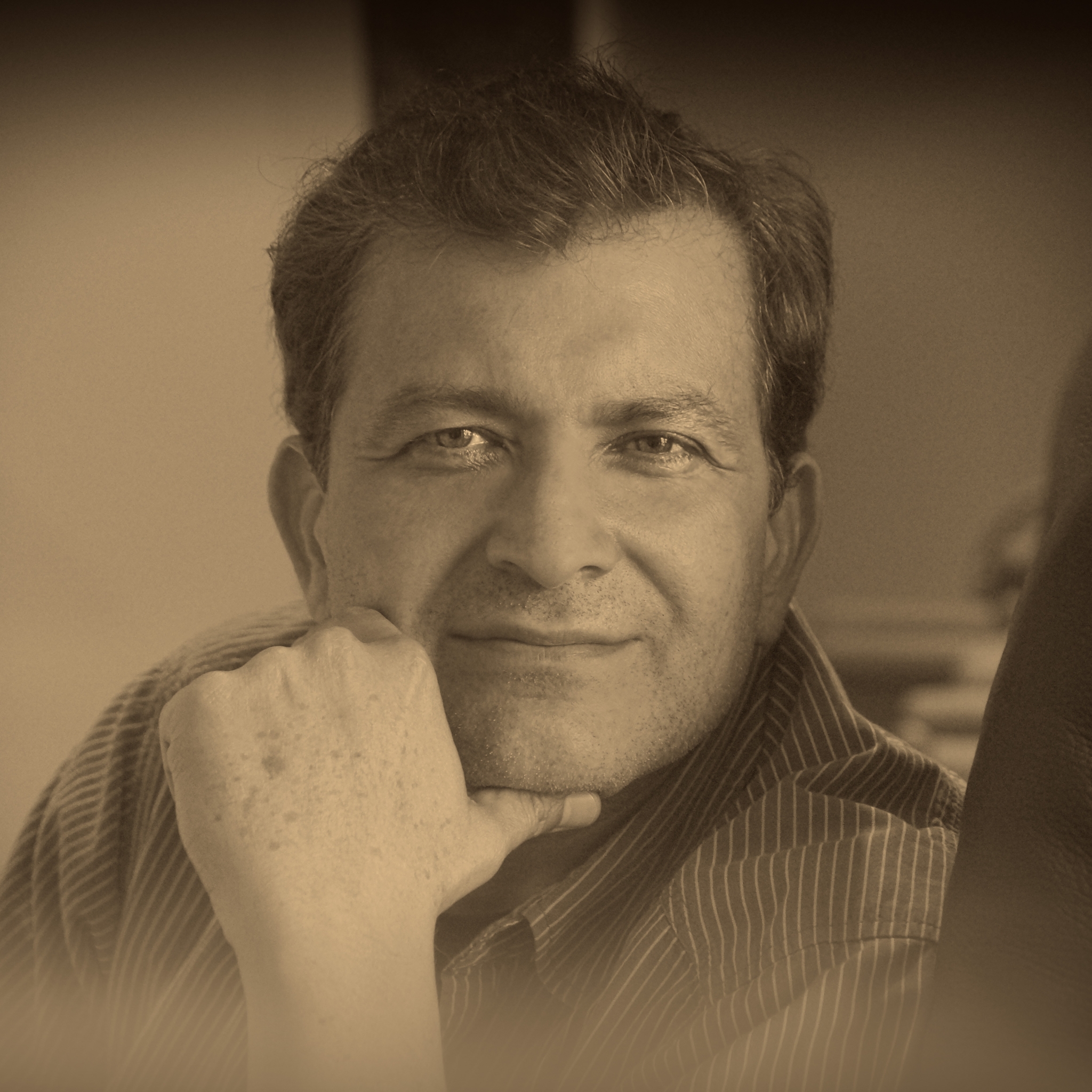
Sef Albertz
*4 March 1971
NEW: Take a look at «Albertz's composer brochure» and discover more of his fascinating music and artistic trajectory.
__________________________
With a rich Œuvre including solo, chamber, electroacoustic and orchestral music, which has received world premieres and performances in many countries throughout Europe and the Americas, the creative work of the Venezuelan-German composer Sef Albertz (*1971) is praised for its transcultural insight, where extra-musical influences and the rethinking of tradition challenge the audience without disturbing the listening: “My wish is to go beyond sound itself to create a musical metaphor that conveys an artistic message tangibly”, states Albertz himself, whose projects have been commissioned and funded by leading organisations including Instituto Cervantes, MDR Sinfonieorchester and UNESCO.
„Albertz‘s music is everything at once: Philosophical and poetic, sophisticated and simple, thoughtful and passionate. It draws from the full source“ (MDR Kultur, 2024)
Sef Albertz - himself a skilled guitarist “who dominates his instrument masterfully” (KulturAspekte) - was founder and artistic director of the «Festival Con Guitarra!» (“A fine Festival…a Jewel”, Leipziger Volkszeitung). He’s also literary active with poetry books & essays: “An integral musician with an immense culture” as recognized by his colleague Leo Brouwer, the well-known Ibero-American composer and guitarist.
The creative work of Albertz has been recorded in several audio productions:
- «Con Guitarra!» (2011)
- «Infancia» (2012)
- «Hommage» (2013)
- «Seasons» (2015)
- «Platero & Ich» (2016)
- «Resplendences around Bach» (2018)
- «In the Secret of the World» (2021)
- «Bunch of Strings» (2024)
Sef Albertz's compositional output is widely acclaimed as: “a milestone of good music” (Akustik Gitarre Magazine) “…modern, distinctive […] with a finely structured sound“ (PIANONews Magazine).
More Information under: www.sefalbertz.com
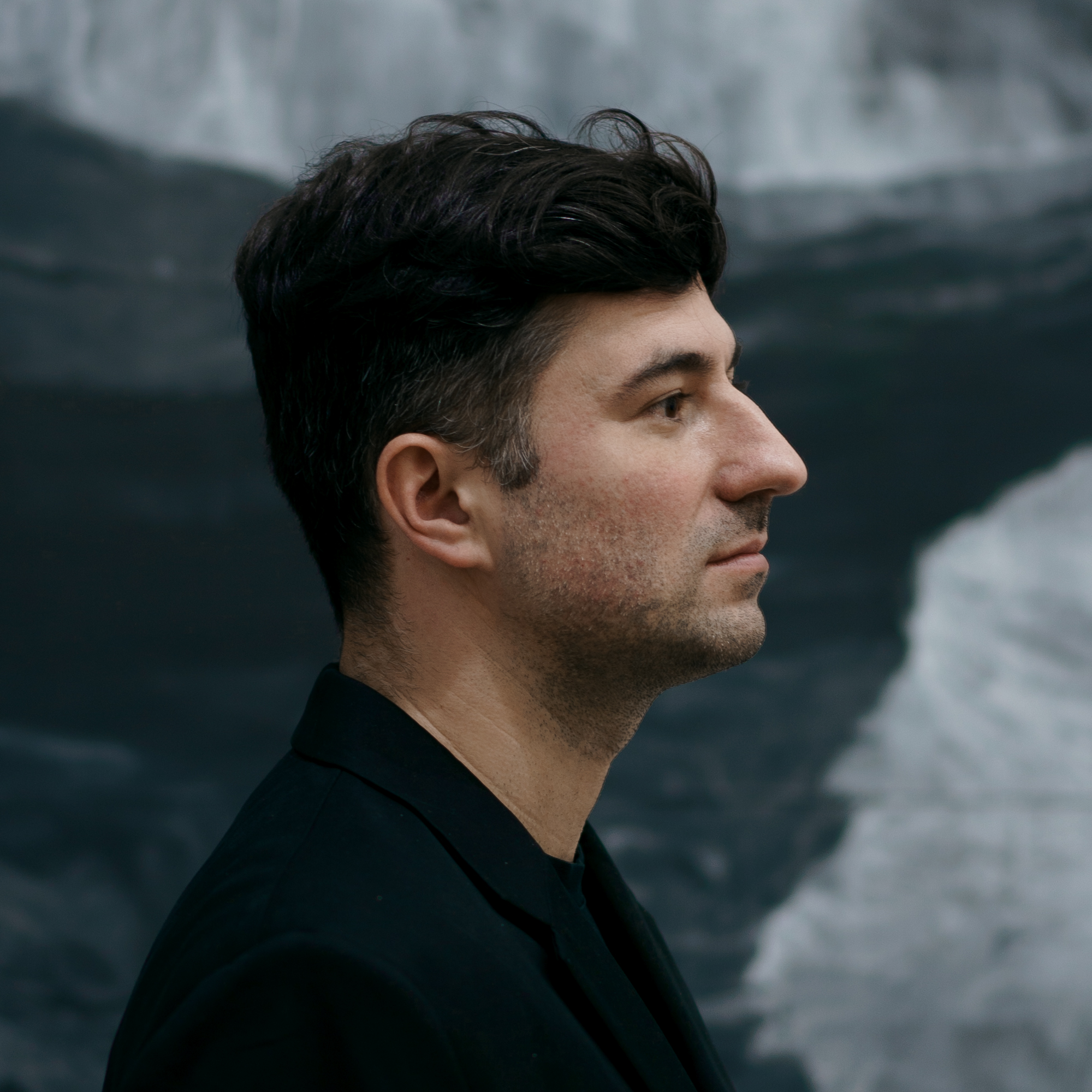
Sergej Remitz
*23 June 1984
Sergej Remitz is a russian pianist, composer, improvisation artist and teacher. He received his musical education in Smolensk, Moscow (Russia) and Freiburg (Germany) and has many years of stage experience as a solo pianist, chamber musician and accompanist throughout Europe.
For the last 15 years Sergej Remitz has devoted himself mainly to the activity of music teacher. As a teacher and mentor he has already inspired several young talents to their musical treadmill. He has worked a lot with the orchestra musicians and as an orchestra leader for the young musicians he has created several Europe-wide music projects (such as the project "Liberteum" in 2018 in Prague).
As an artist and as a music philosopher, Sergej Remitz is very closely involved with the subject of improvisation, which has become his "life's work" for the last few years. Especially in the last turbulent time it has become clear and obvious what an important and significant role the improvisational confrontation with the ever changing and fluid reality has become for every single human being. This construct he also clarifies in his musical works.
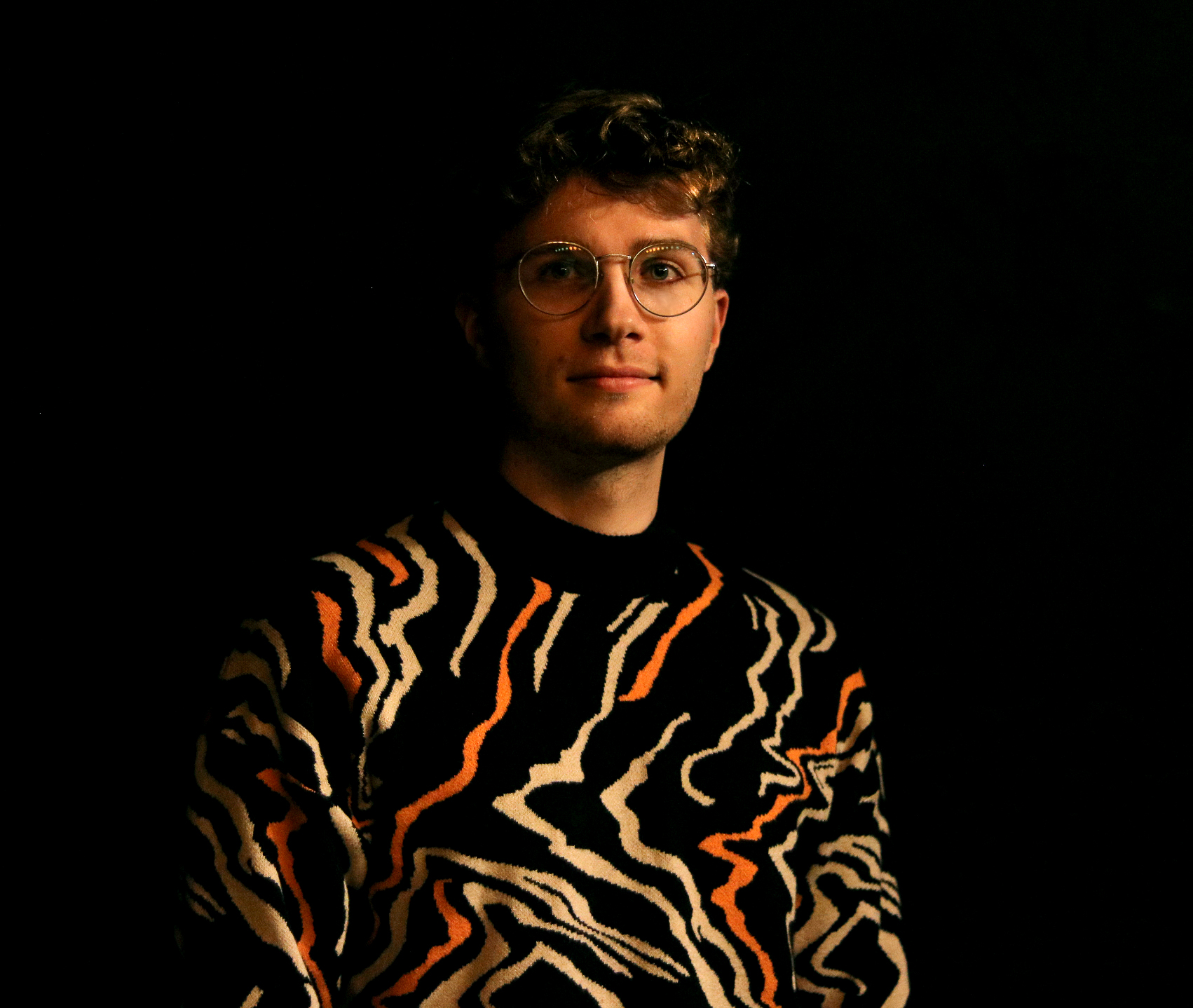
Simon Bauer
*1 February 1998
Geprägt von seinem musikalischen Elternhaus begann Simon Bauer sein Schlagzeugspiel an der Hochschule für Musik in Trossingen im Alter von 7 Jahren. Mit 15 Jahren wurde Simon Jungstudent für Jazz-Schlagzeug und nahm während der Schulzeit an diversen Hochschulaktivitäten und Seminaren teil. Simon Bauer ist mehrfacher Bundespreisträger des Wettbewerbs „Jugendmusiziert“ in den Kategorien Kammermusik (Neue Musik mit Akkorden und Schlagzeug) und Schlagzeug-Trio. Ausgezeichnet mit dem Kunst- und Musikpreis der Stadt Trossingen, sammelte er während seines Abiturs Orchestererfahrung im Bundesjugendorchester.
2017-2021 studierte er Jazz- und Klassisches Schlagzeug auf Lehramt an der Hochschule für Musik und Darstellende Kunst Stuttgart. Als vielseitiger Schulmusiker gestaltet, singt, spielt oder dirigiert Simon aktiv Konzerte jeden Genres und zeigt seine Faszination für die verschiedenen Künste in seinen Projekten mit Tänzern, Sprechern, bildenden Künstlern uvm.
Seit 2021 studiert er Bildende Kunst auf Lehramt an der Akademie der Bildenden Künste Wien und seit 2023 Jazz Komposition an der Musik und Kunst Universität der Stadt Wien.
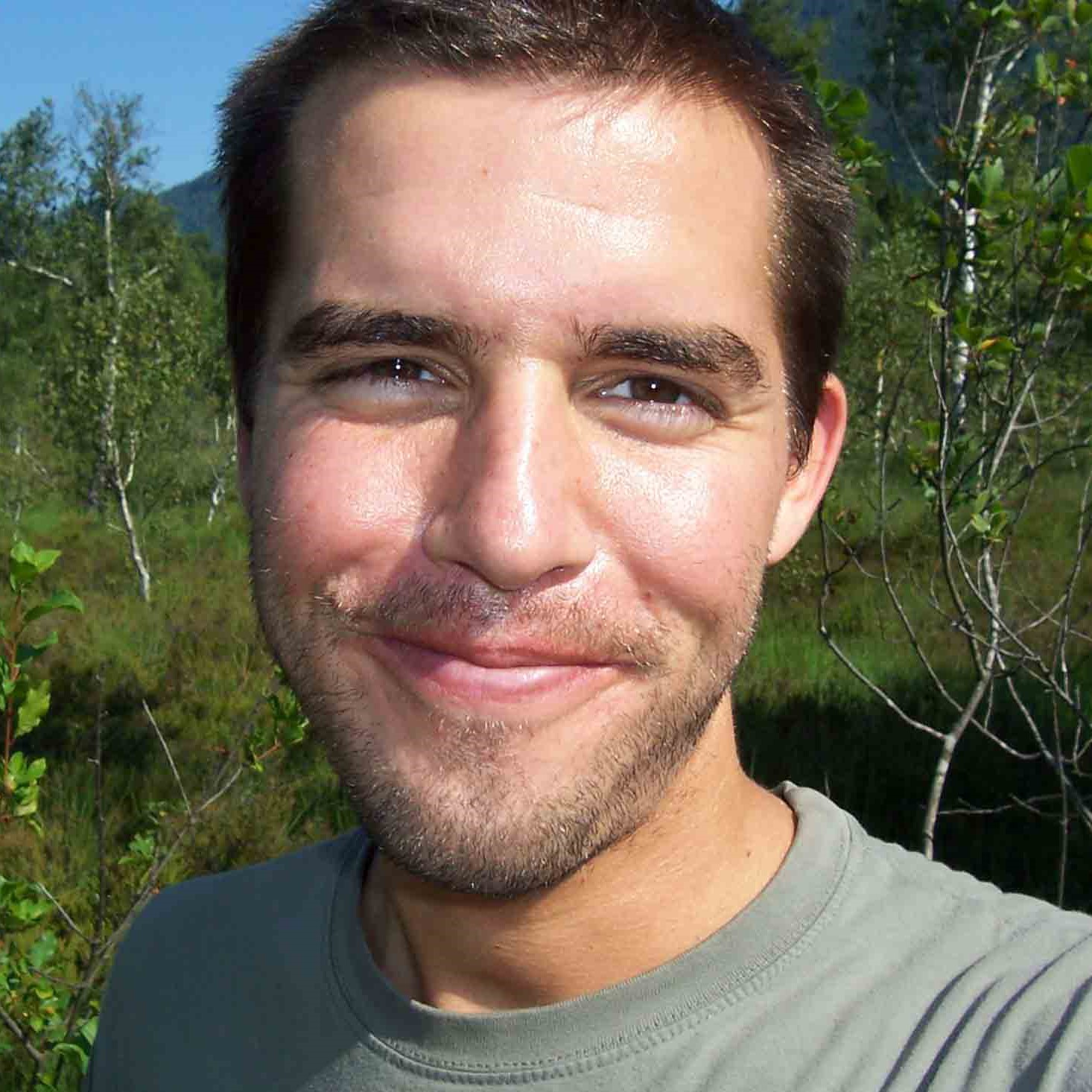
Stefan G. Feiks
*22 May 1979
- Stefan G. Feiks, geboren 1979, lebt als freischaffender Komponist und Autor im Chiemgau, Bayern.
- Klavierunterricht seit dem 9. Lebensjahr, später auch an der Hochschule für Musik in München.
- Seit 2006 arbeitet er als Klavierlehrer und betreute verschiedene Chöre und Kurse an Volkshochschulen.
- Stefan spielt auch Geige und entdeckte 2024 seine Liebe zur Bratsche.
- Autodidaktische Anfänge als Komponist, später Privatstudien mit seinem Mentor Prof. Peter Michael Hamel.
- Sein bisheriges Schaffen umfasst Klavier-, Chor-, Kammer- und Orchestermusik. Derzeit arbeitet er an seinem ersten Musiktheaterstück Der Müllner Peter von Sachrang.
- His first children's book Wohin springt Sira was published in 2017.
- Stefans texts about music and creative projects appear on www.so-magazin.de
- He is also a trained yoga teacher and loves the mountains and nature.
- Mail: [email protected]
- Bluesky
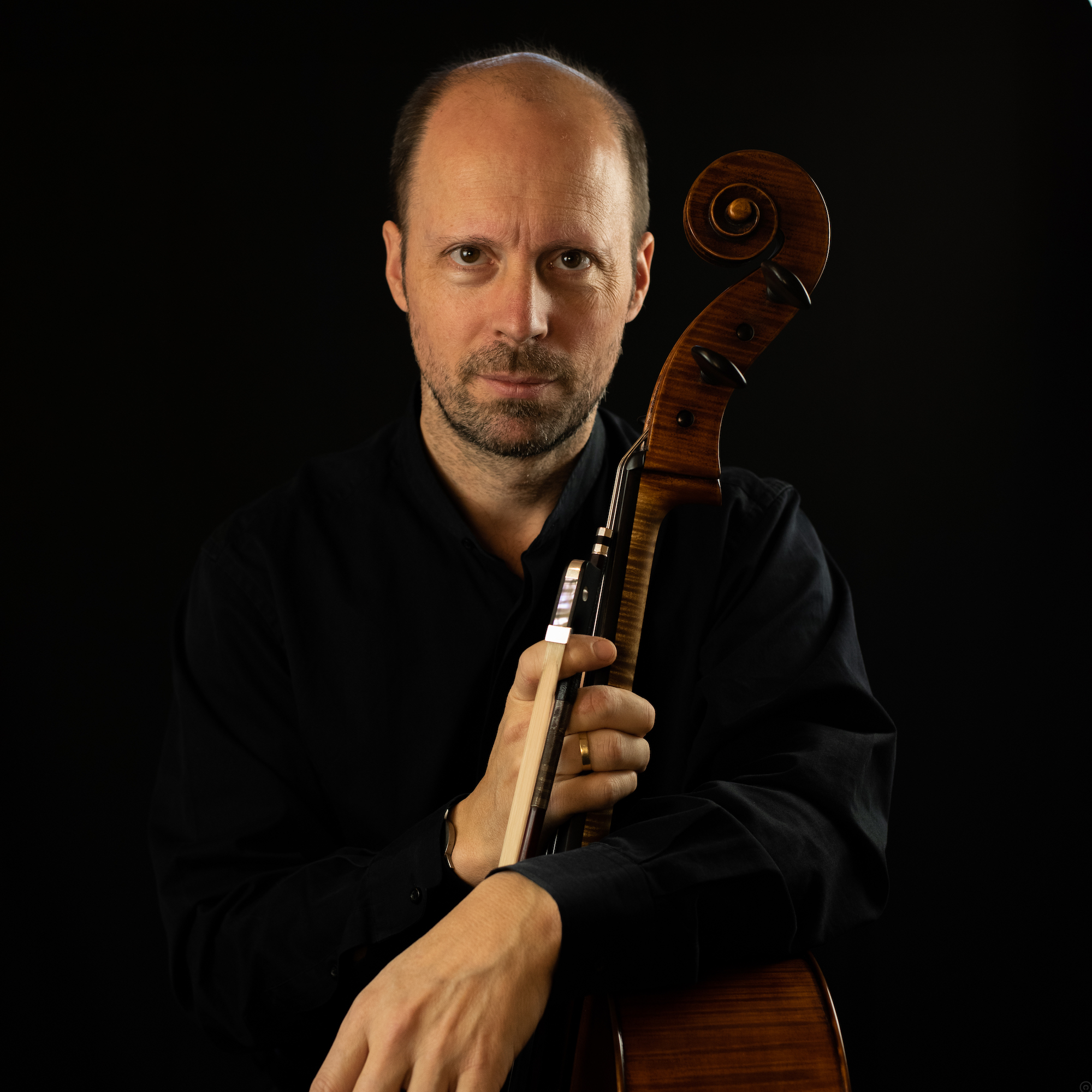
Tobias Stosiek
*13 October 1971
Tobias Stosiek was born in Schwerin (Germany). He received his first cello lessons from Prof. Sigrid Richter at the Görlitz Music School and later with Prof. Inge Schreier at the Special School for Music “Carl Maria von Weber” in Dresden. Between 1990 and 1998 he studied at the “Universität für Musik und darstellende Kunst” in Vienna with Prof. Tobias Kühne.
Tobias Stosiek has taken part in several Masterclasses with David Geringas, Frans Helmerson, Peter Leisegang, Arto Noras, Antonio Meneses, Karine Georgian and Mstislav Rostropovich, among others.
He has won numerous prizes at International competitions such as the first prize at the 1995 “II. Prix-Mercure Competition” in Semmering (Austria), the first prize at the “IV. International Brahms Competition” in Pörtschach (Austria) in 1997, as well as the first place at the “XXXII. International Instrumental Competition” in Markneukirchen and the first prize at the “V. International Violoncello Competition“ in Liezen in 2000 and the first place at the XXX. Int. Competition “Jeunesses Musicales” in Belgrade.
He has been a guest artist at many Festivals and has performed throughout Europe, i.e. Germany, Italy, France, Russia, Poland, Czechoslovakia, Croatia, Yugoslavia and Austria (among others in Wiener Konzerthaus and Musikverein). He recorded several CD`s and TV-Productions as soloist and chamber music player.
Tobias Stosiek is professor on the University of Music and performing Arts Graz. He is member of Jury in several international competitions (Brahms Competition Pörtschach; Violoncello Competition Liezen; “Jeunesses Musicales” in Belgrade …).
Tobias Stosiek plays on a Don Nicola Amati Cello made in Bologna around 1700.
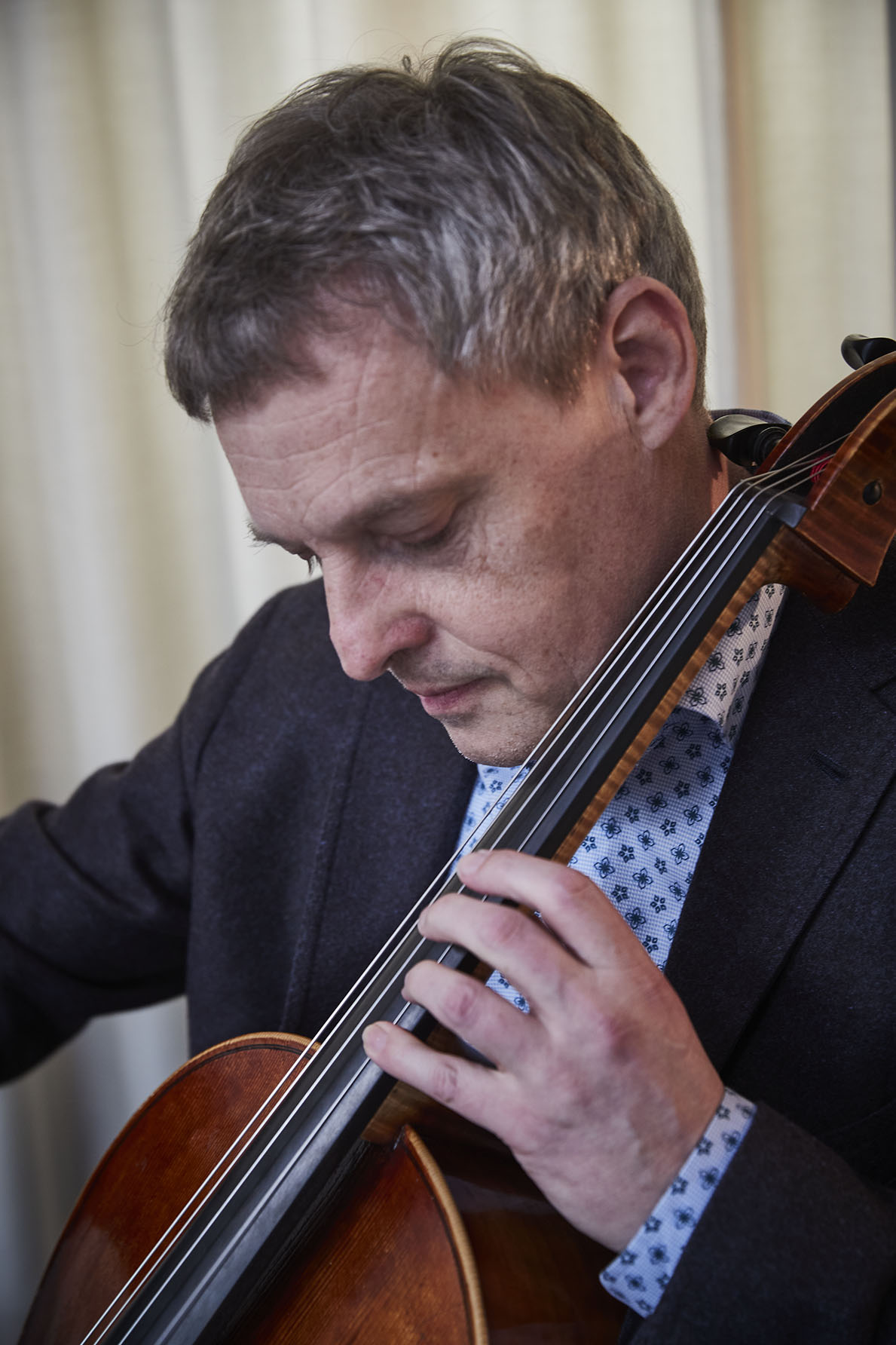
Tristan Schulze
*22 March 1964
Tristan Schulze was born in Annaberg-Buchholz (Saxony). After studying Cello in Dresden, we played in the orchestra of Landesbühnen Sachsen. That's when he wrote his first compositions. After the wall came down, he went to India to study Sitar and Tabla in Varanasi. He studied conducting and composition in Vienna (now mdw). His composing and performing started with his founding of the string trio Triology, together with Aleksey Igudesman and Daisy Jopling. He composed commissioned works for Theater an der Wien (Premiere), Wiener Musikverein (Puss in Boots and Paul's journey), Wiener Staatsoper (Patchwork) and Gewandhaus Leipzig (Double Concerto for Double Reed Instruments). In 2020, he founded the ensemble Camerata Aurea. He is principle conductor of Wiener Konzertvereinigung. In his concerts with the orchestra he performs new compositions of his own as well as standard repertoire. Many of his works are published by Doblinger, some by Schott.
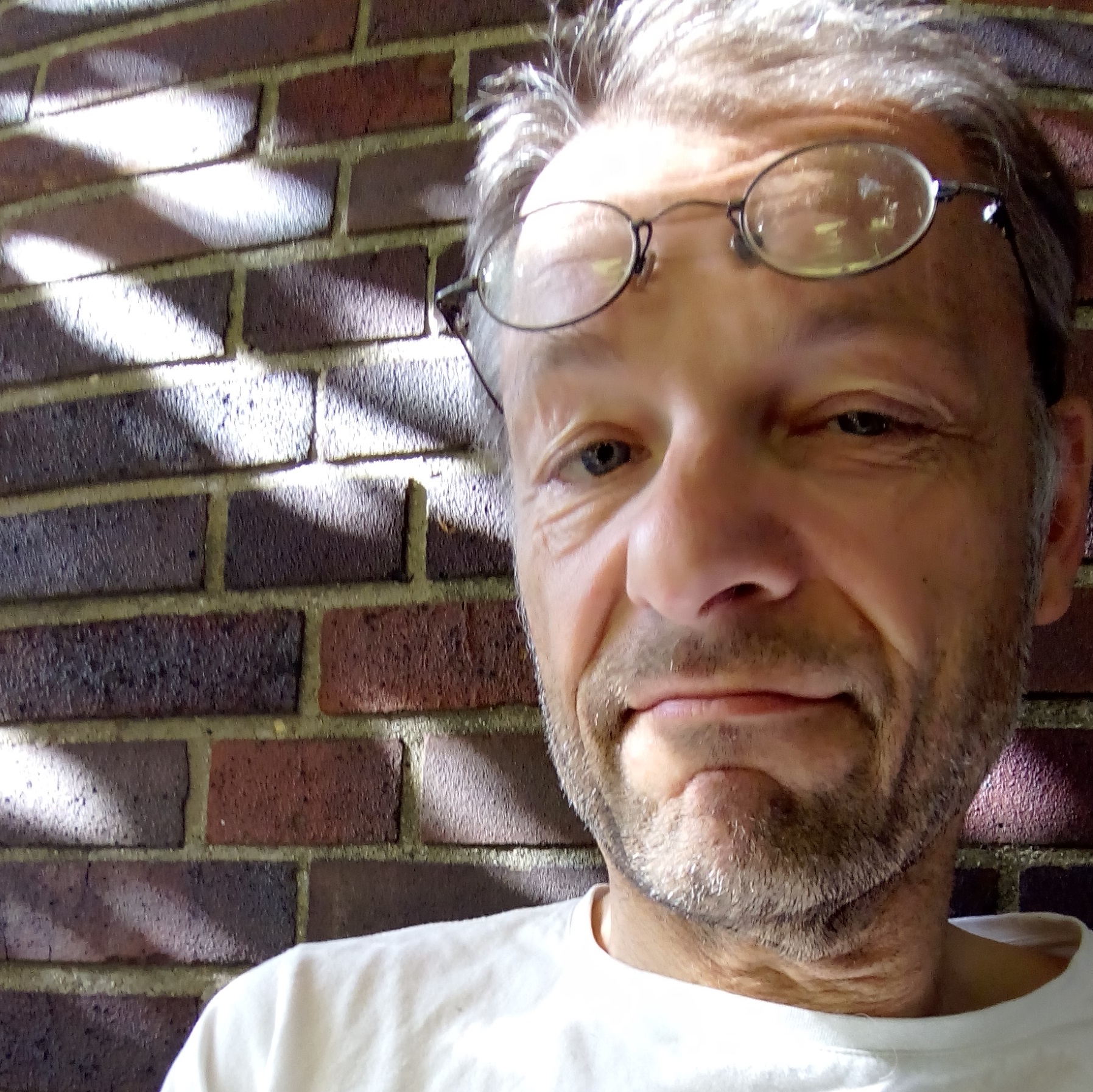
Ulrich Kallmeyer
*3 April 1963
Ulrich Kallmeyer, born 1963 in Monheim/Rheinland, Germany, studied music education and piano in Hanover, followed by music theory in Cologne until 1991 as well as composition in „Neues Musiktheater“ with Mauricio Kagel until 1993. After finishing his studies he taught at the music conservatories in Cologne and Hanover. He published various Compositions as well as Writings on Music Theory and Ear Training (Così si fa sol mi, Breitkopf &Härtel 2018; two books on relative solmization). Special mention goes to the chamber opera PREUSSISCH DOPPELBILD (Hanover 1996) and the short opera DER KALTE ADAM (Berlin, 1997) which was awarded the “Neuköllner Opernpreis”. The SZENISCHE KONZERT for solo percussionist and full orchestra had its premier with the Westfalian Symphony orchestra in 1991 in Kamen. The grand 12 VARIATIONS ON „THE STAR SPANGLED BANNER“ (1996) for piano were further developed with a few theatrical parts and premiered by the composer himself.
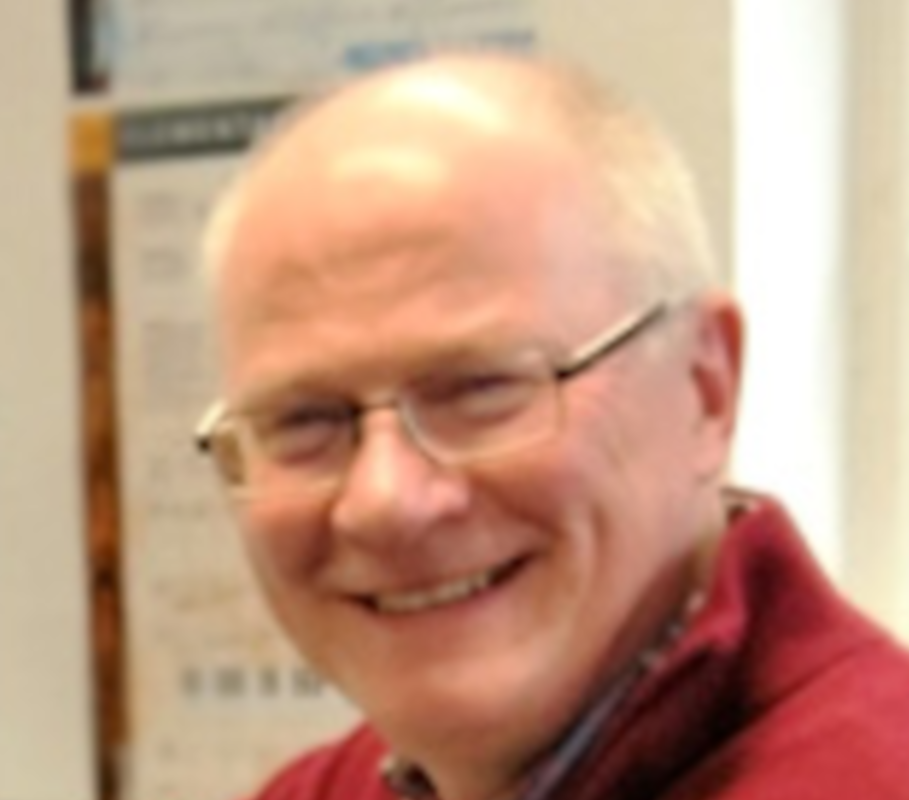
Wolfgang Wollschläger
*21 October 1957
Jazz piano studies with Manfred Schmitz at the Hochschule für Musik "Franz Liszt " in Weimar and composition studies with Wolfgang von Schweinitz and Michael Obst ibid.
-1987 to 2017 musical director of the Thuringian satirical theater "Die Arche", setting Kästner, Morgenstern and Heinz Erhardt texts to music
-1984-1991 and since 2009 lecturer at the Erfurt Music School in piano and in preparatory study for MTG, piano jazz-pop/classical, practical school piano playing, score playing, composition
-since 2010 lecturer at the Thüringer Landesmusikakademie Sondershausen
-since 2010 member of the project advisory board "Jugend komponiert" of the LMR Thuringia
-since 2023 member of the state committee "New Music" of the LMR Thuringia
-since 2023 teaching position at the University of Erfurt in the subjects of ear training and
practical piano playing
-since 2011 regular publication of my compositions in Hofmeister Verlag Leipzig, Schott Music Mainz, Strube Verlag Munich, Trekel Verlag Hamburg, Helm & Baynov Verlag Kempten, Bellmann Verlag Halle
-performances throughout Europe, USA, Canada, Japan, China, Taiwan, HongKong
-Scores in the holdings of several university libraries, including Yale University,
New York University, New York Public Library System, Royal College of Music, University of Toronto, etc.
Translated with www.DeepL.com/Translator (free version)

